Laptop & Desktop Graphics Comparison
I’ve tested 34 GPUs from laptops and desktops in 25 games at 1080p, 1440p and 4K resolutions. Simply click on one of the tabs below to view the results for a specific game.
Details about the hardware used in the test PC and specific gaming laptop models can be found below.
Upscaling was not used. Ray tracing was only enabled in The Witcher 3 and Metro Exodus Enhanced.
- Overall Averages
- Assassin's Creed Valhalla
- Borderlands 3
- Call of Duty: Modern Warfare II
- Control
- Cyberpunk 2077
- Dead Space
- DOOM Eternal
- Dying Light 2
- F1 2021
- Far Cry 6
- Forza Horizon 5
- God of War
- Halo Infinite
- Hogwarts Legacy
- Metro Exodus Enhanced
- Microsoft Flight Simulator
- A Plague Tale: Requiem
- Rainbow Six Extraction
- Red Dead Redemption 2
- Marvel's Spider-Man Remastered
- Shadow of the Tomb Raider
- Total War: WARHAMMER III
- Watch Dogs Legion
- The Witcher 3
1080p
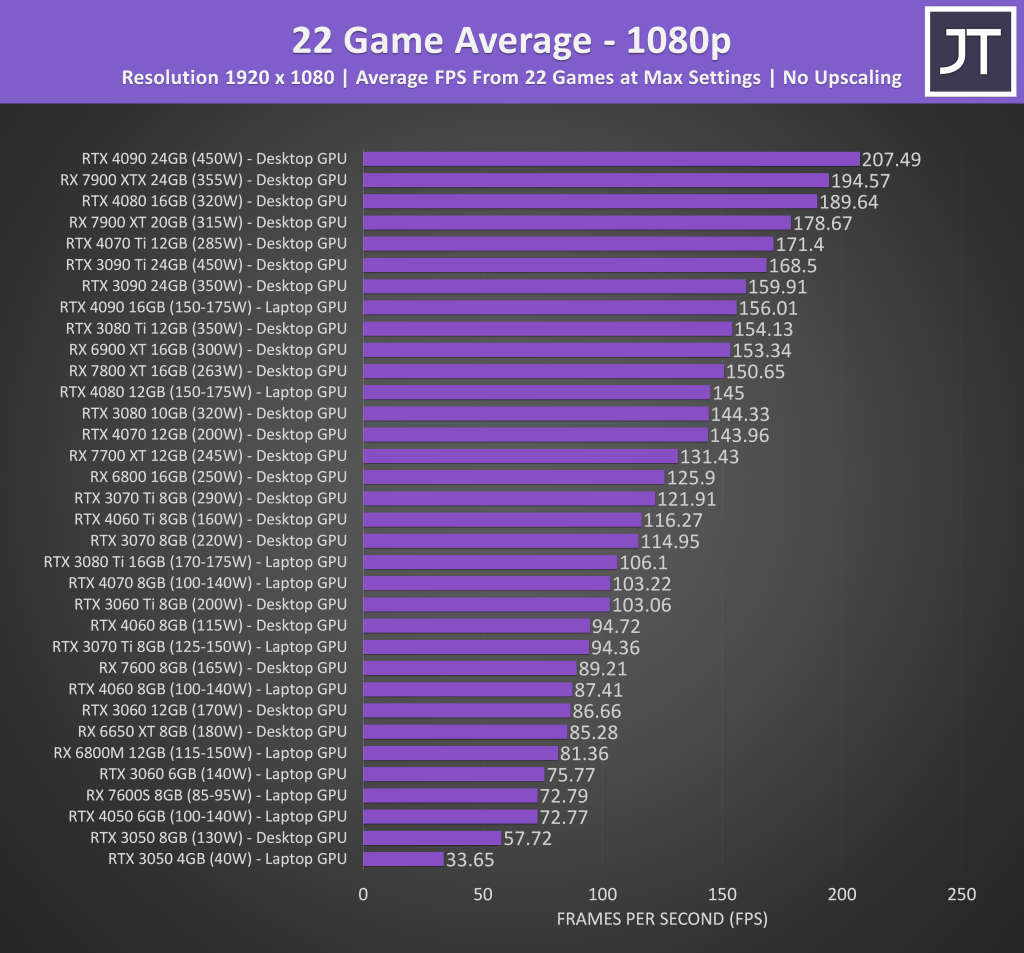 1440p
1440p
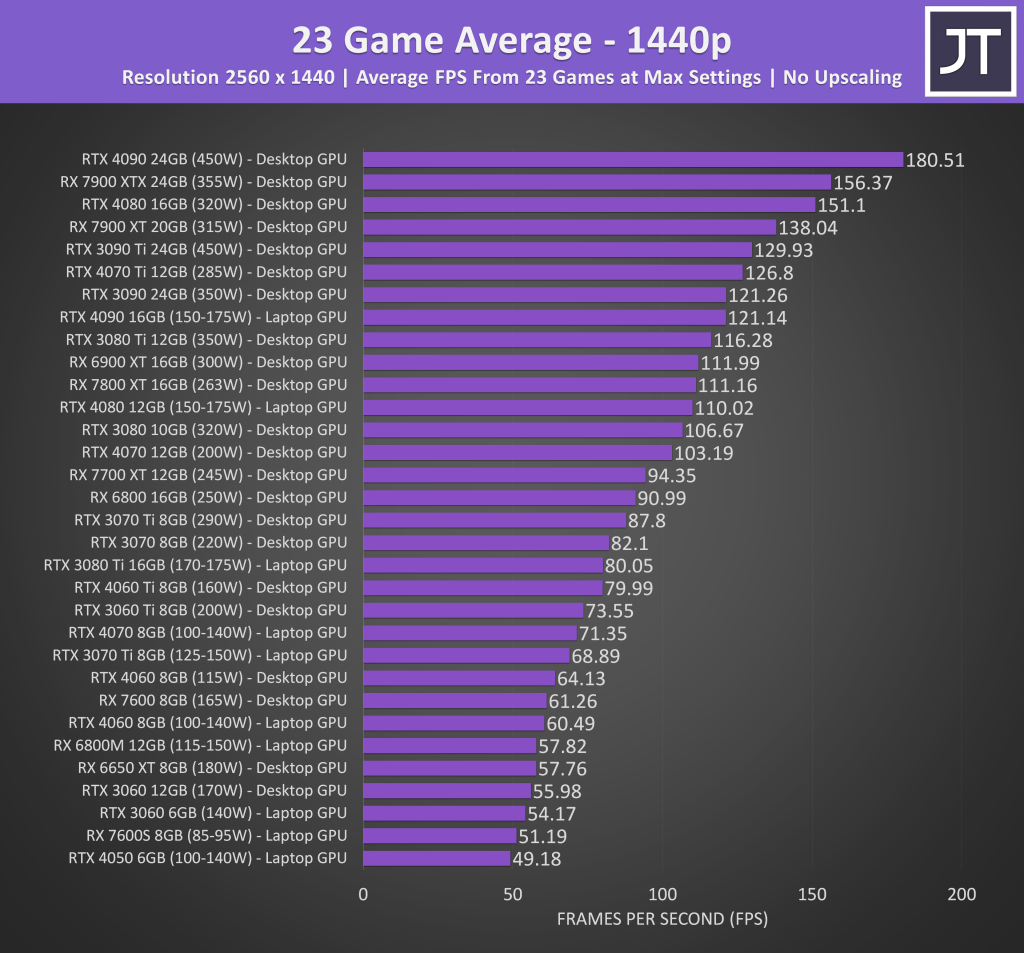 4K
4K
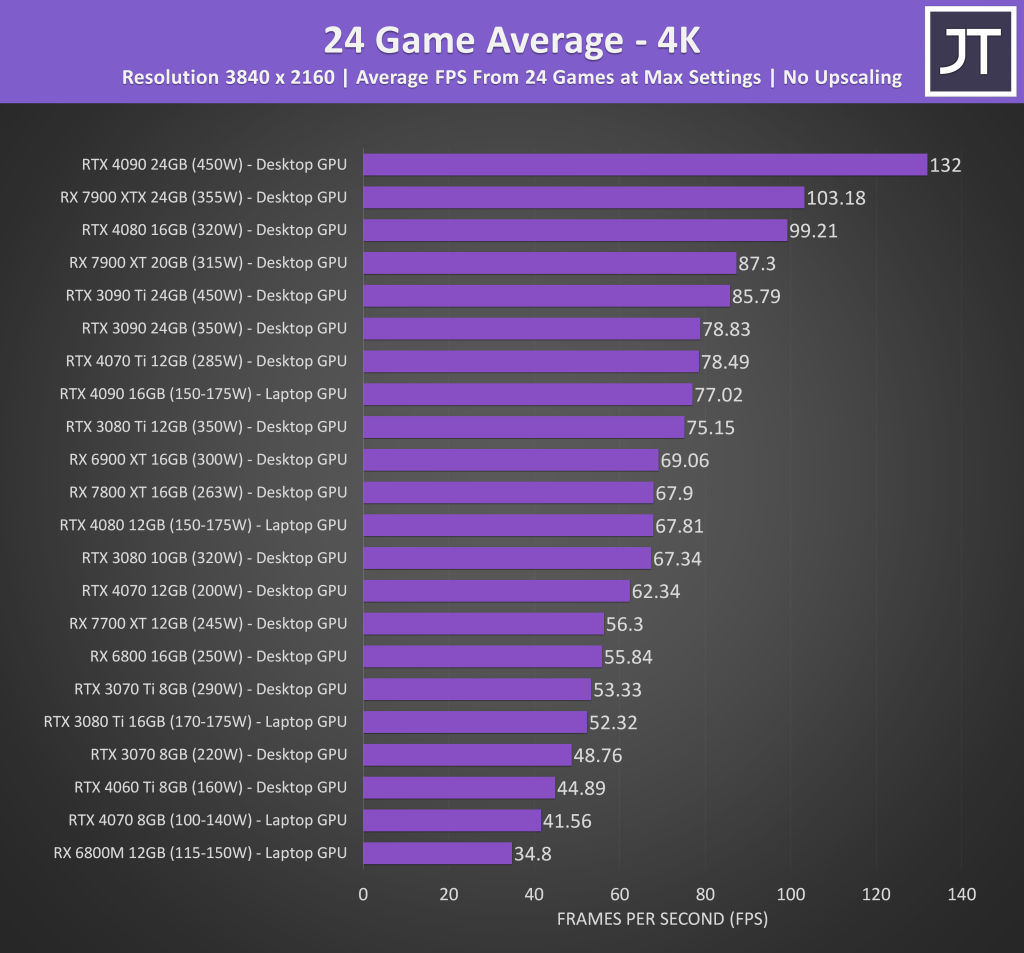
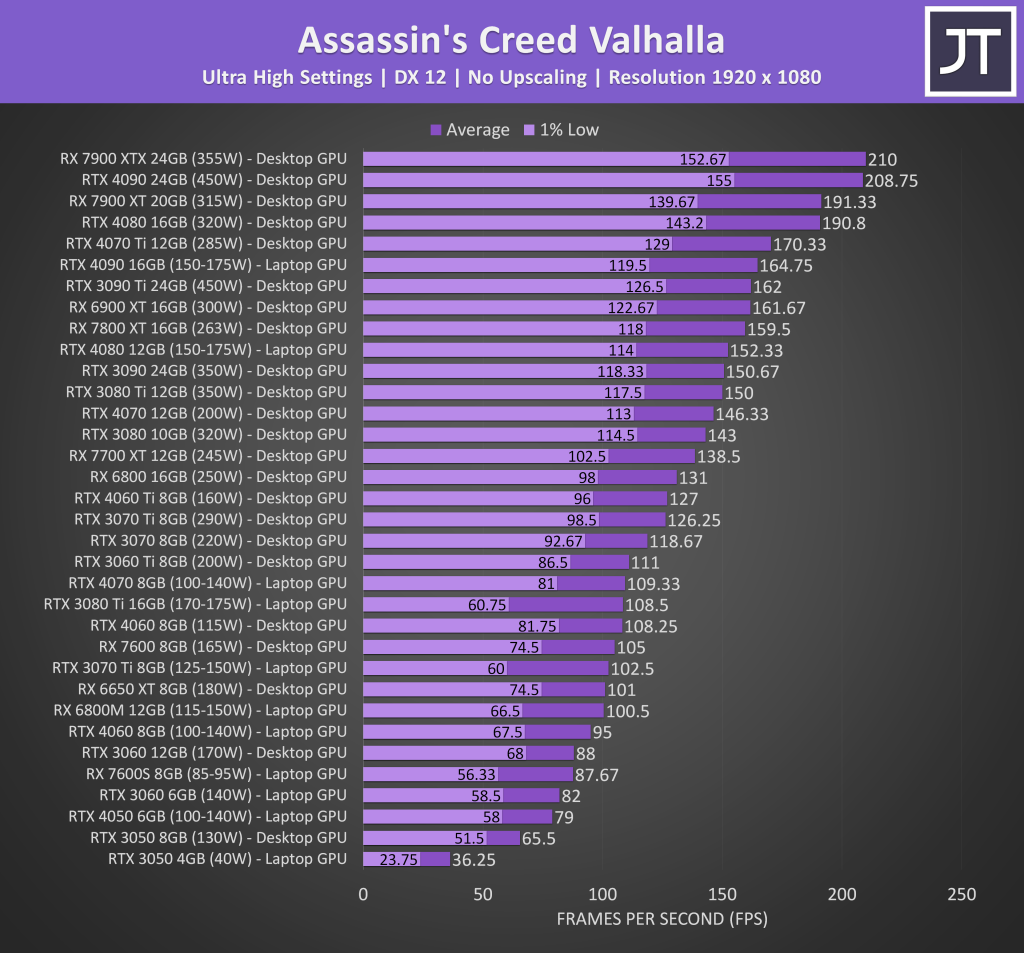 1440p
1440p
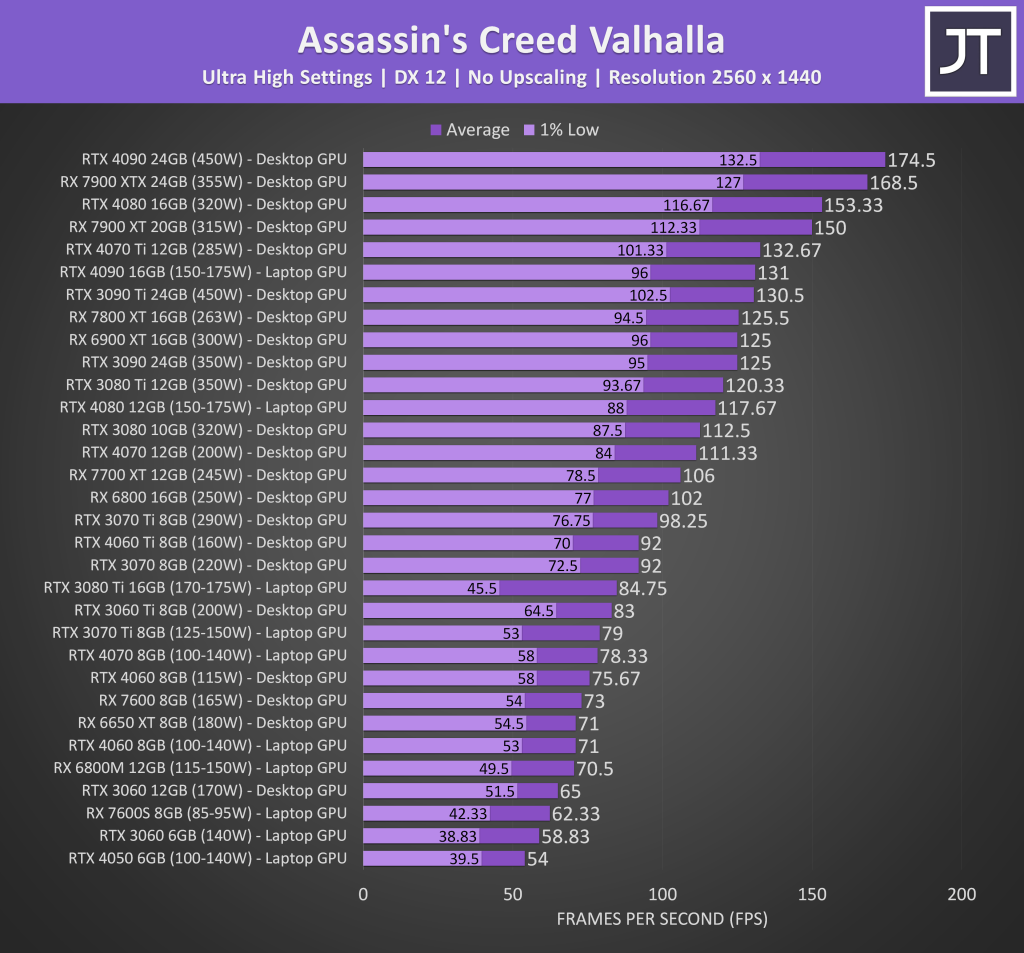 4K
4K
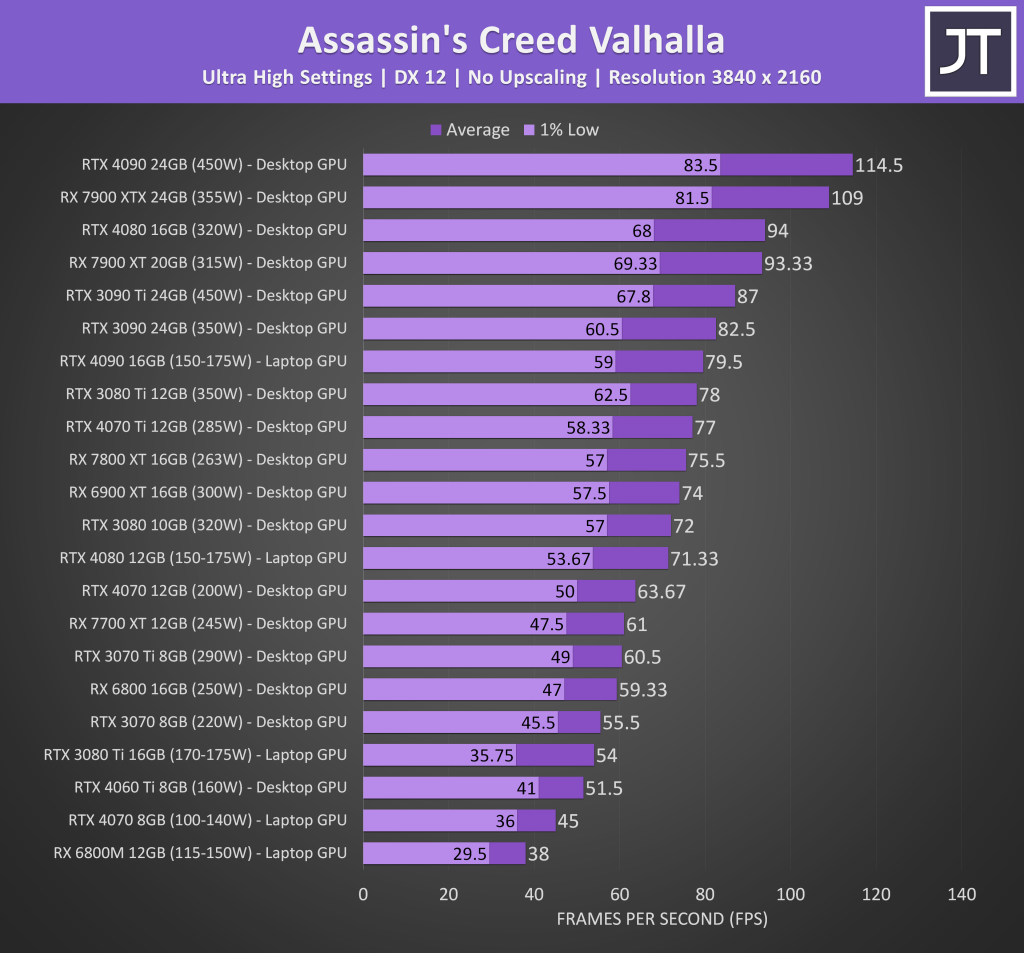
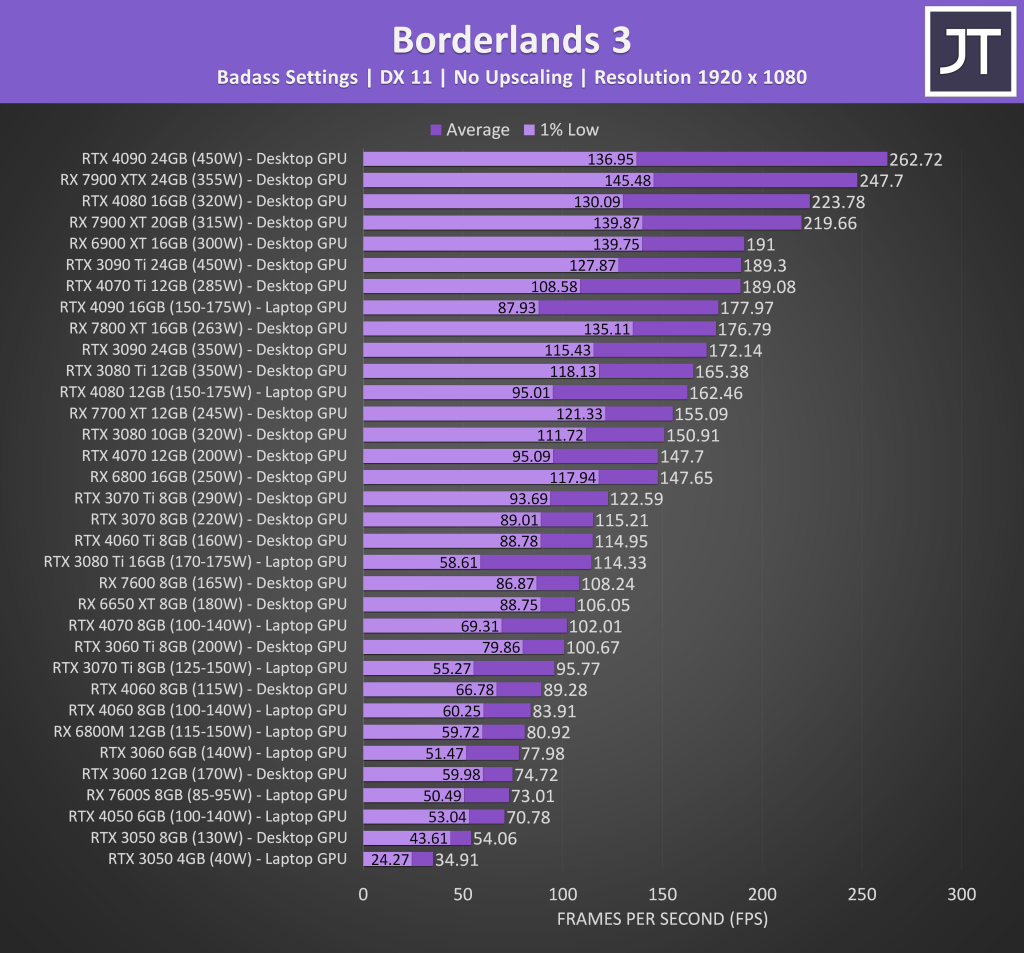 1440p
1440p
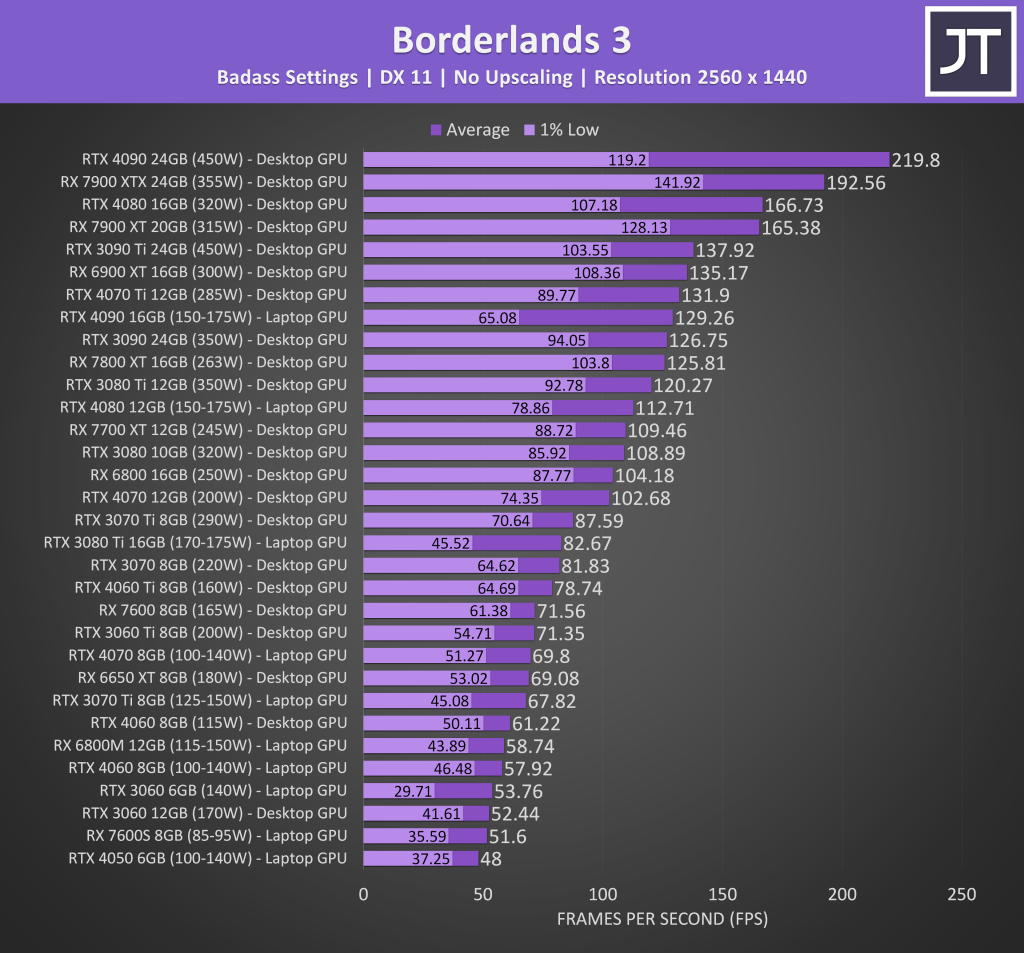 4K
4K
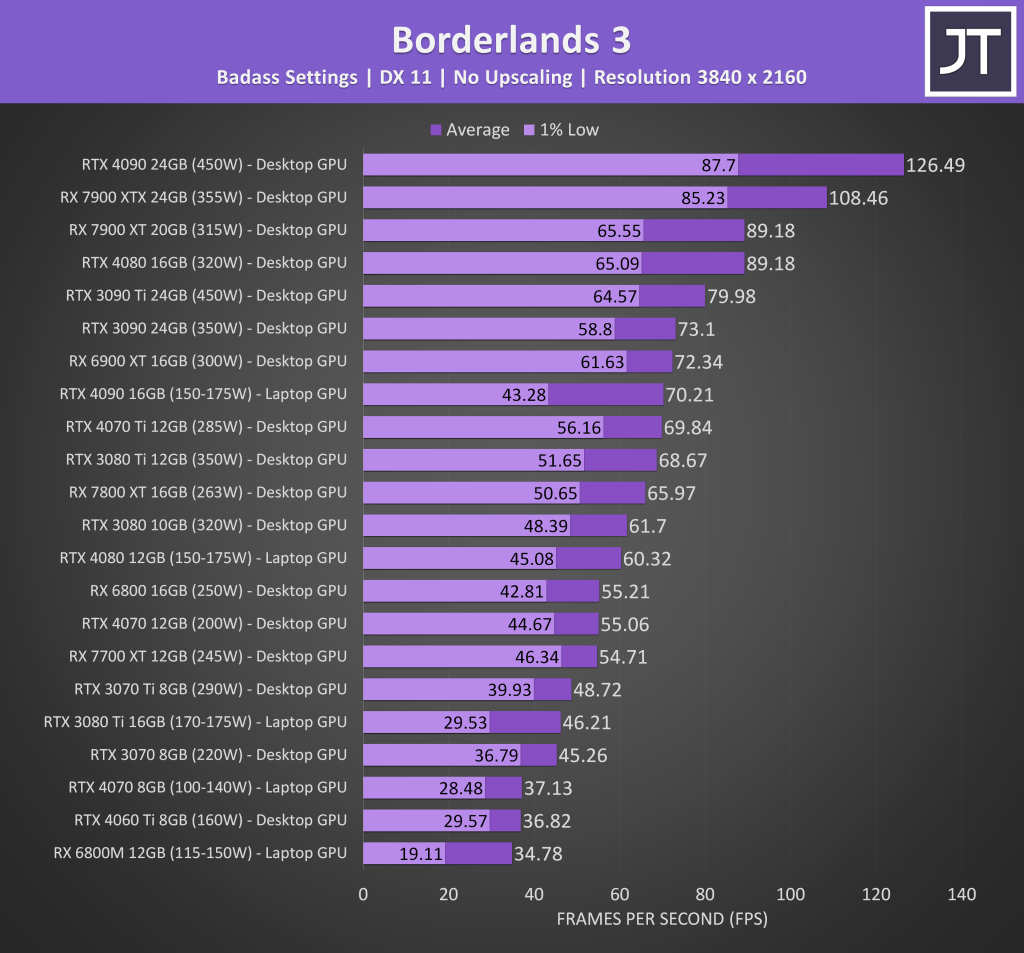
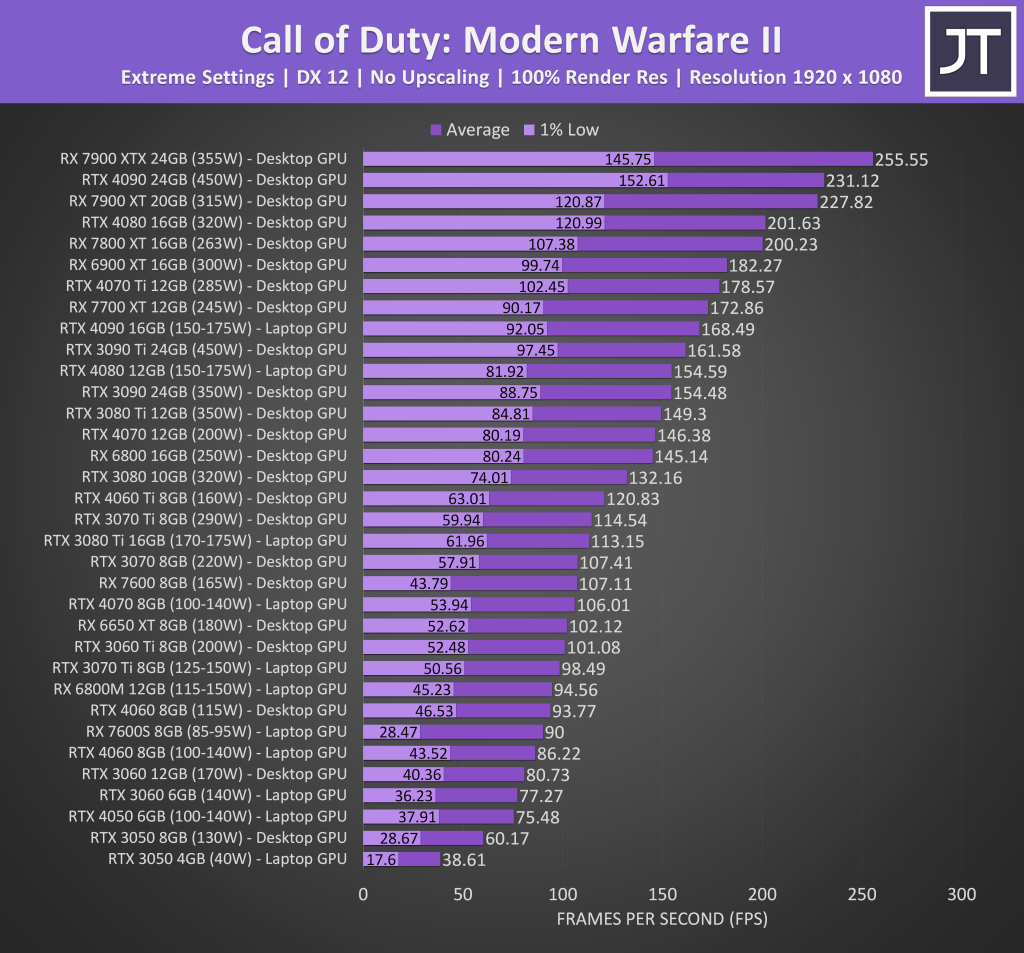 1440p
1440p
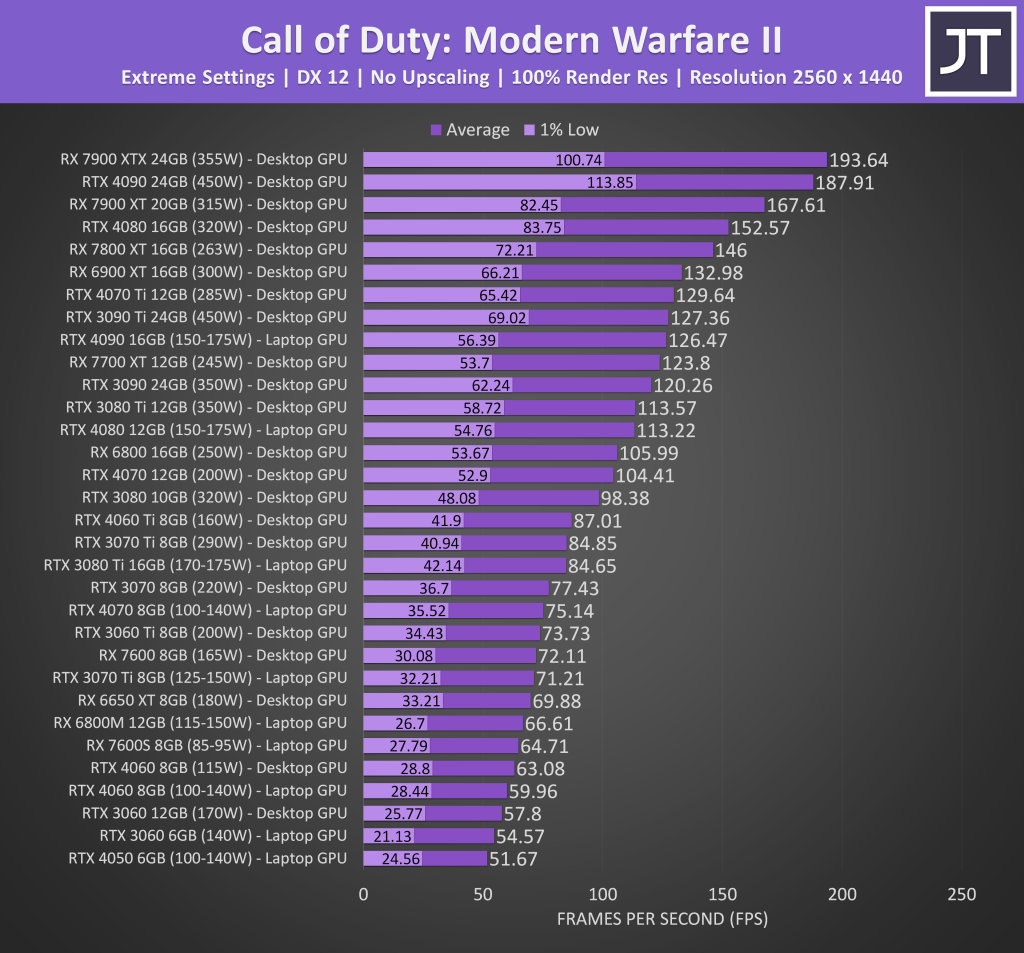 4K
4K
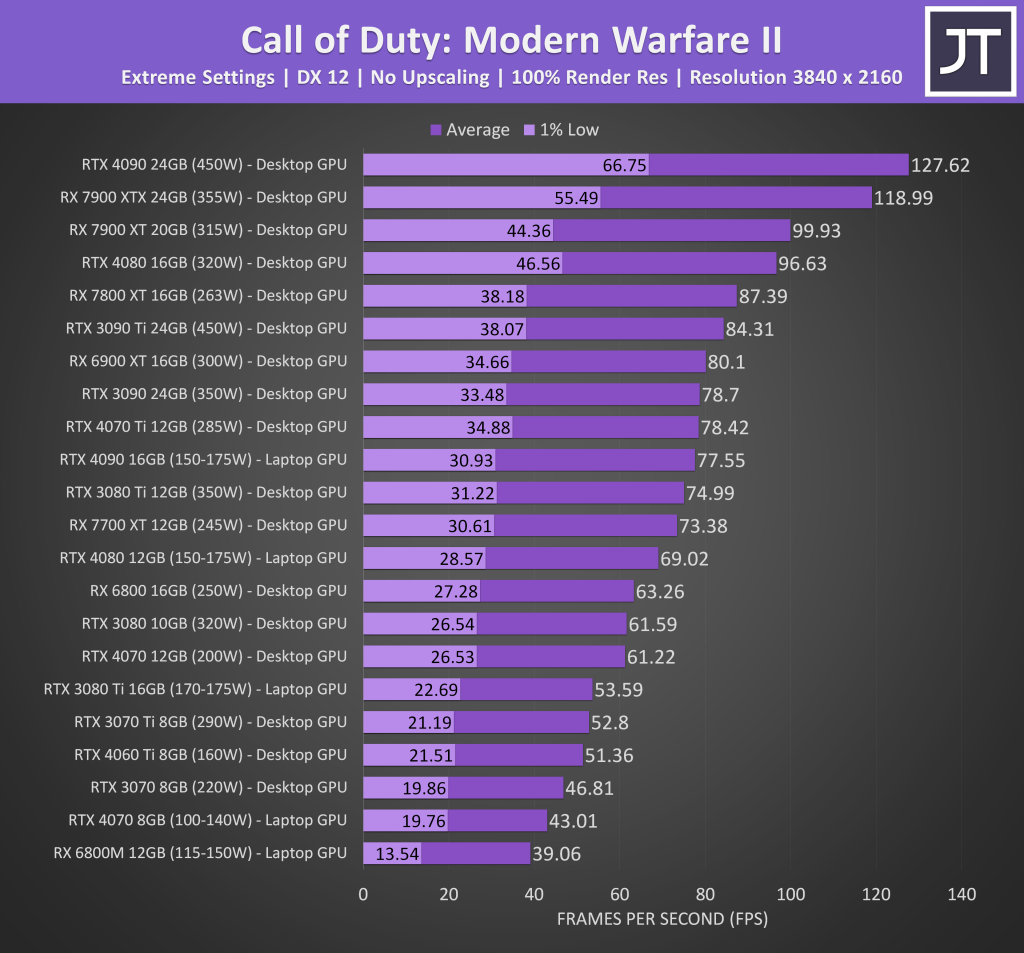
1080p
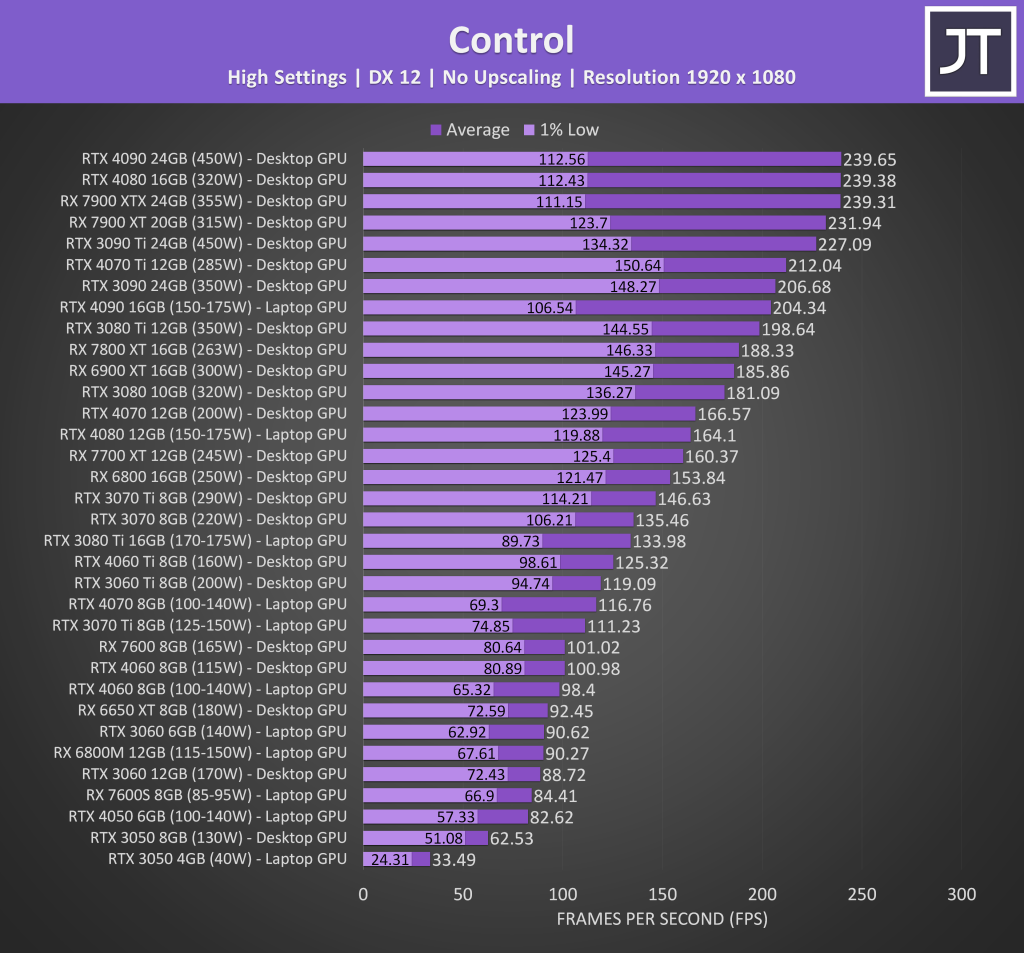 1440p
1440p
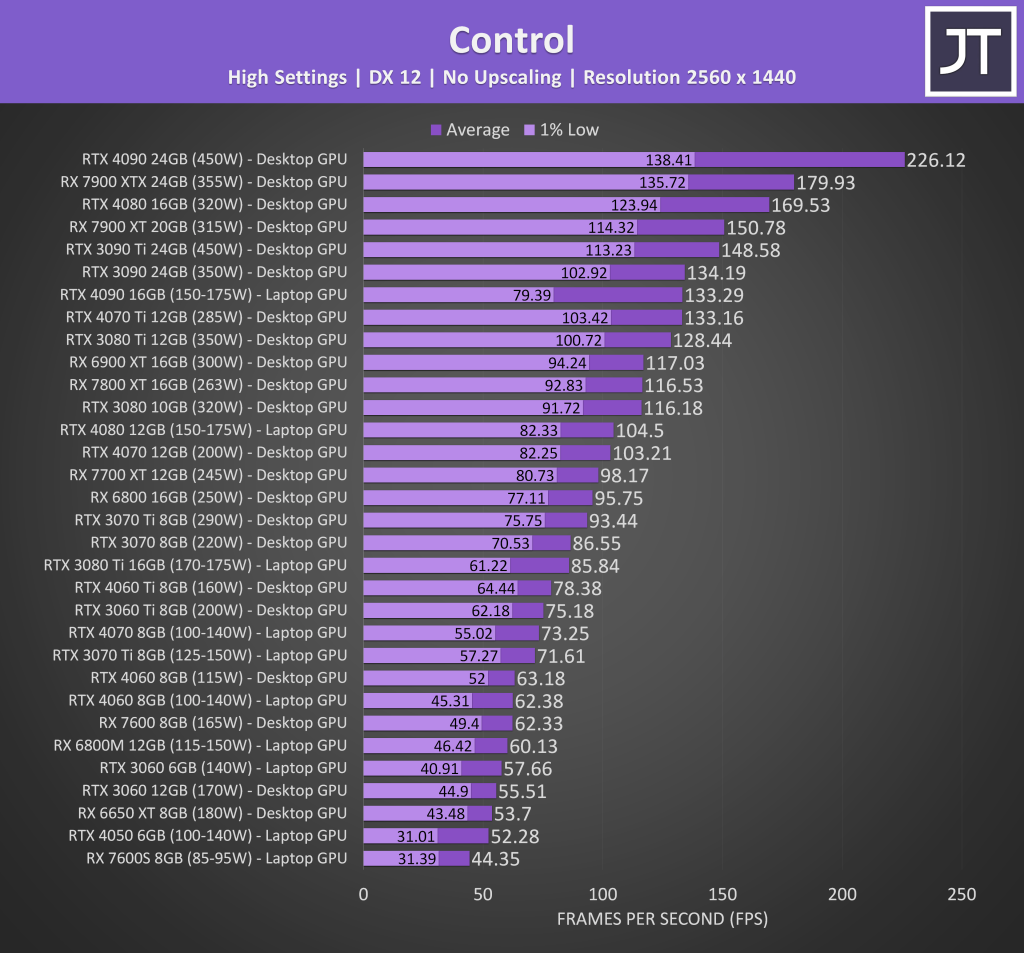 4K
4K
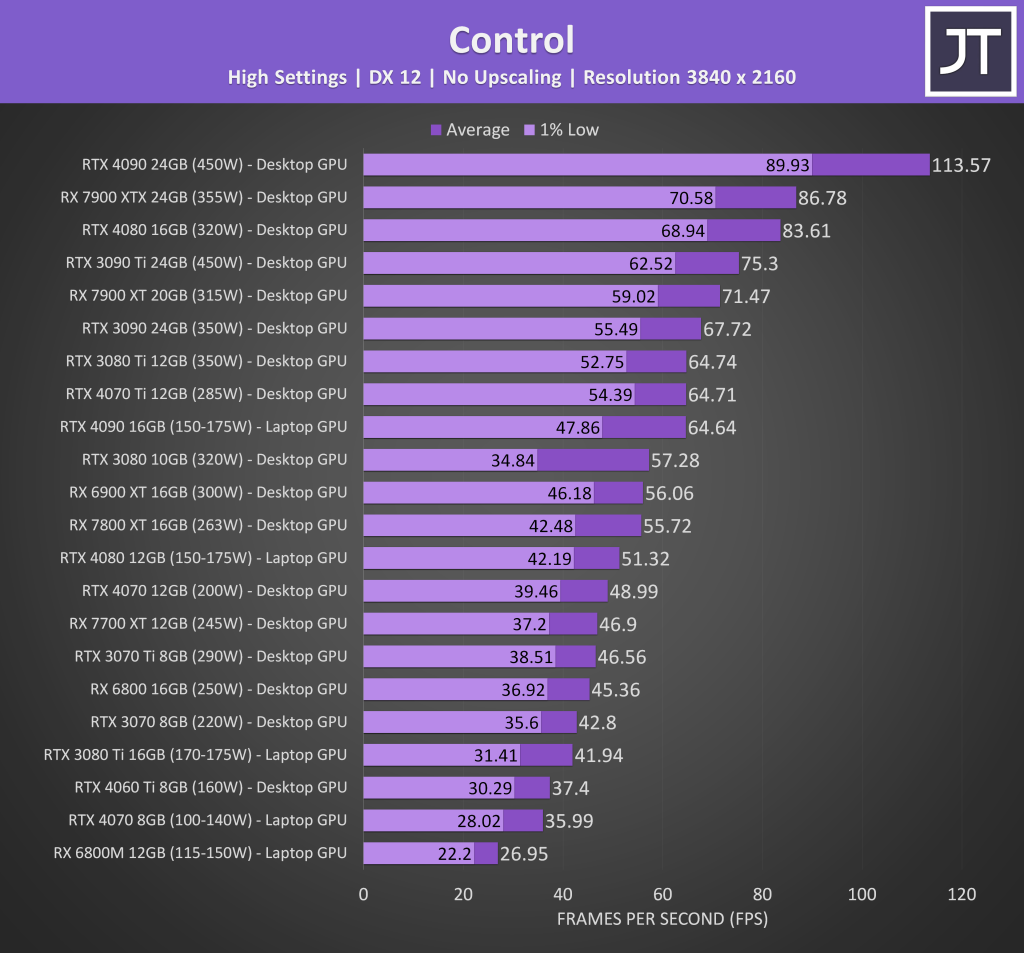
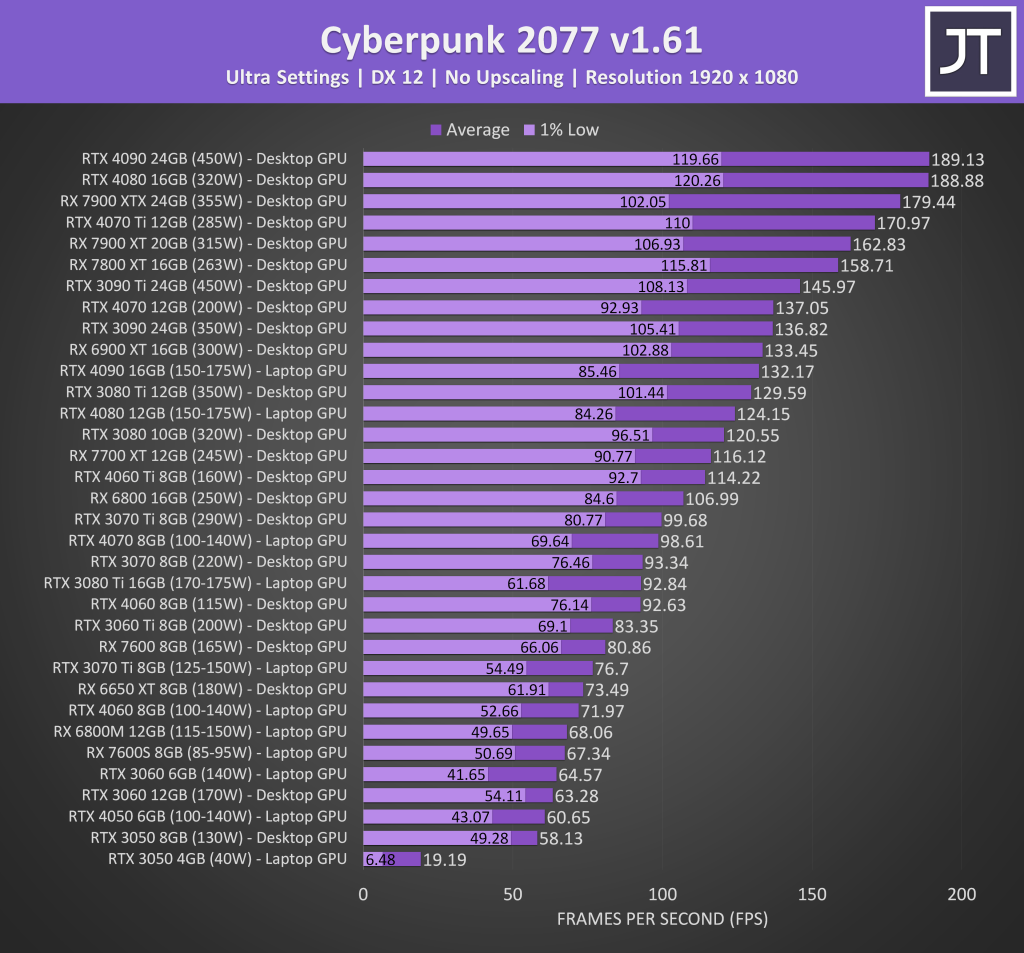 1440p
1440p
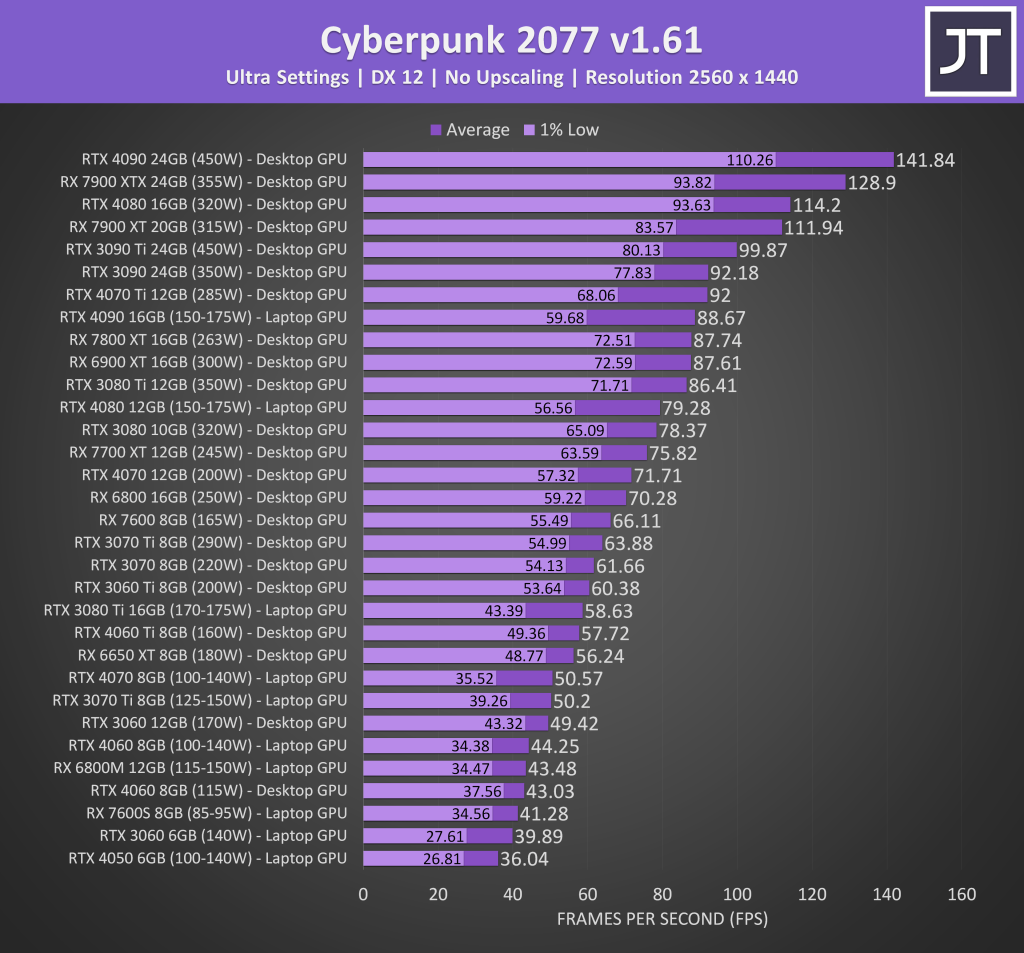 4K
4K
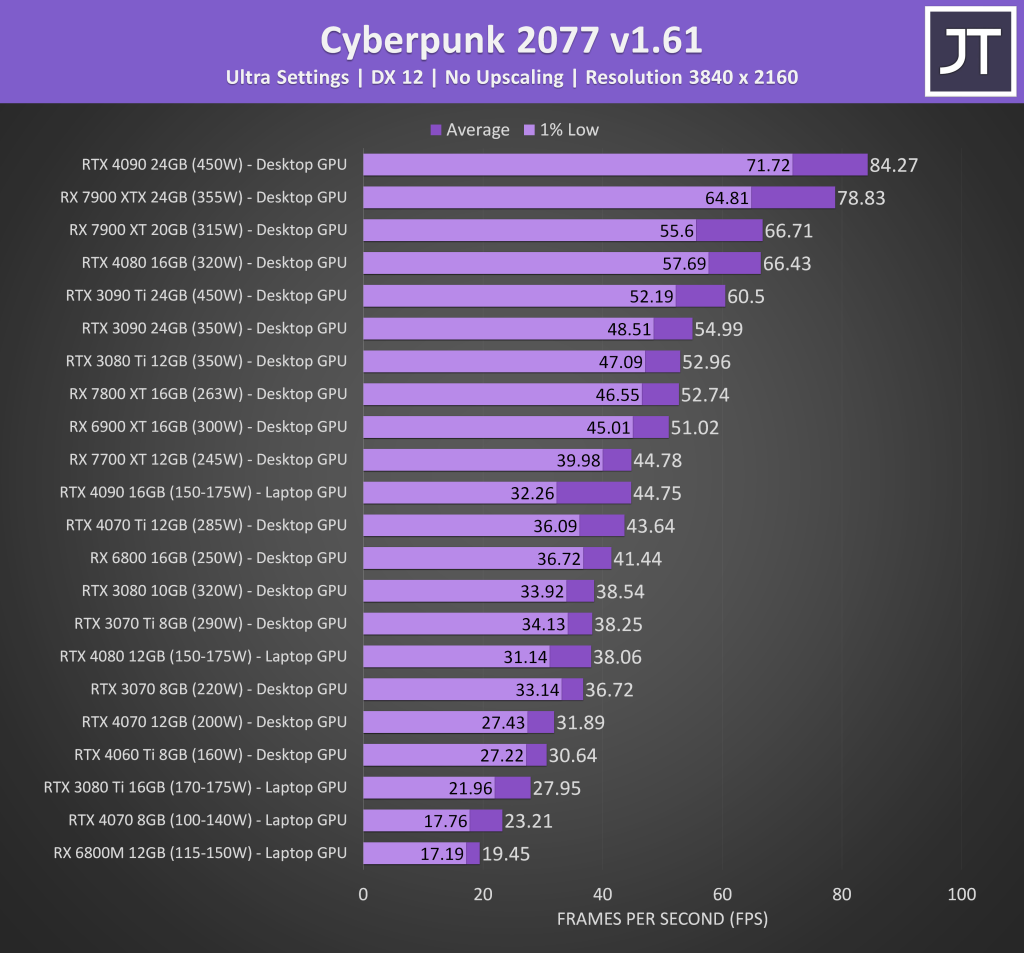
1080p
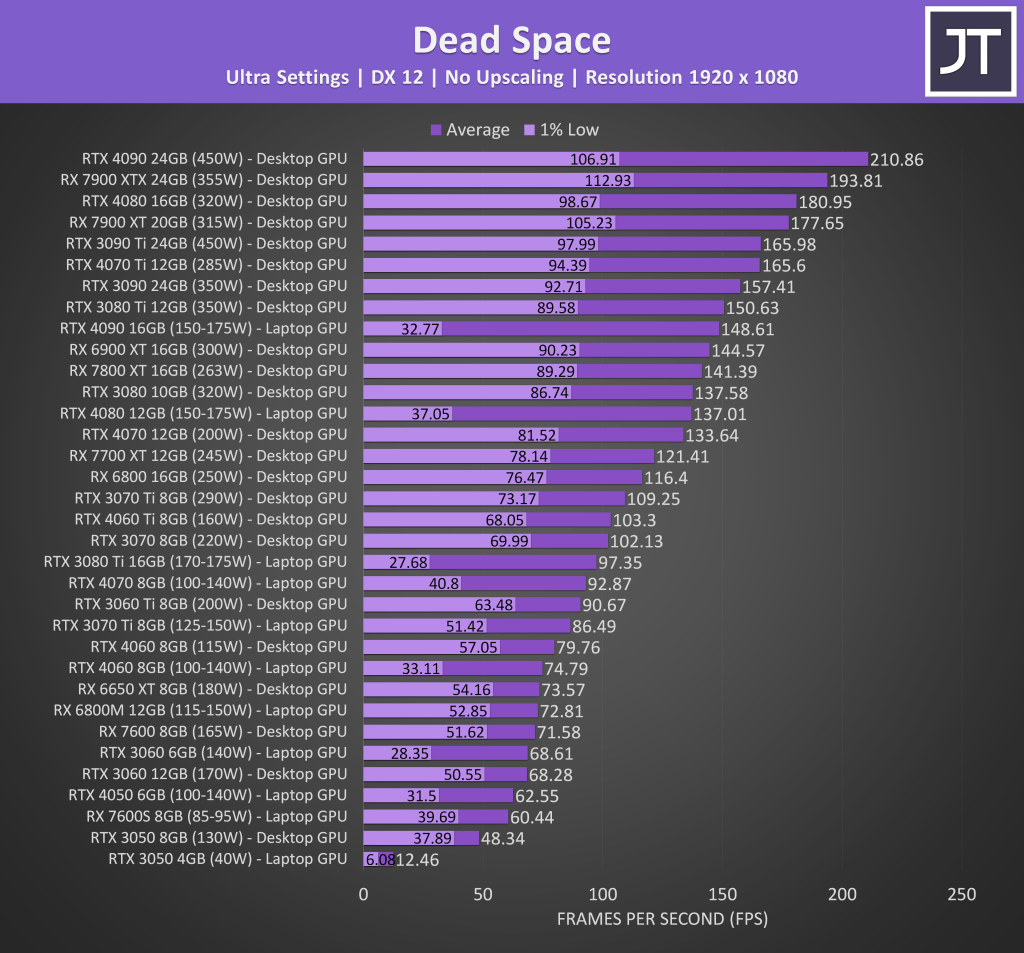 1440p
1440p
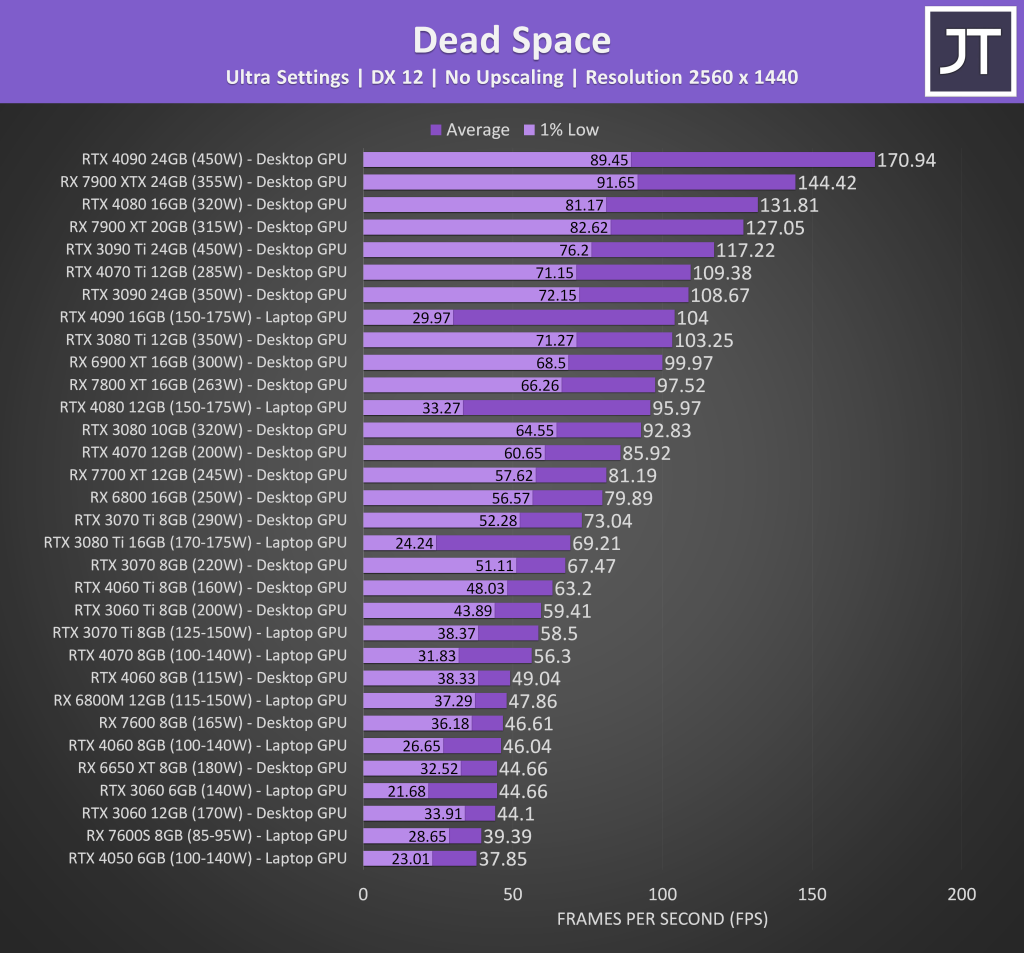 4K
4K
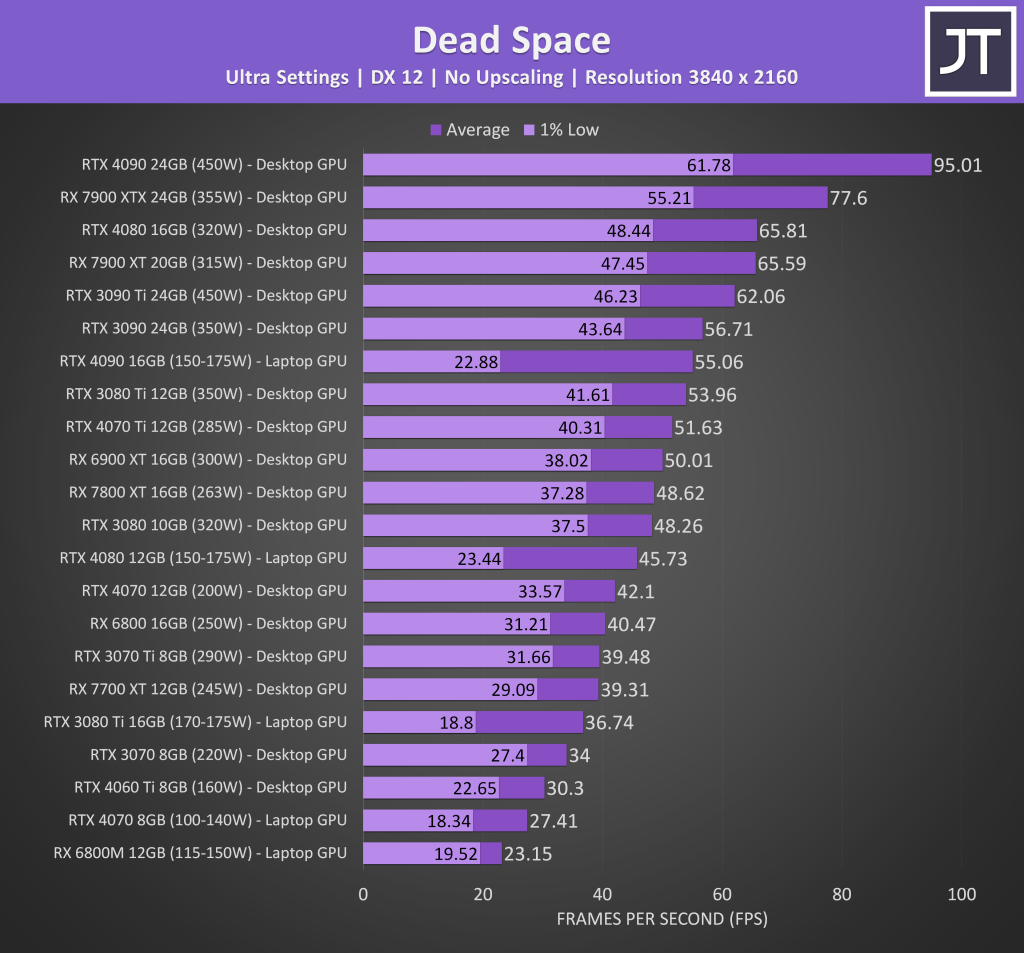
1080p
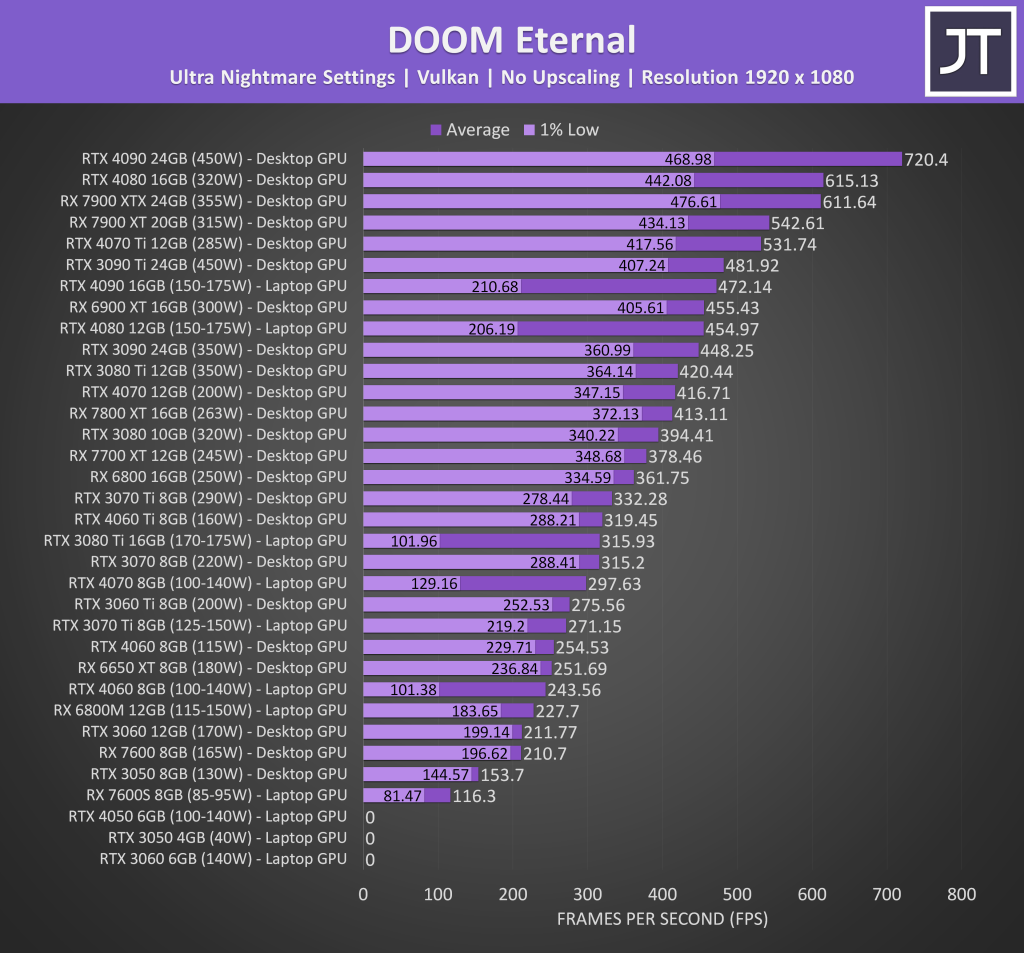 1440p
1440p
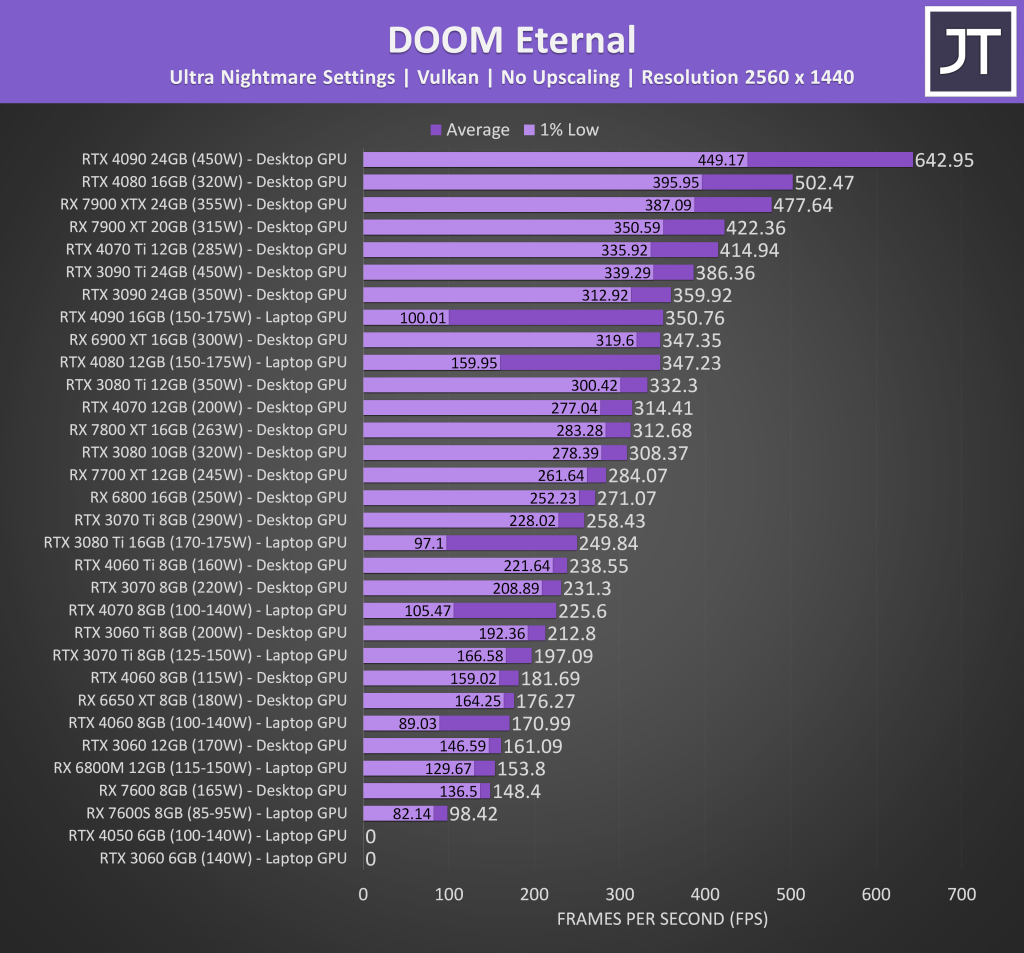 4K
4K
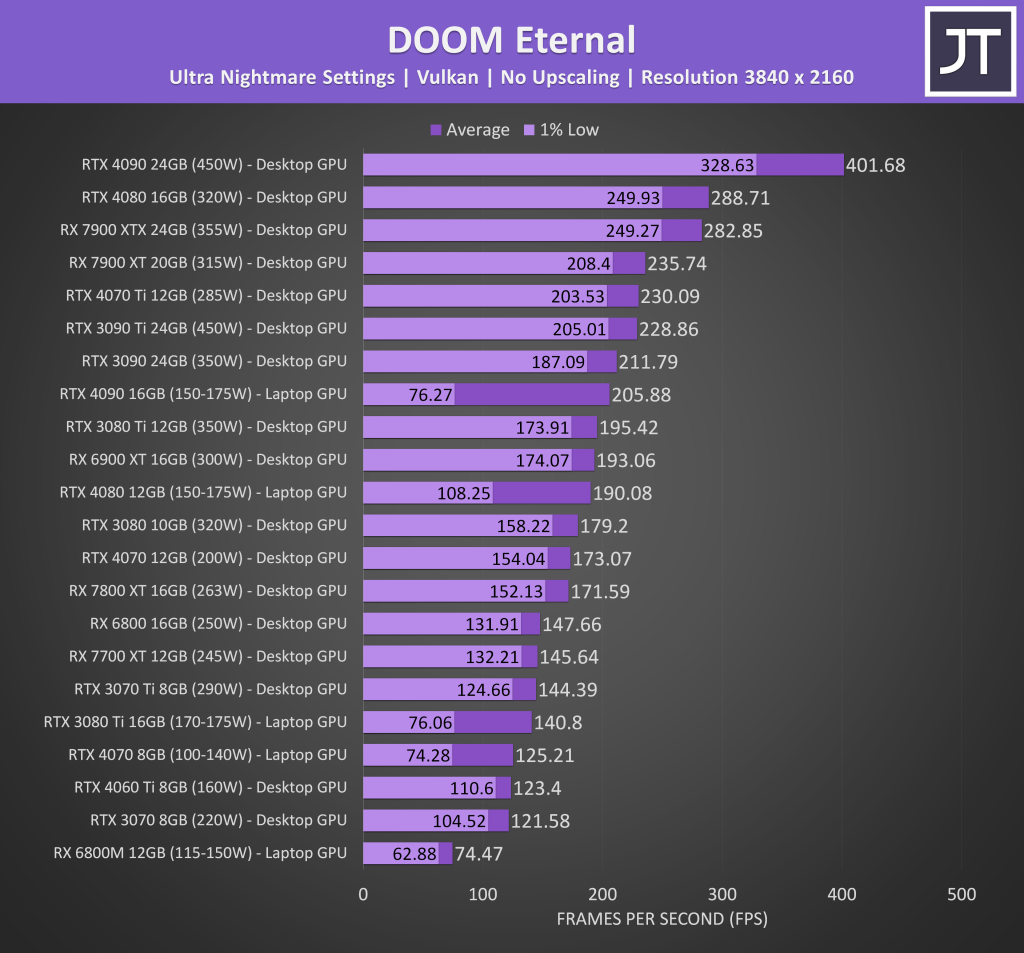
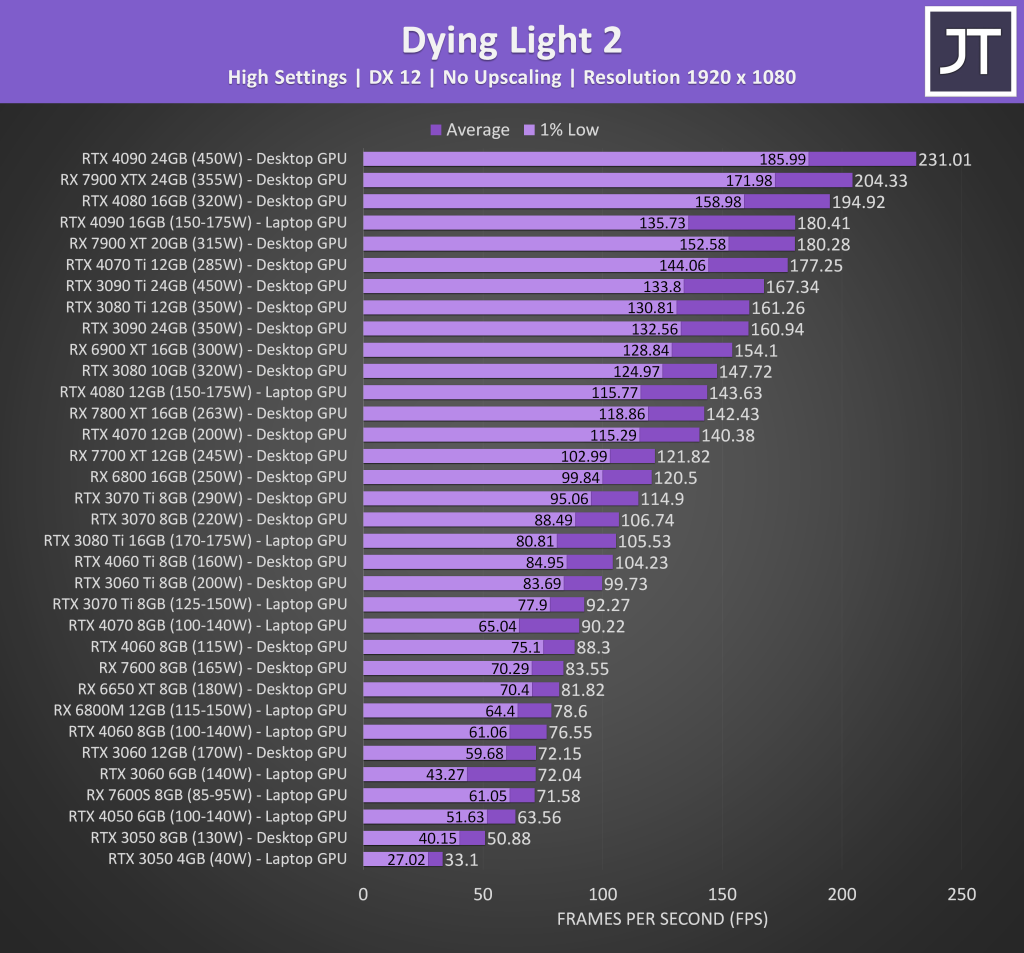 1440p
1440p
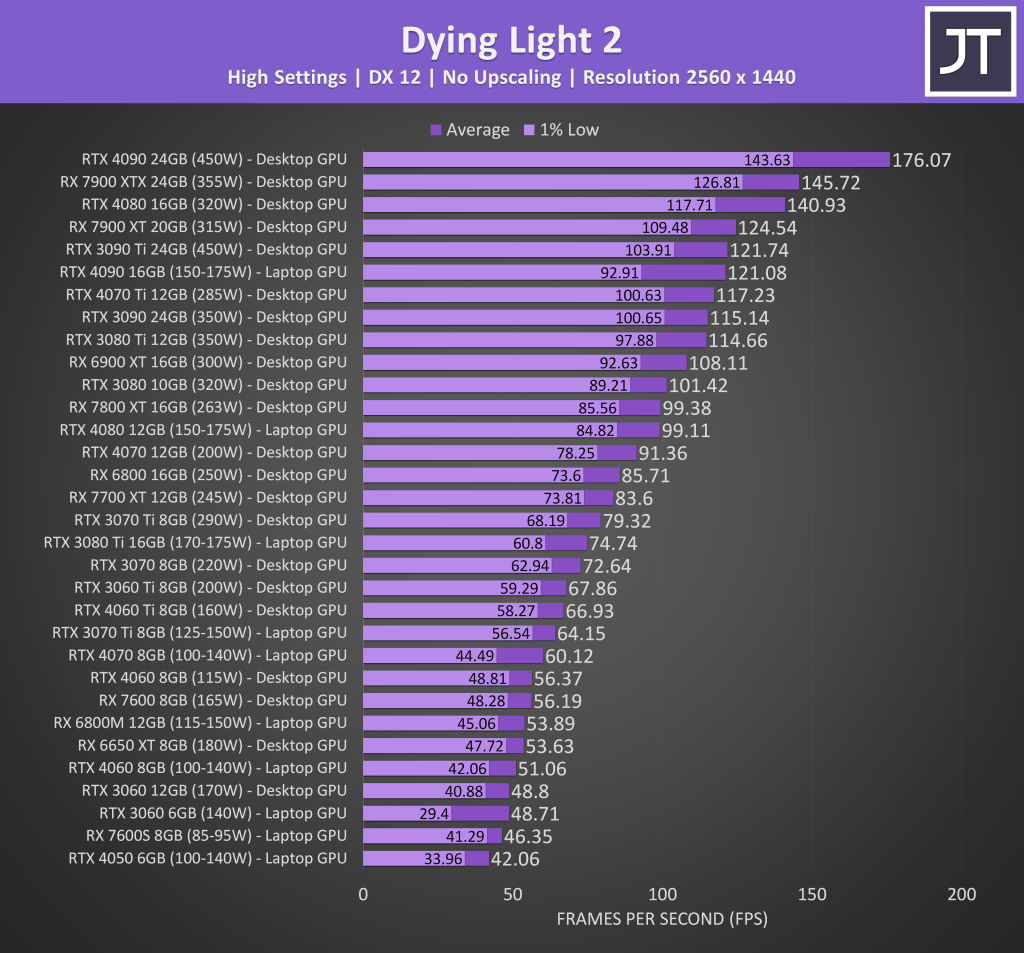 4K
4K
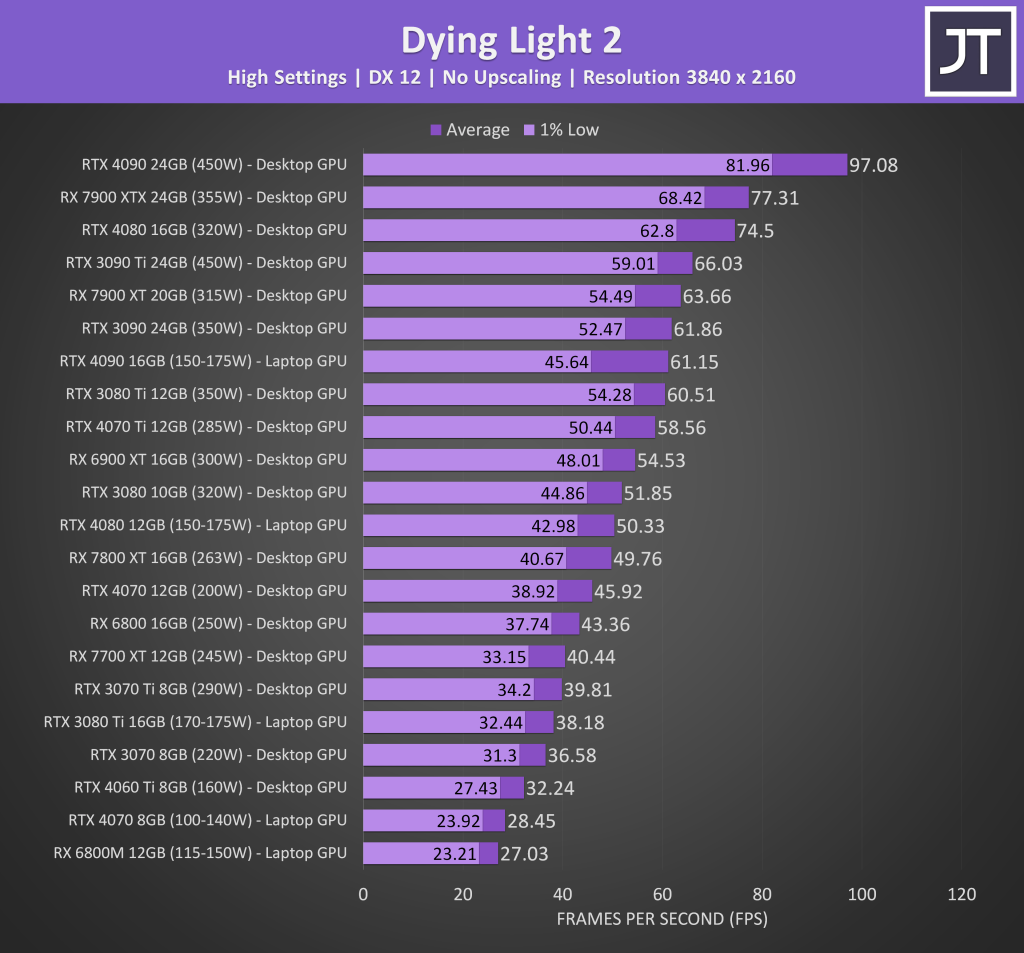
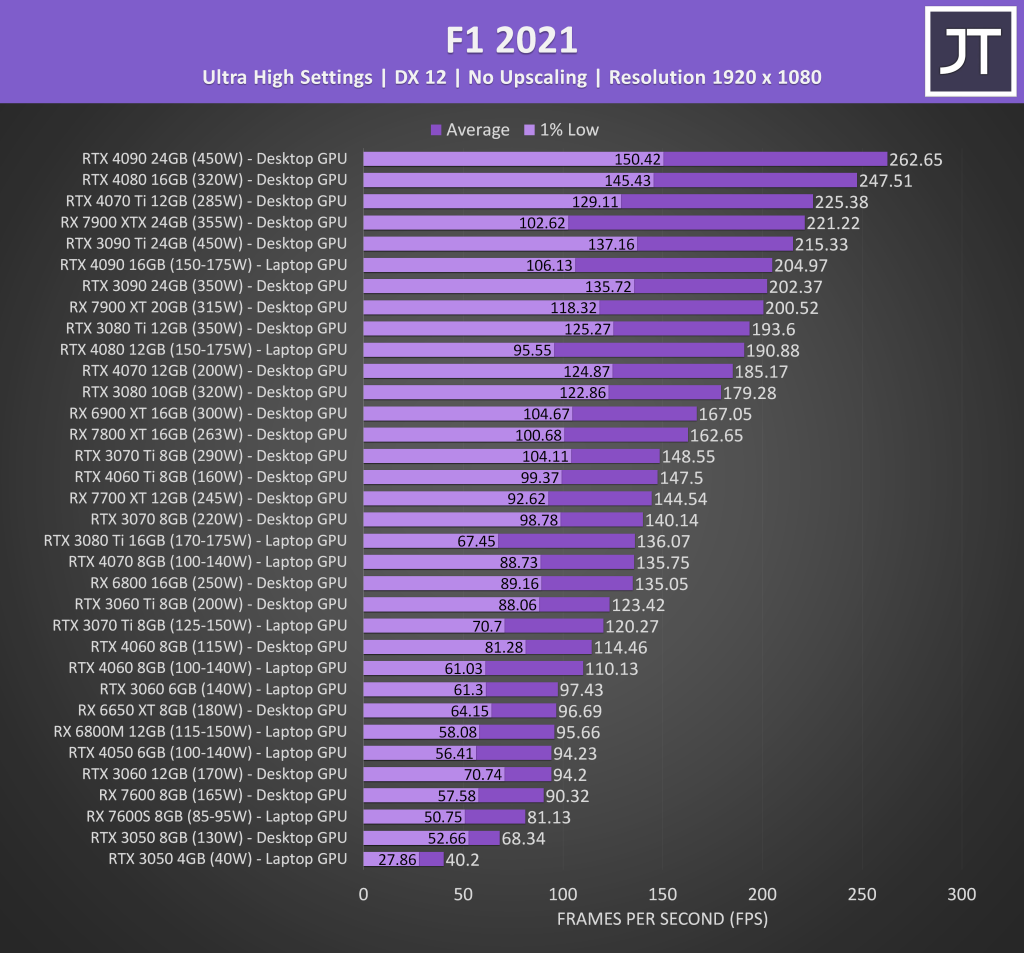 1440p
1440p
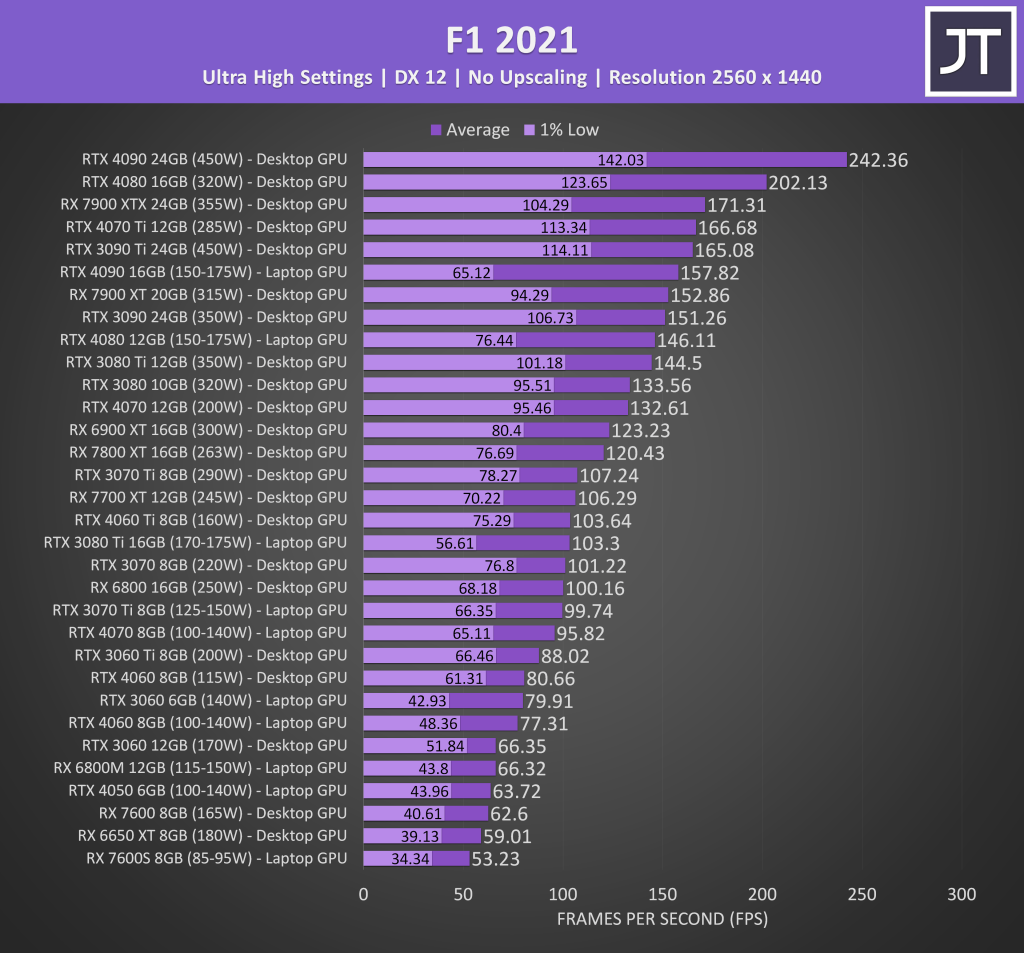 4K
4K
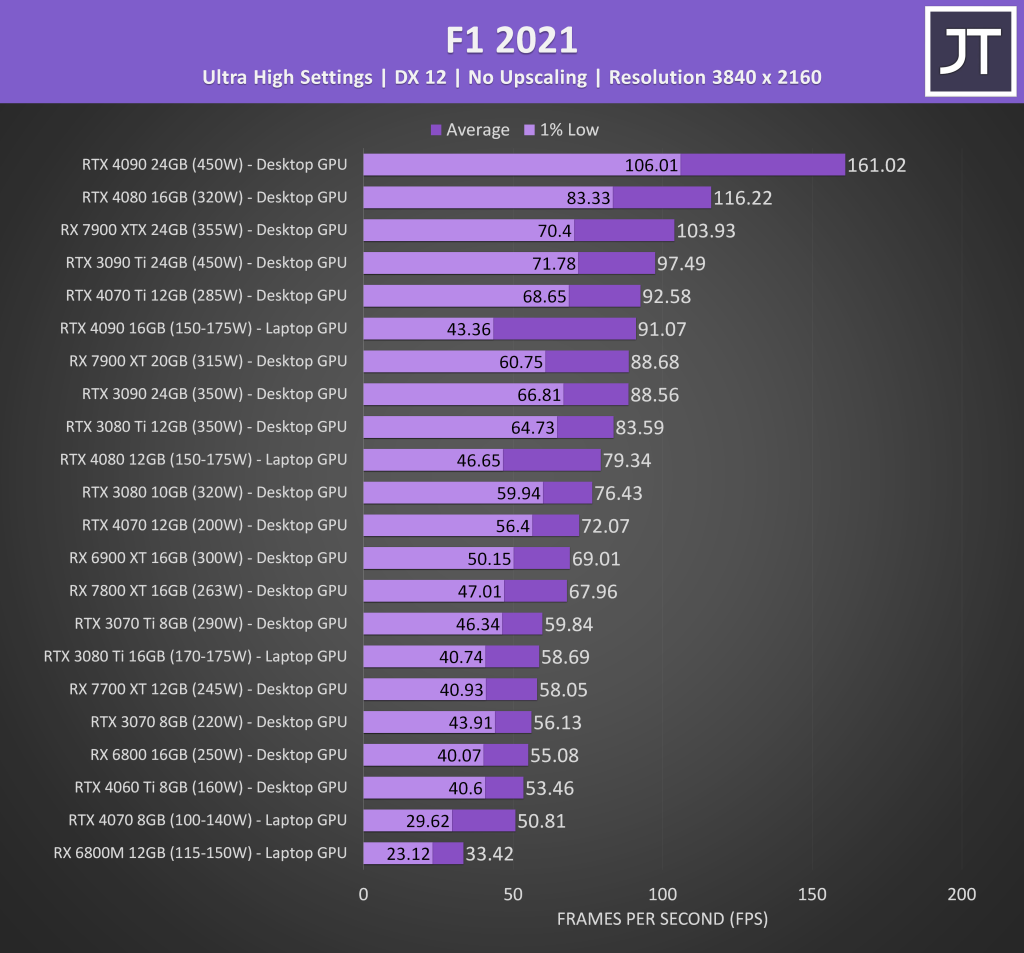
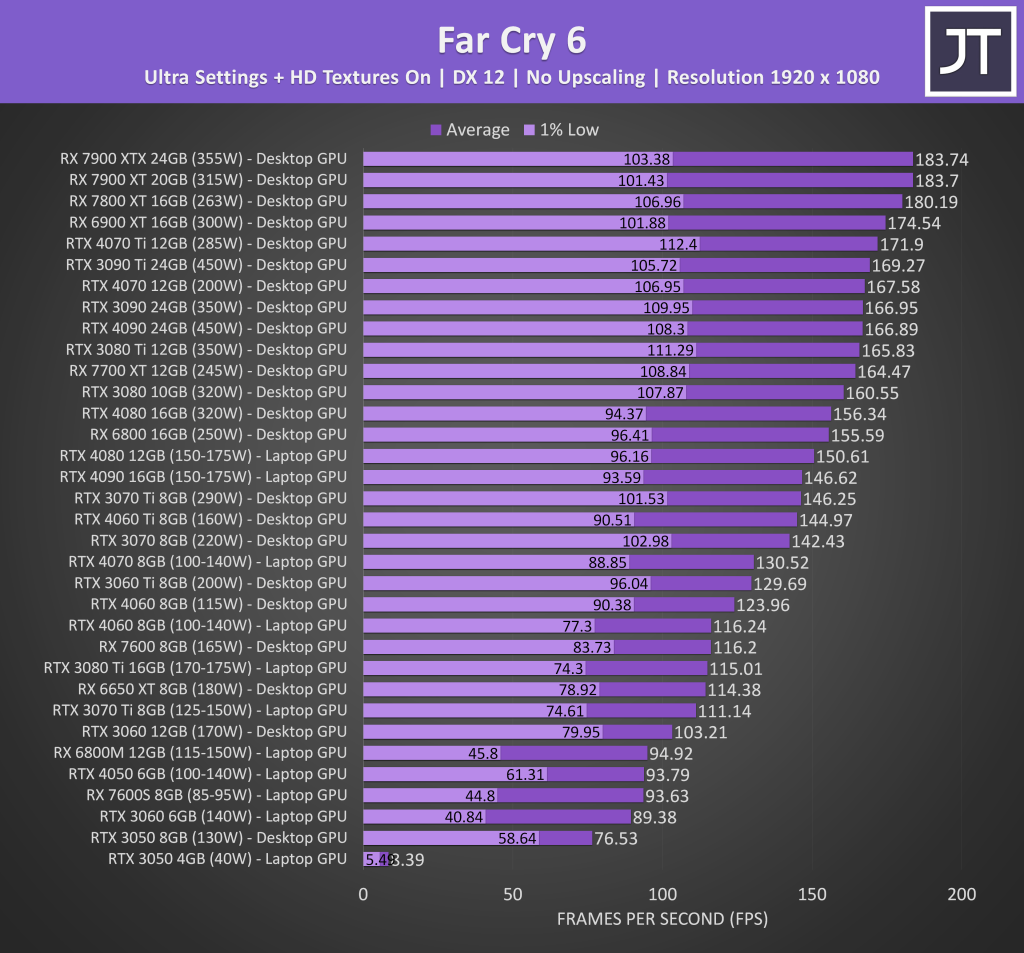 1440p
1440p
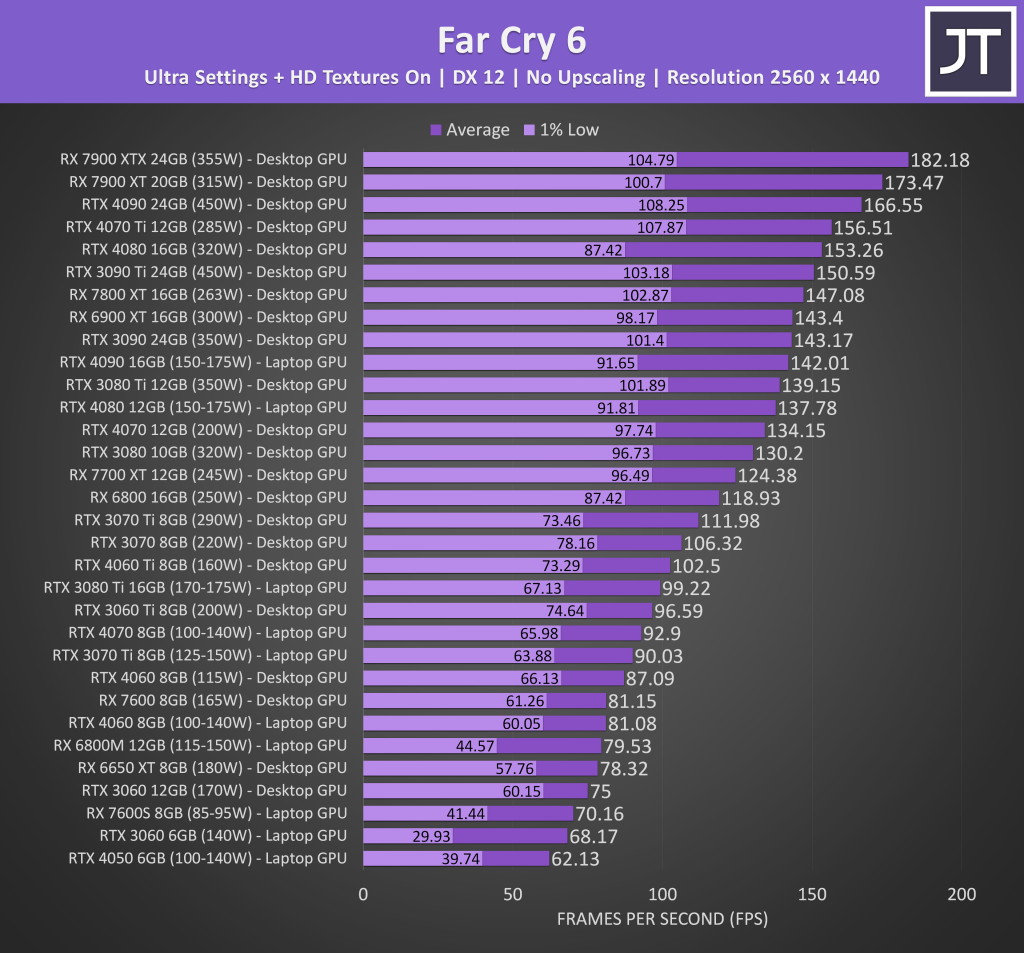 4K
4K
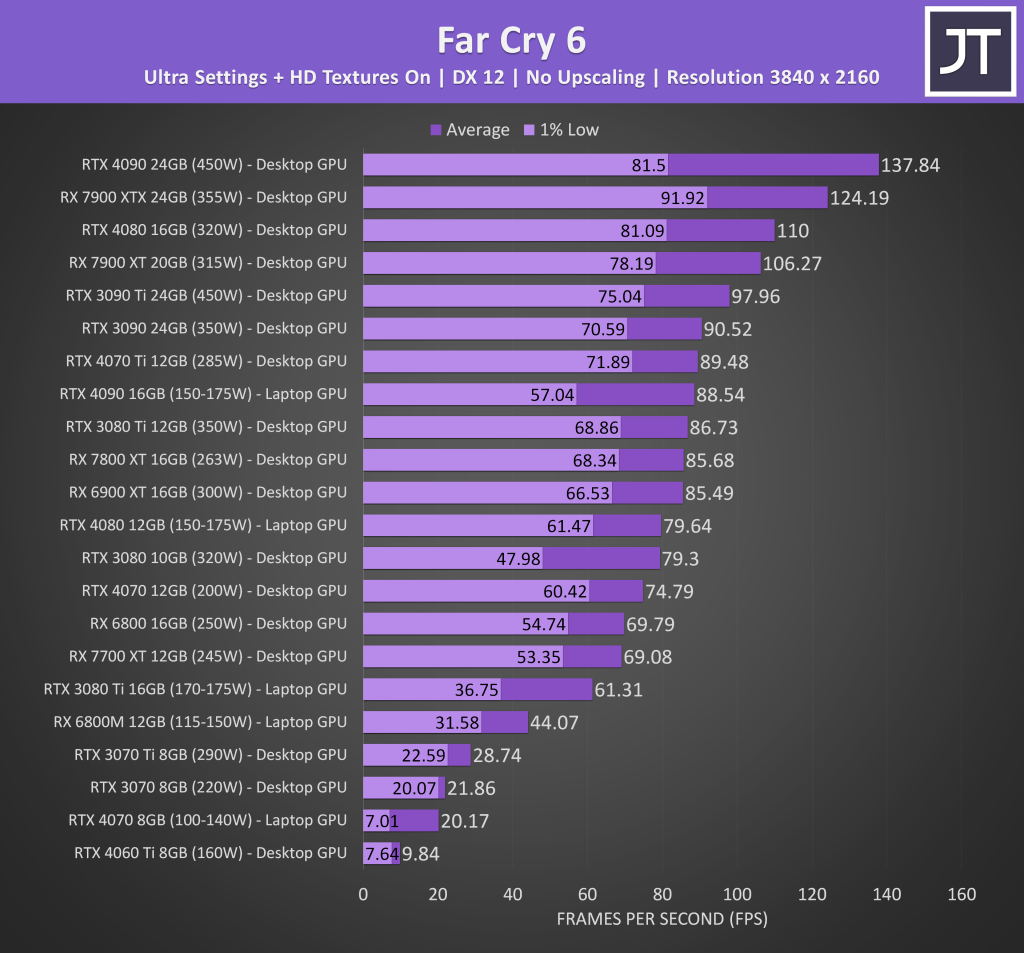
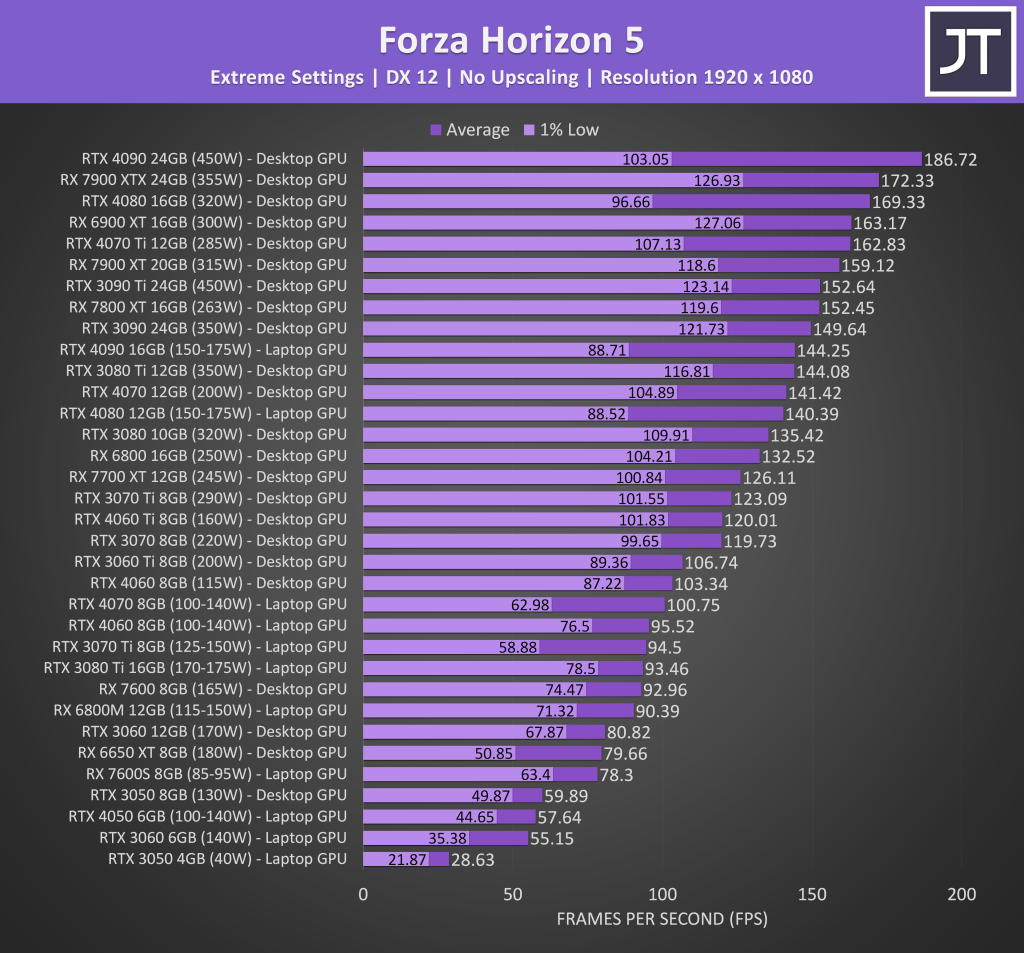 1440p
1440p
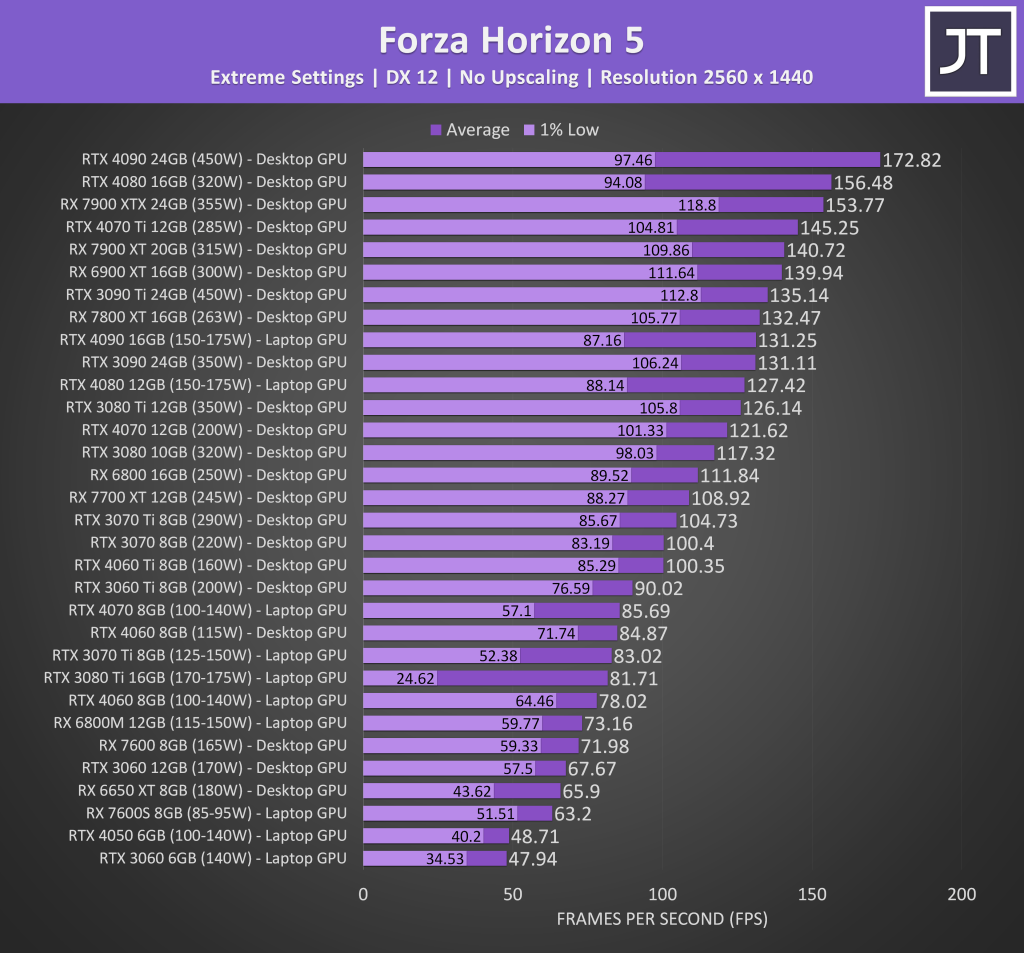 4K
4K
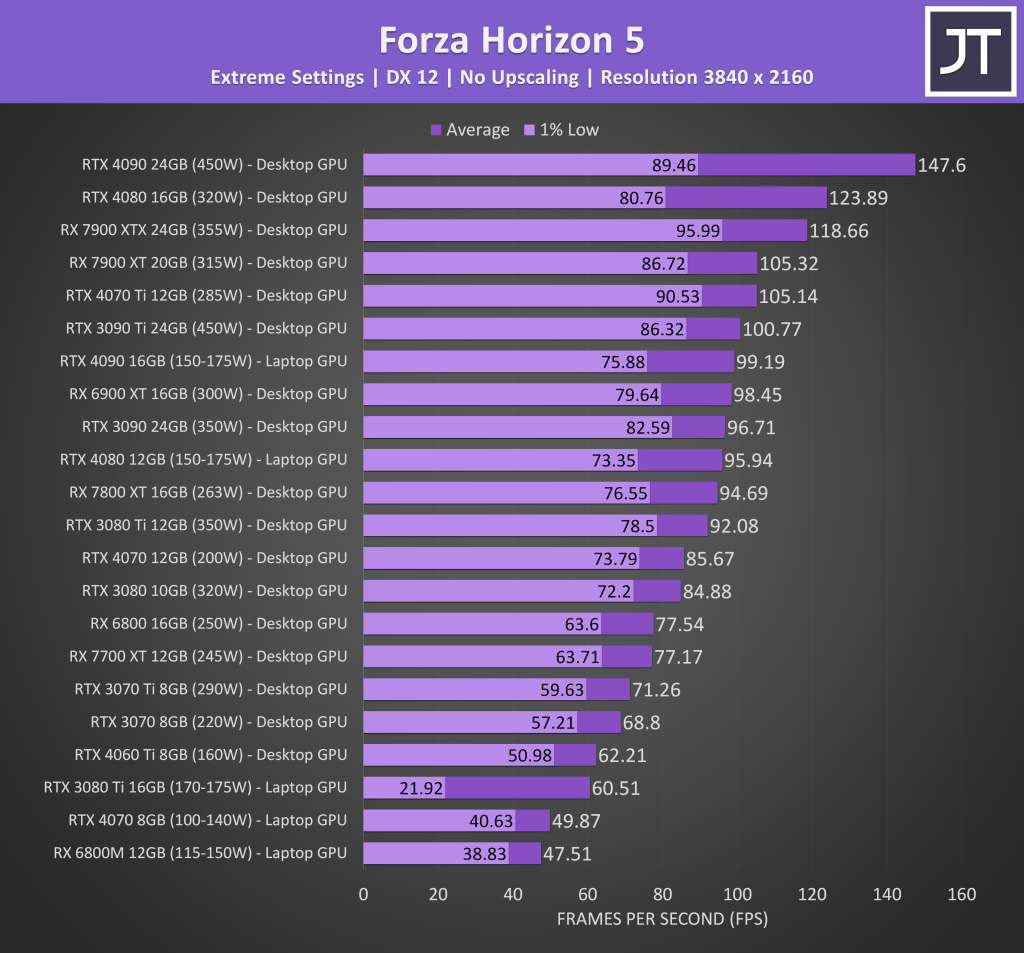
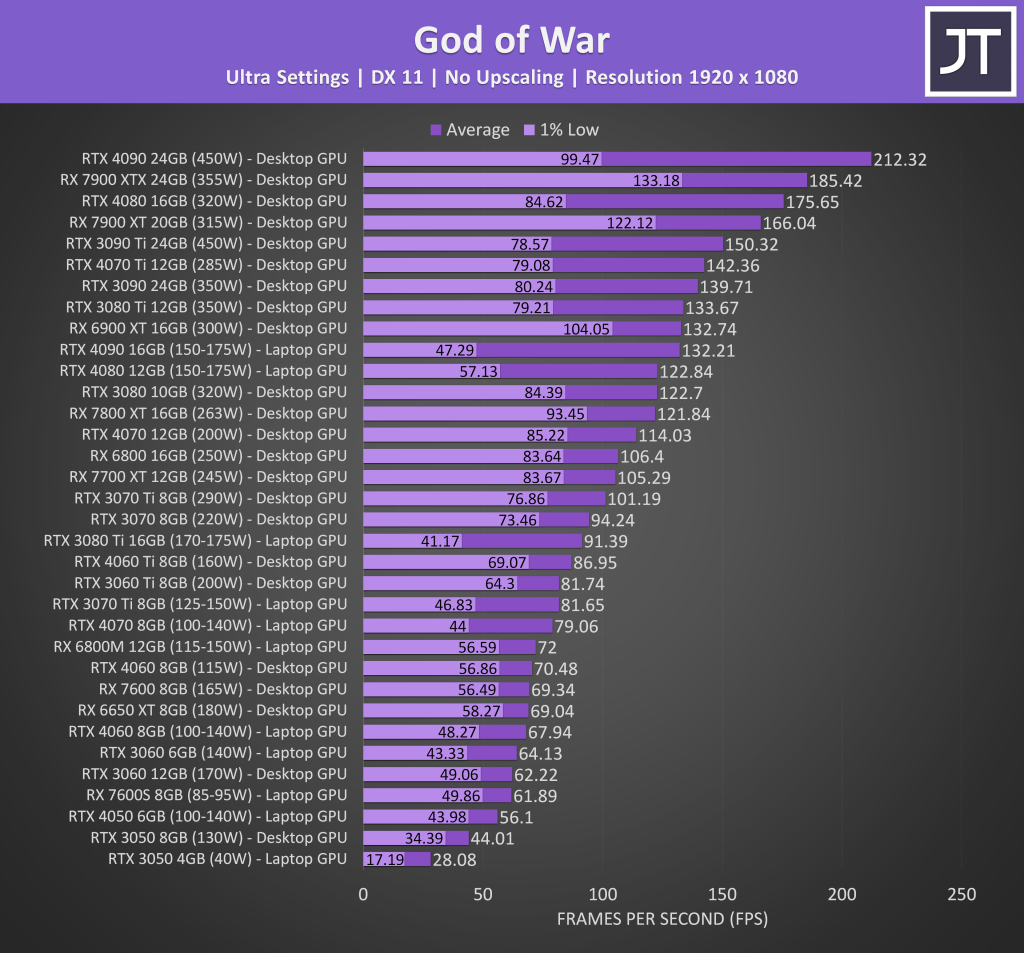 1440p
1440p
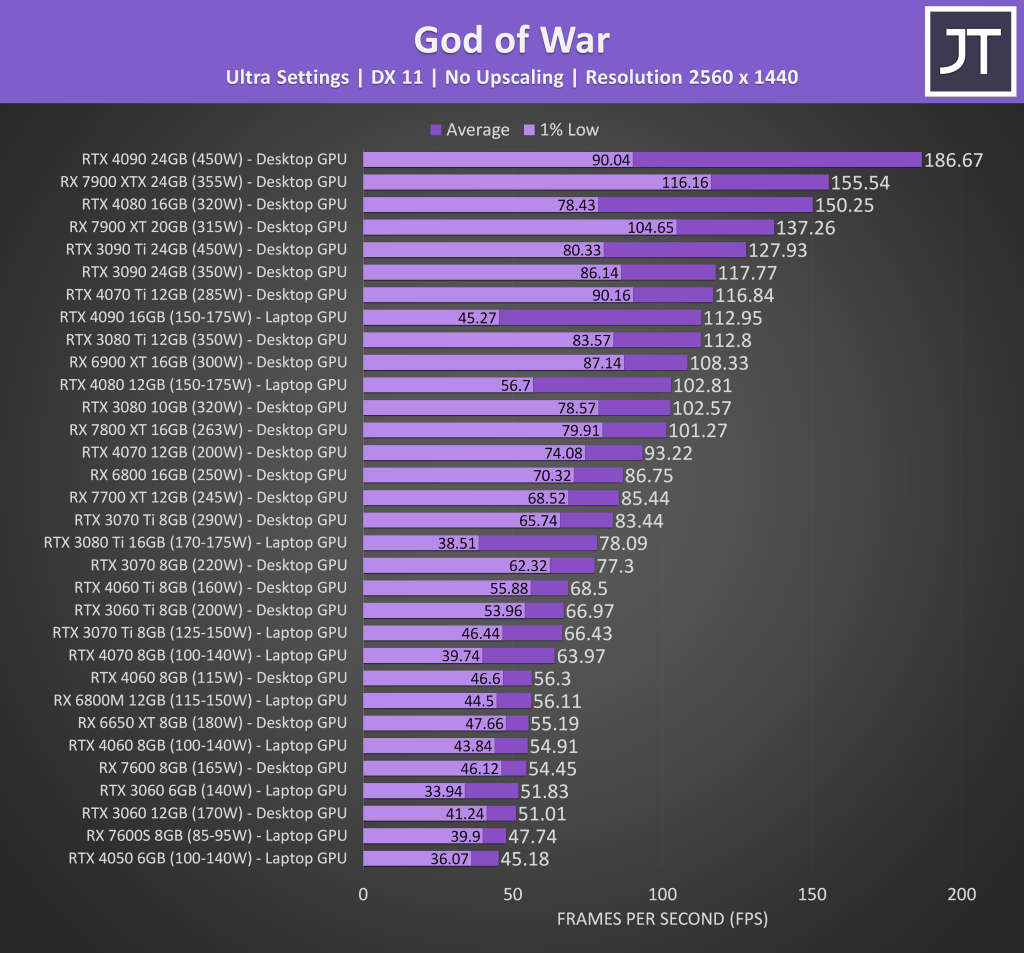 4K
4K
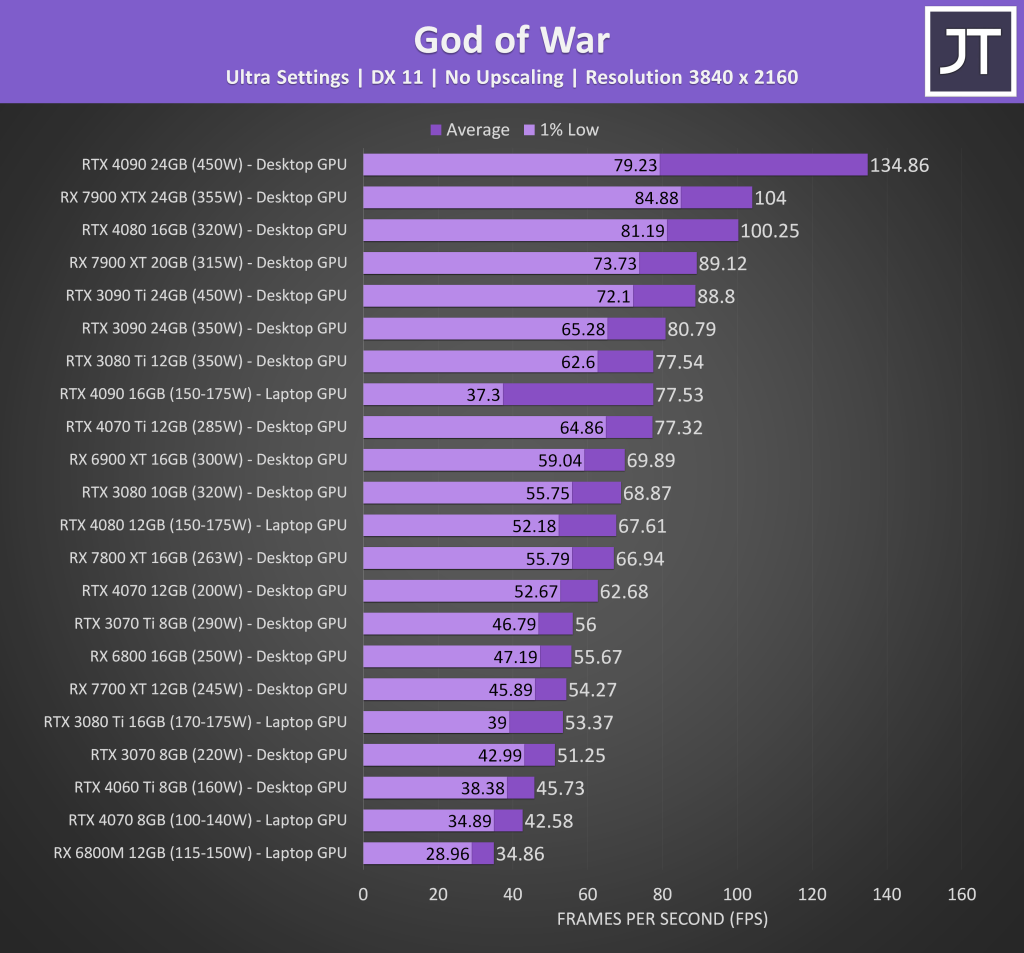
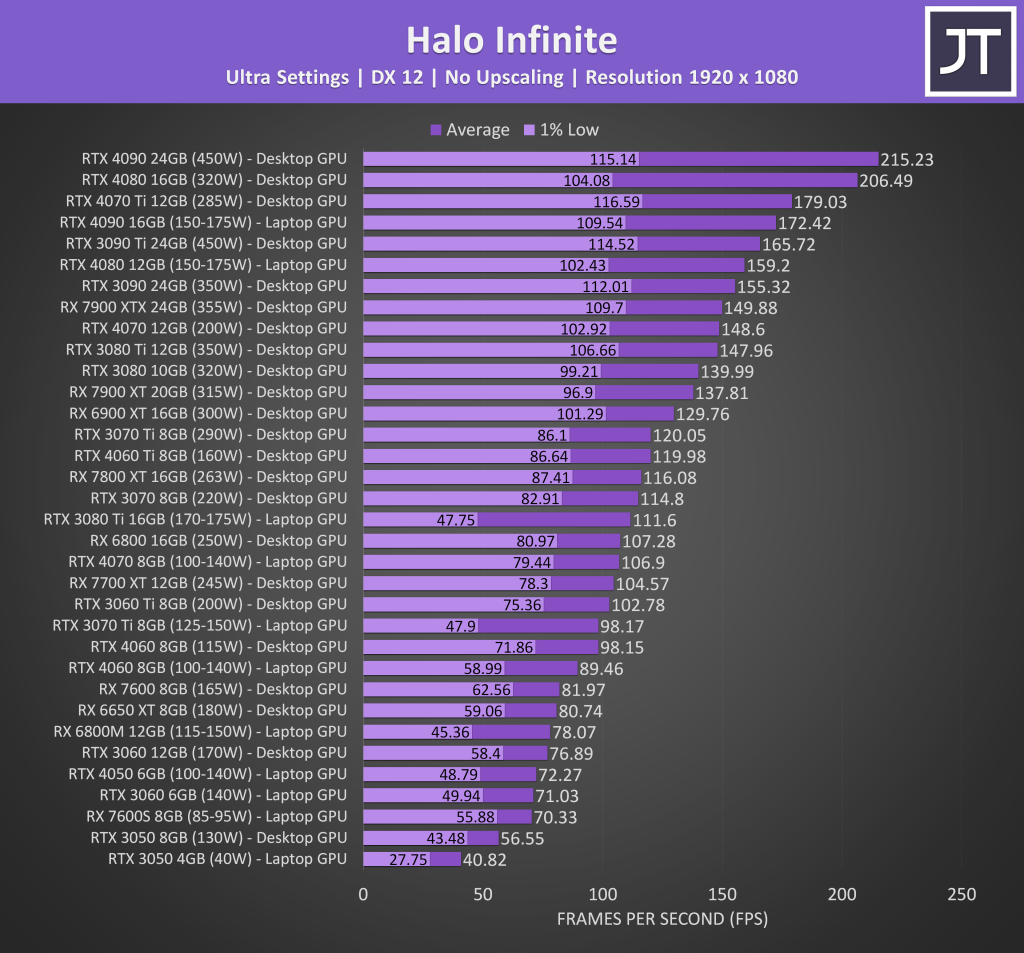 1440p
1440p
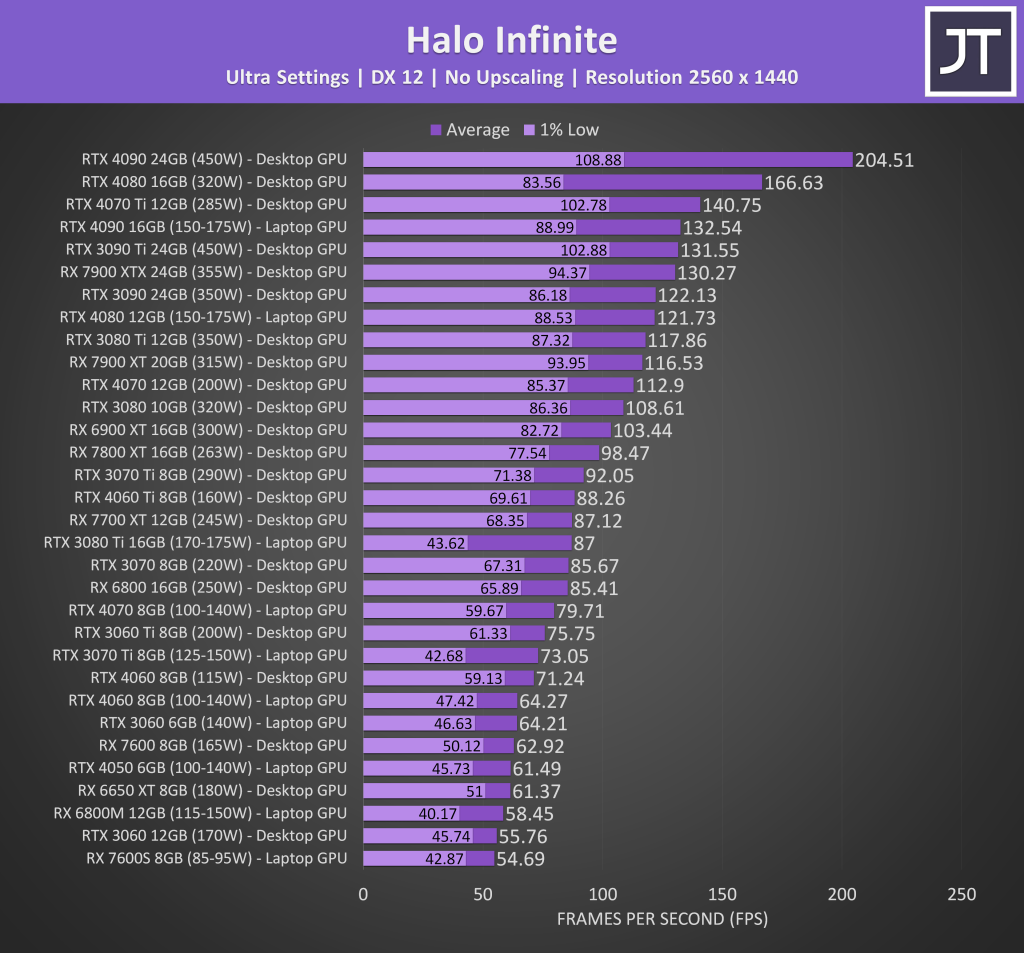 4K
4K
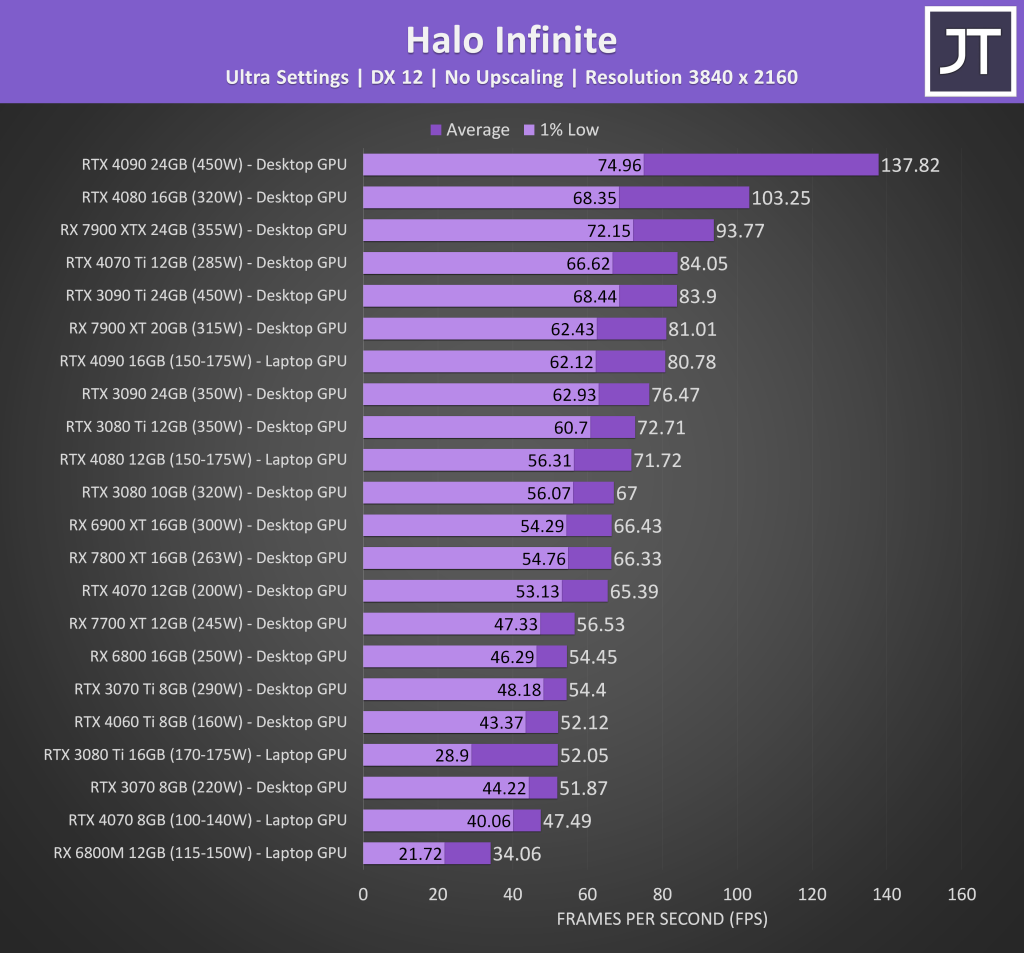
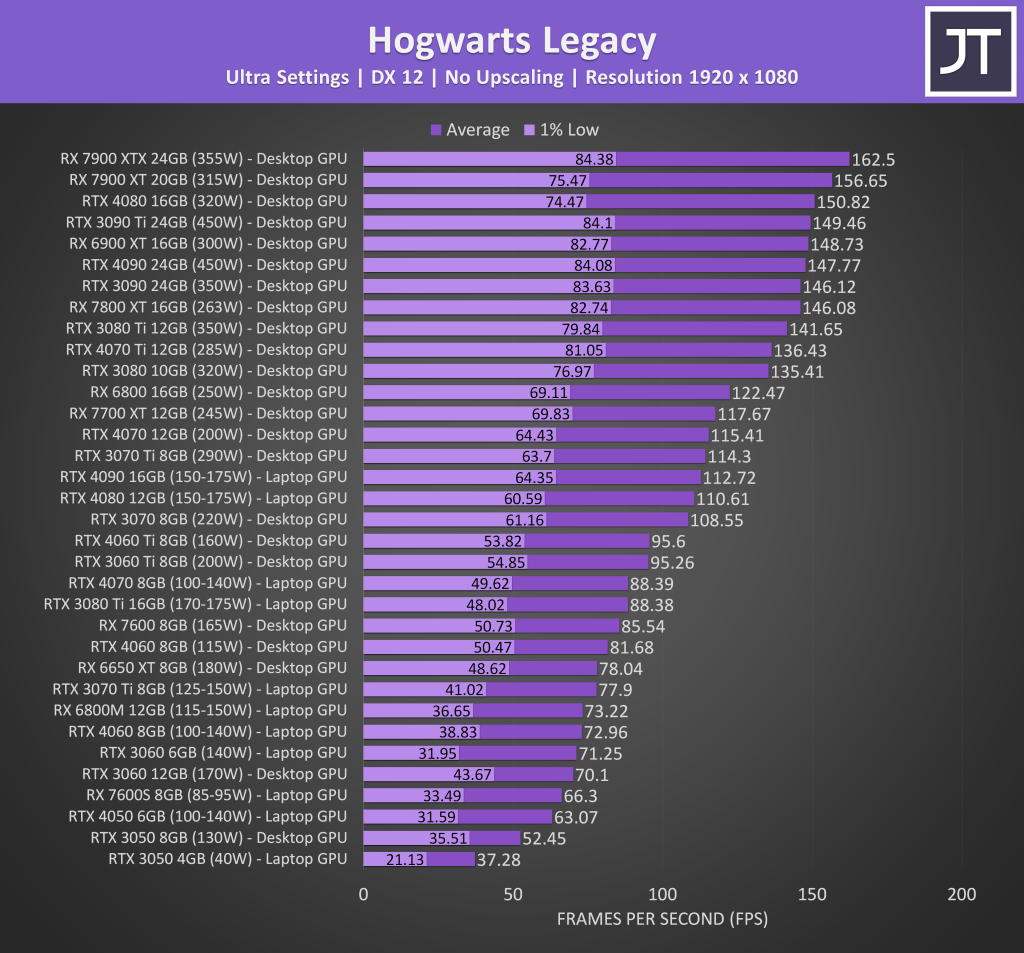 1440p
1440p
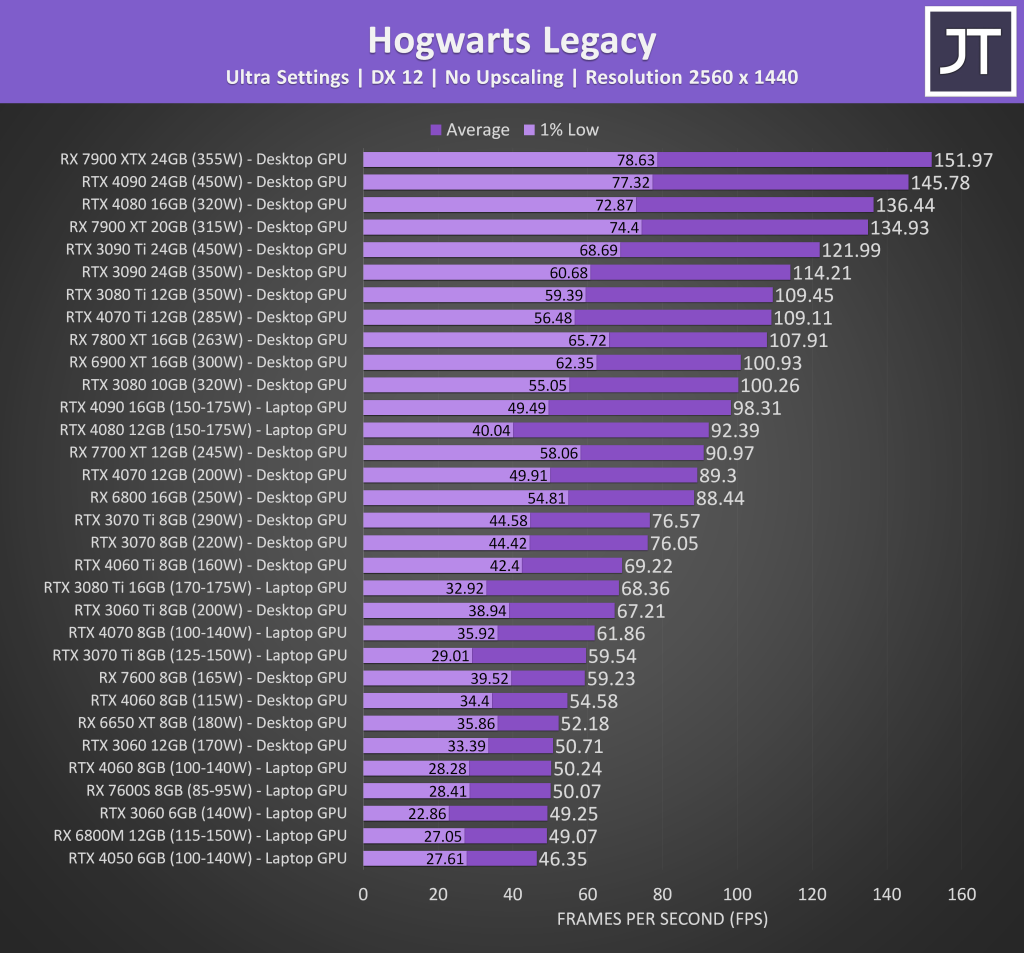 4K
4K
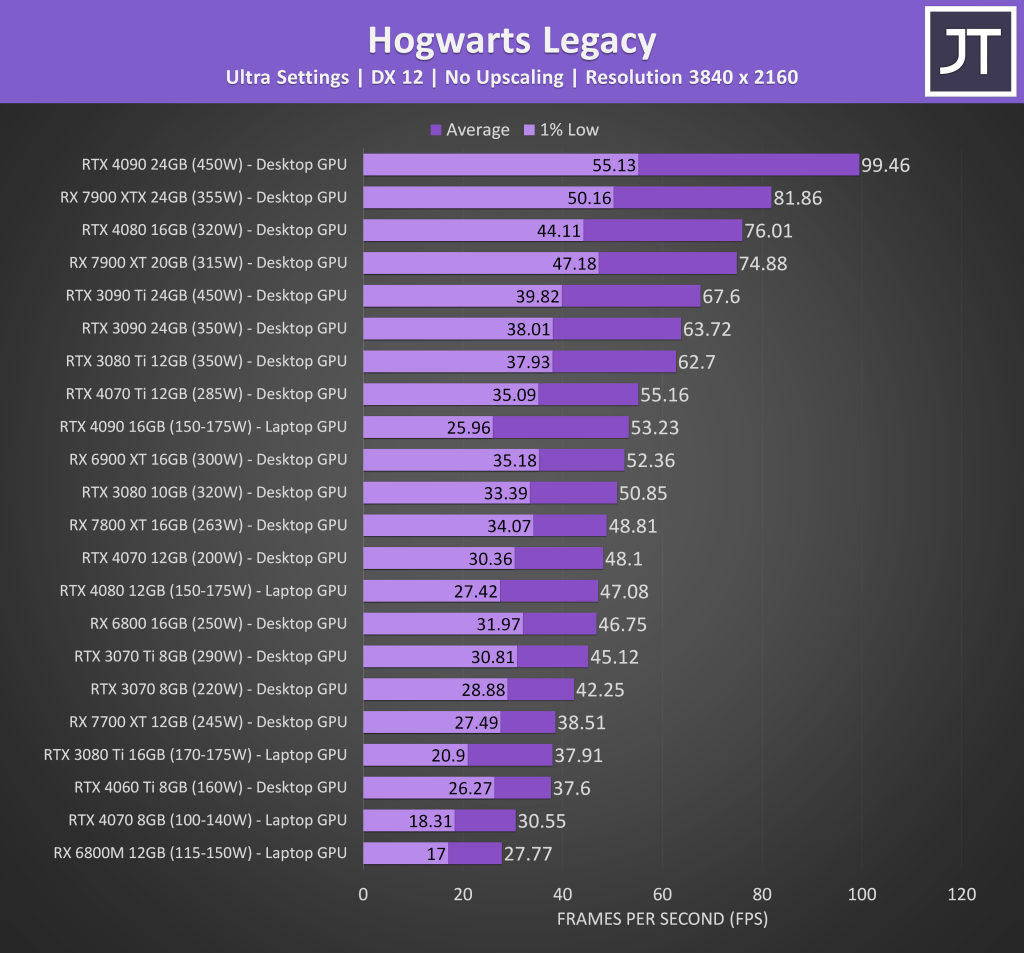
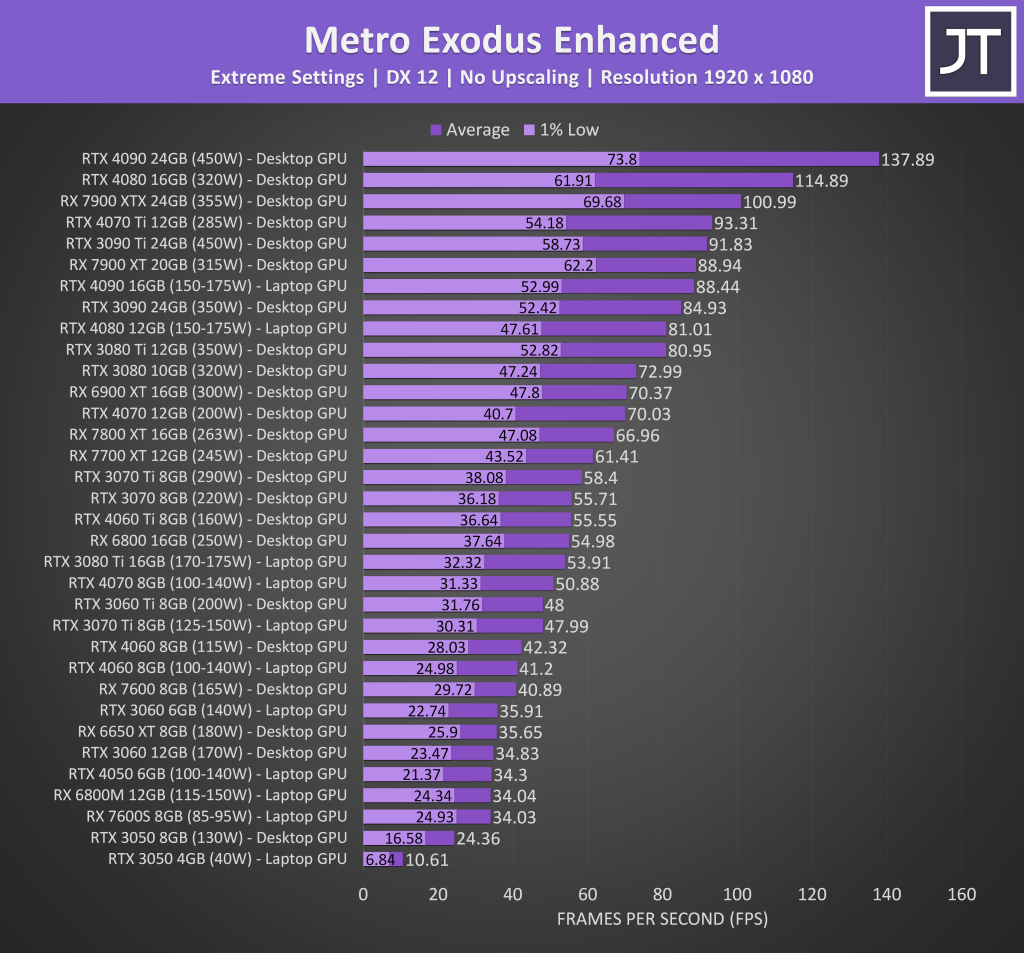 1440p
1440p
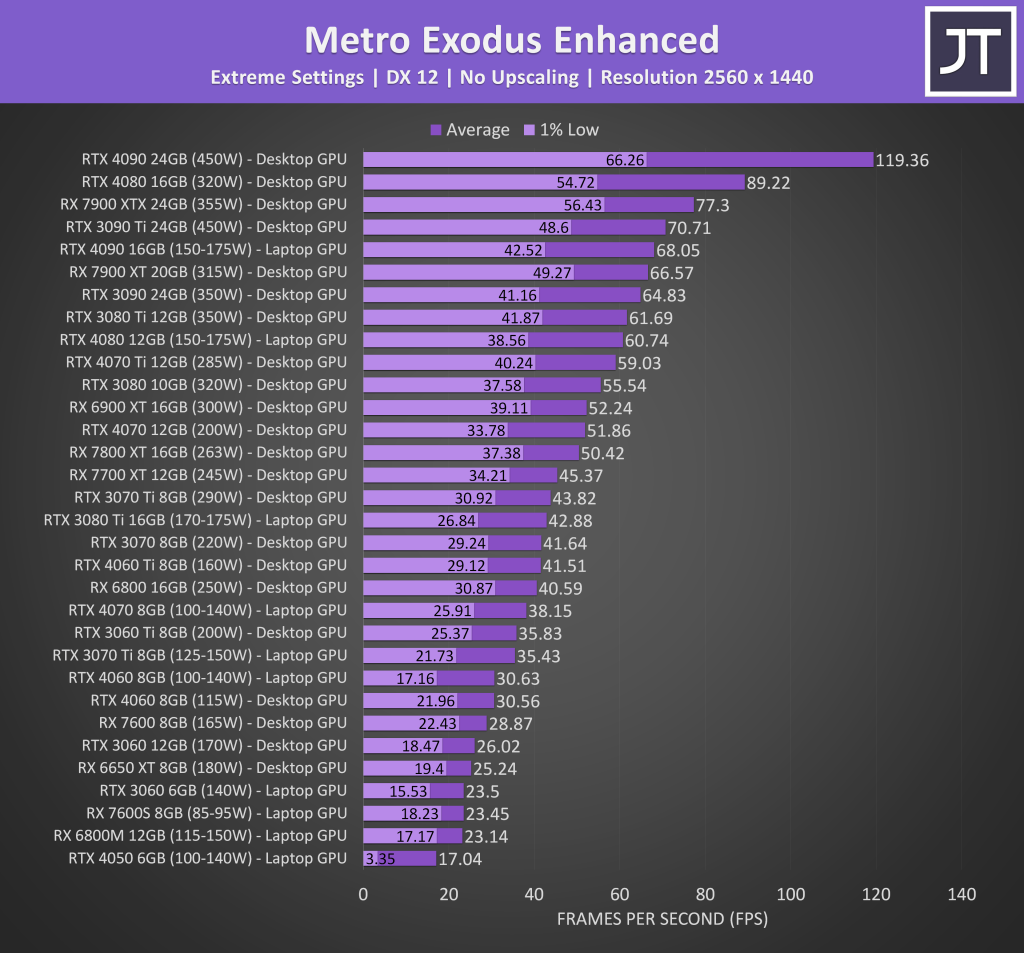 4K
4K
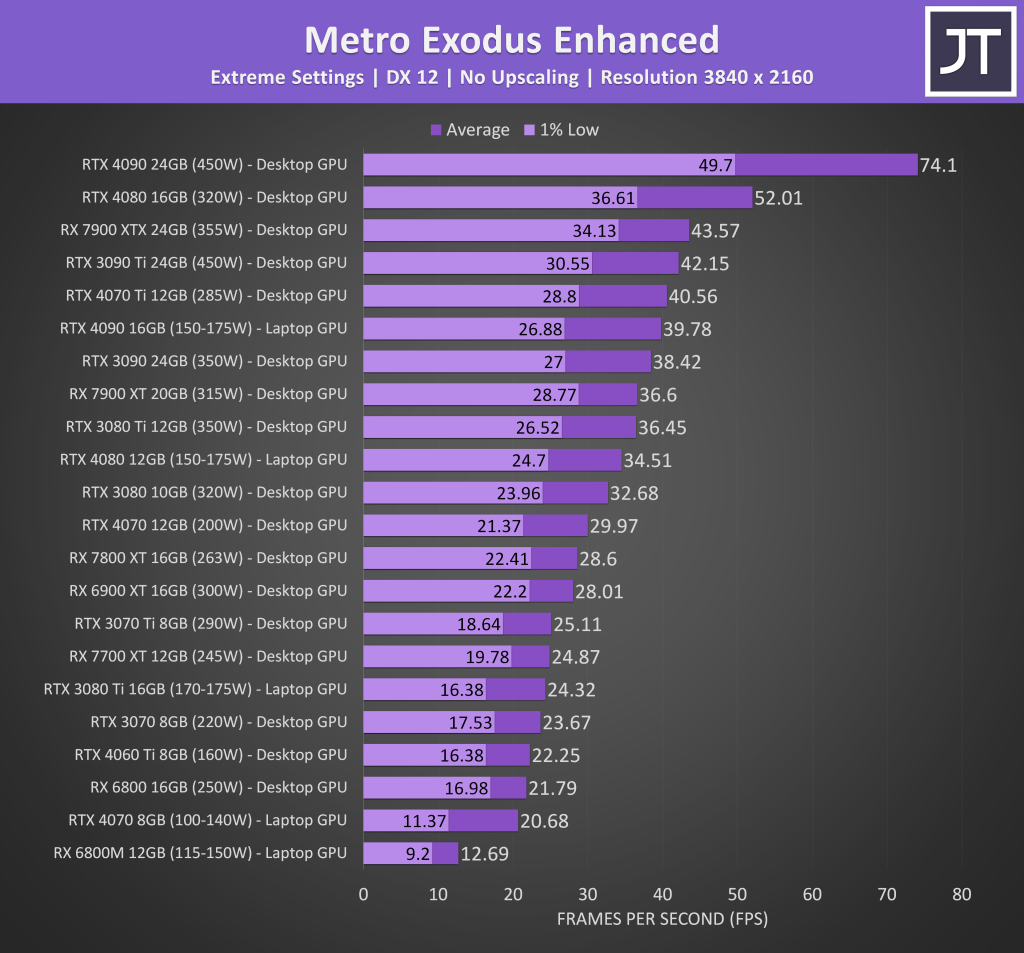
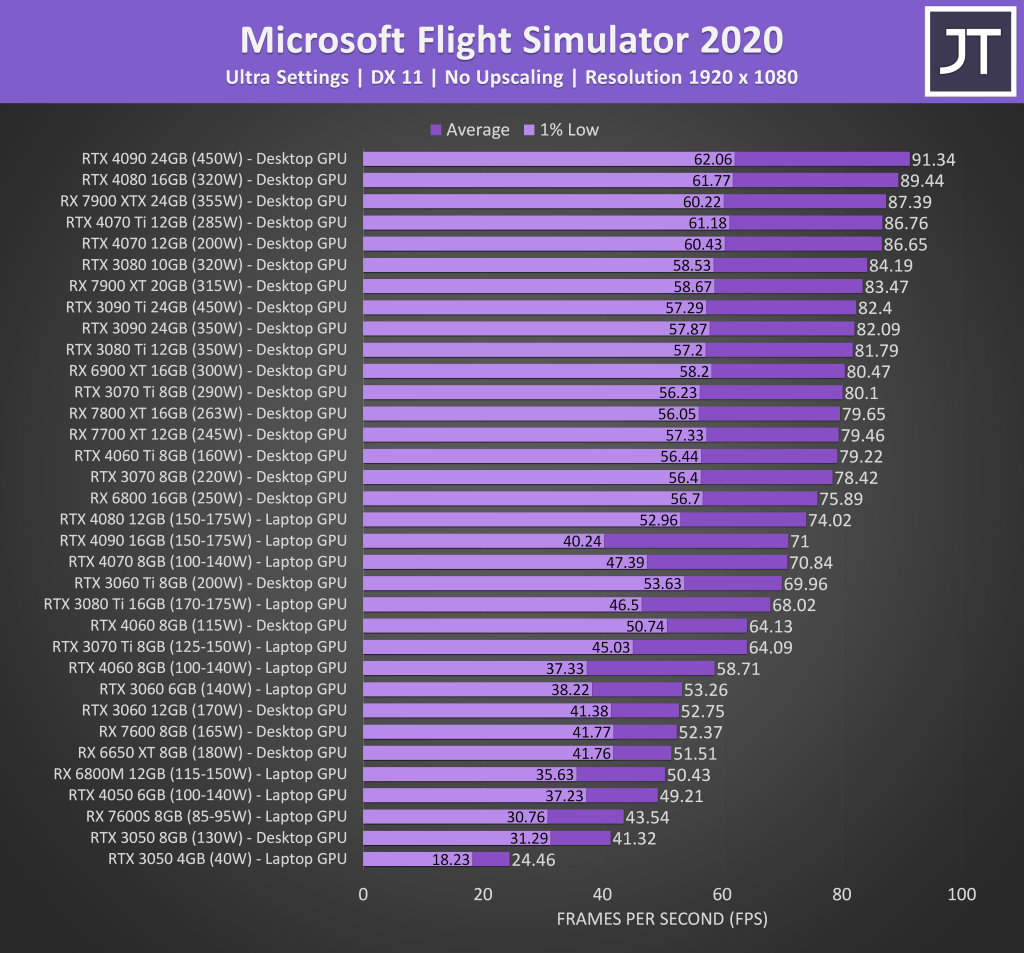 1440p
1440p
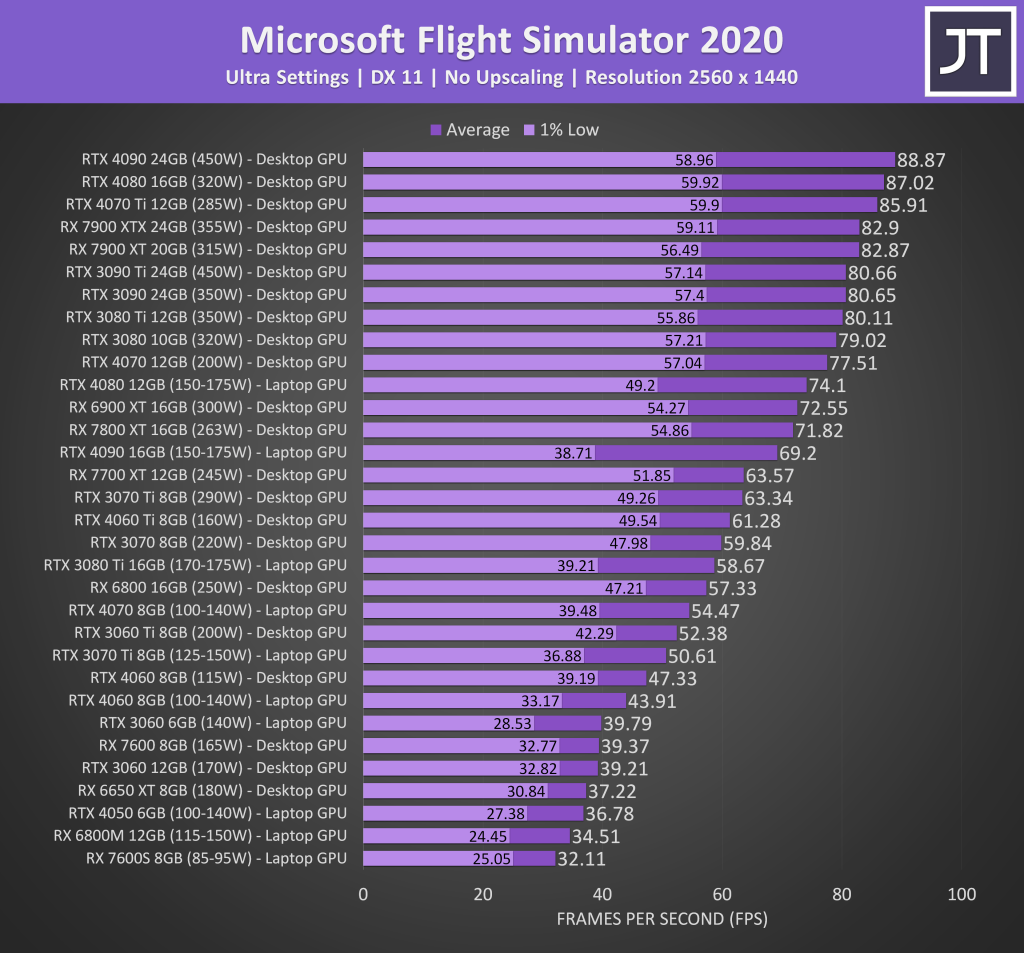 4K
4K
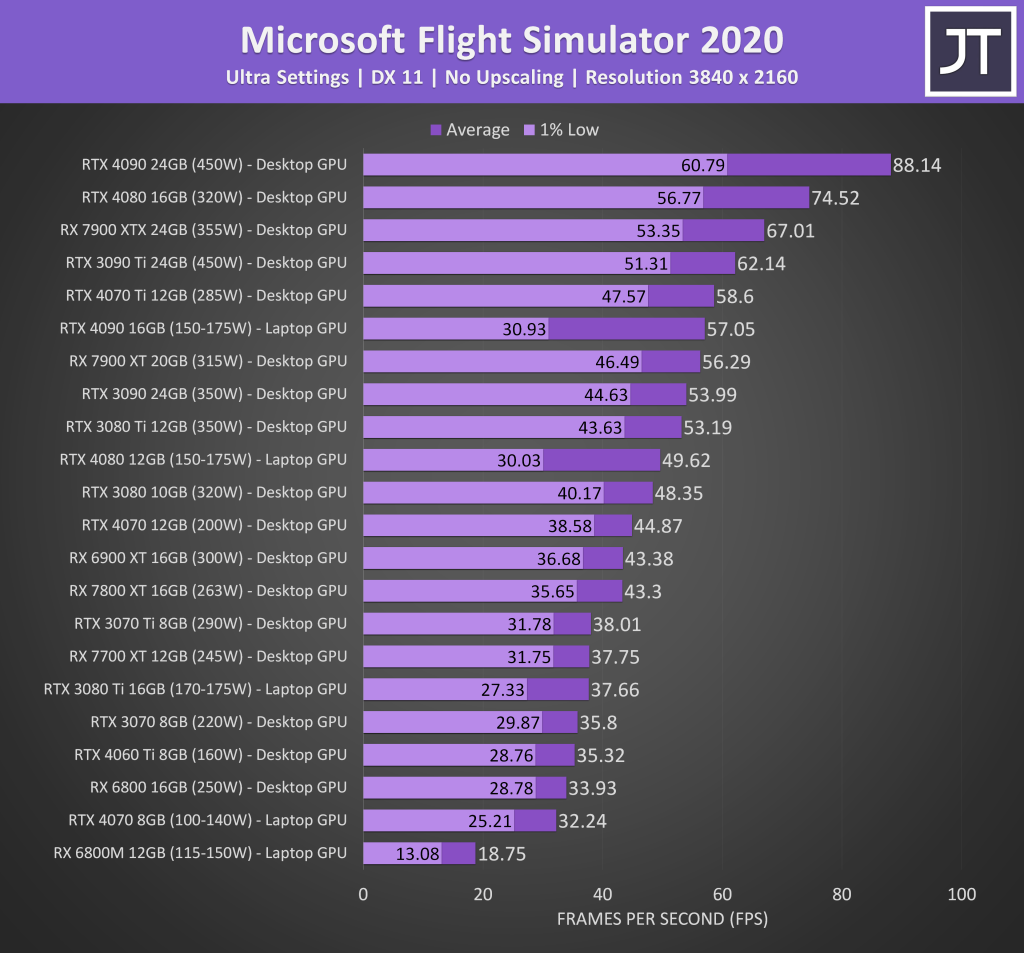
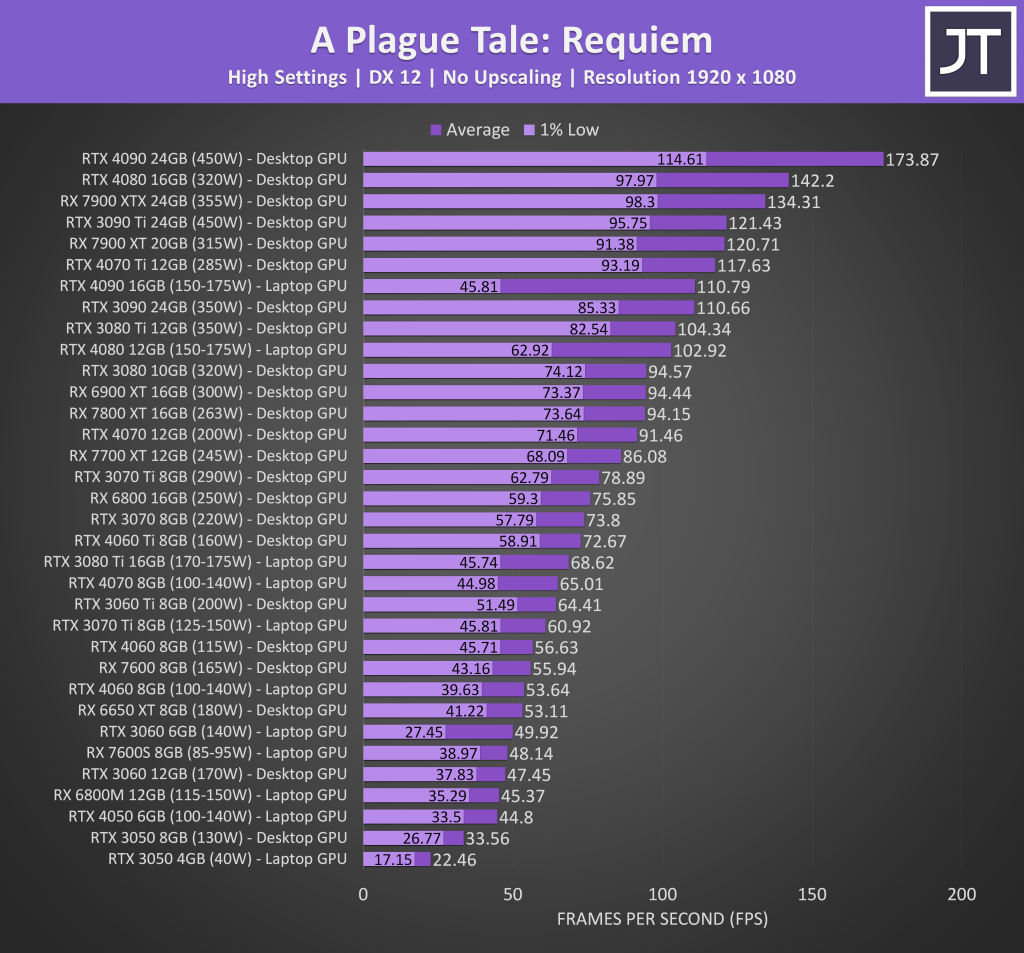 1440p
1440p
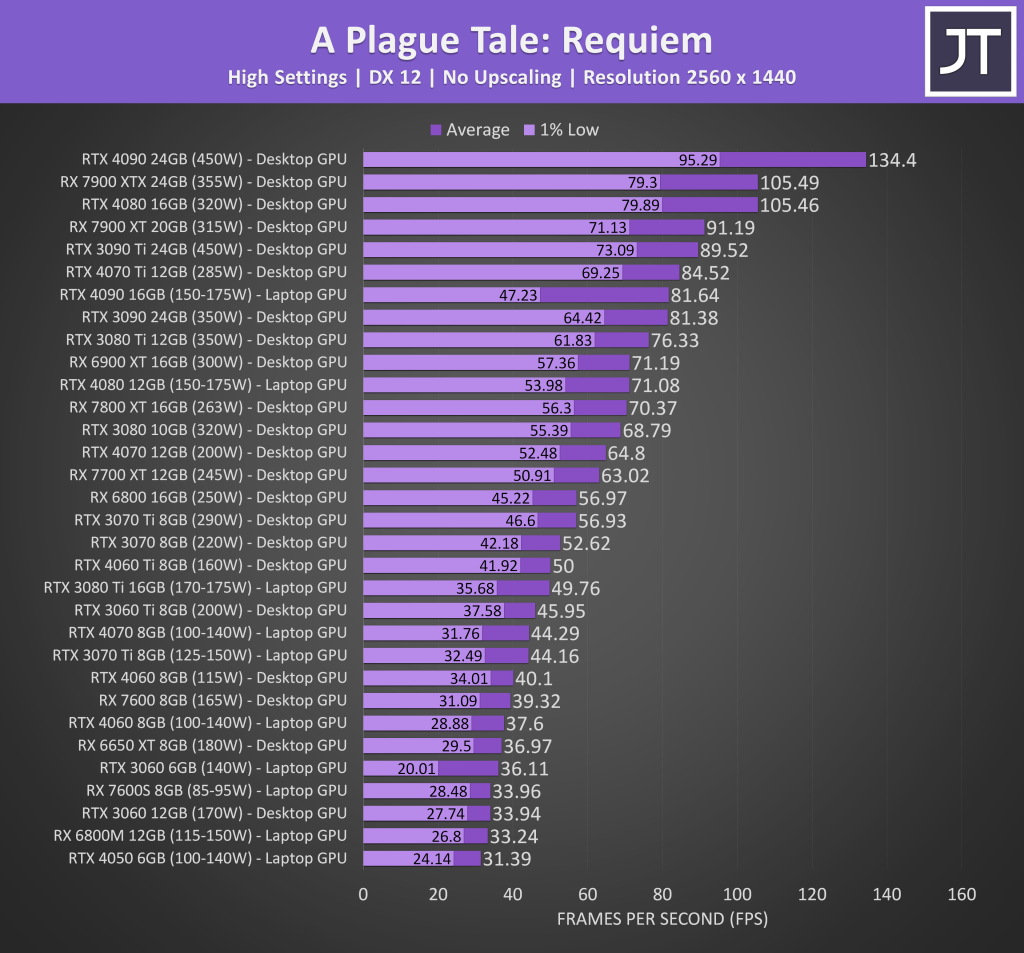 4K
4K
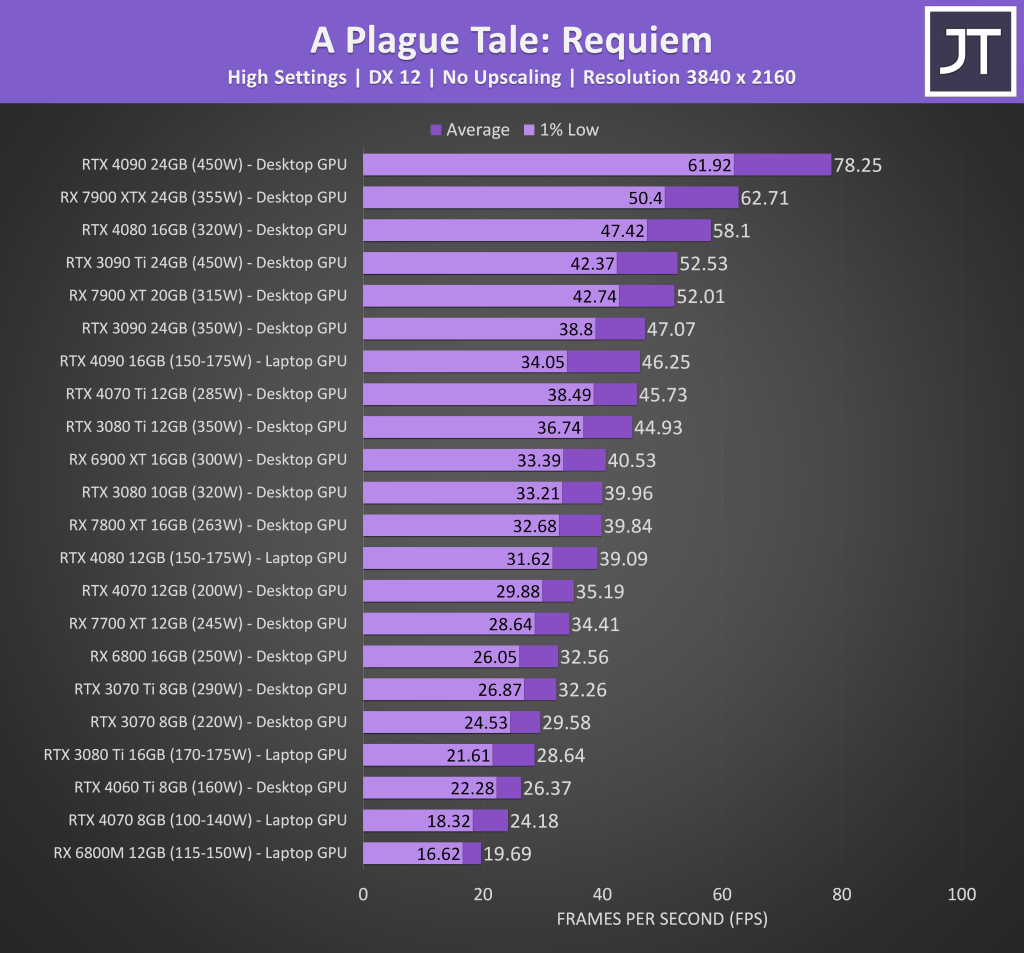
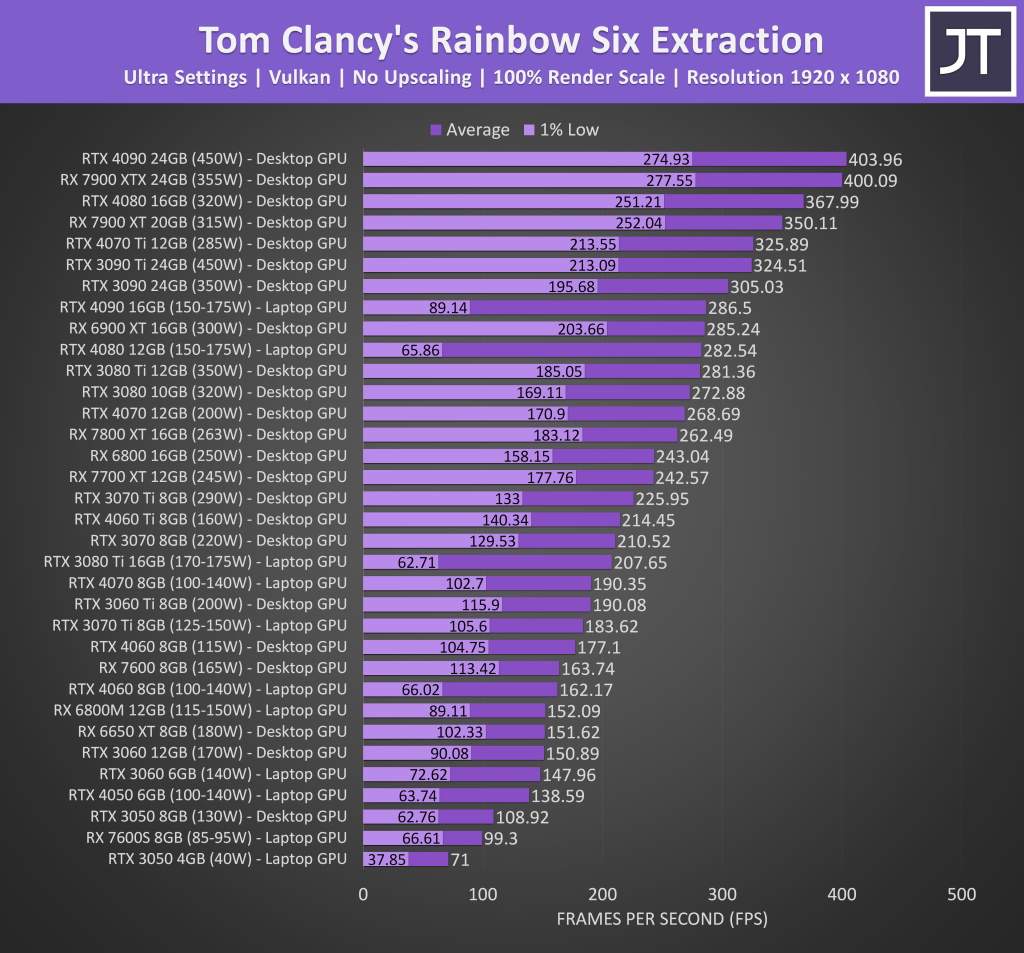 1440p
1440p
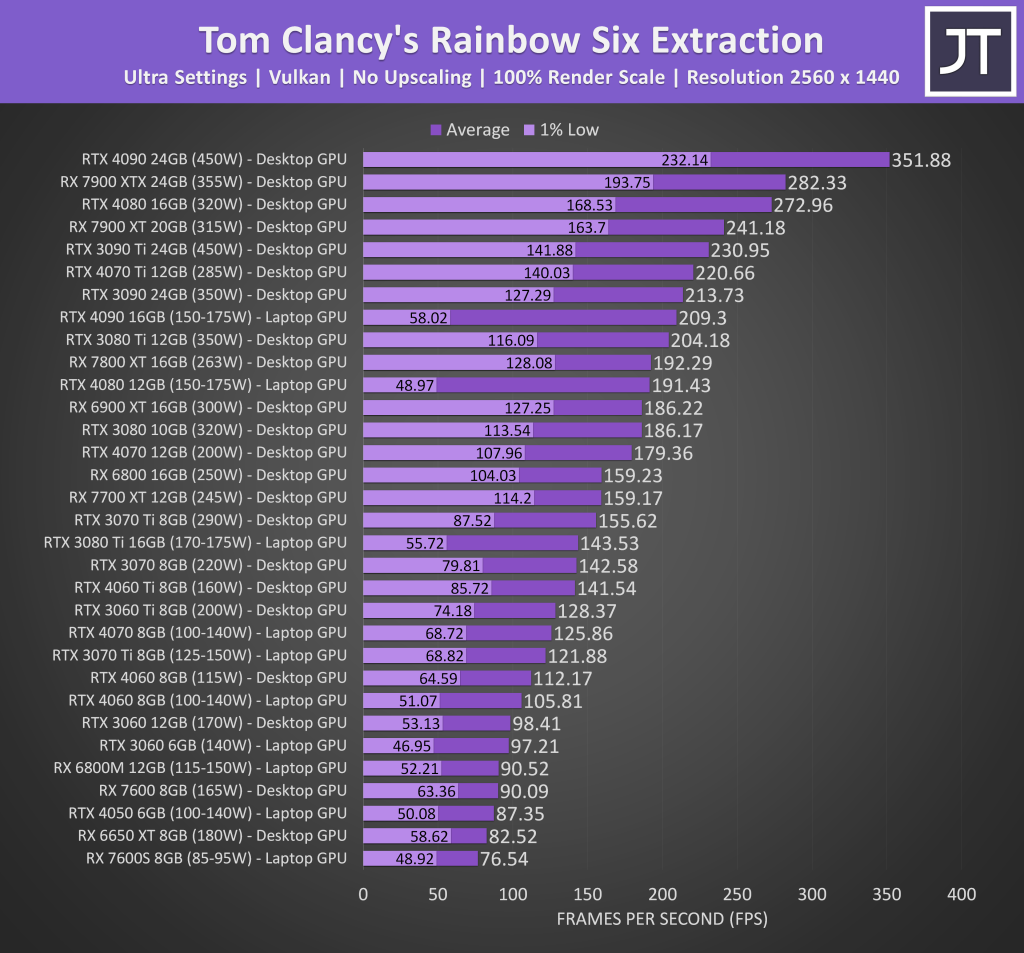 4K
4K
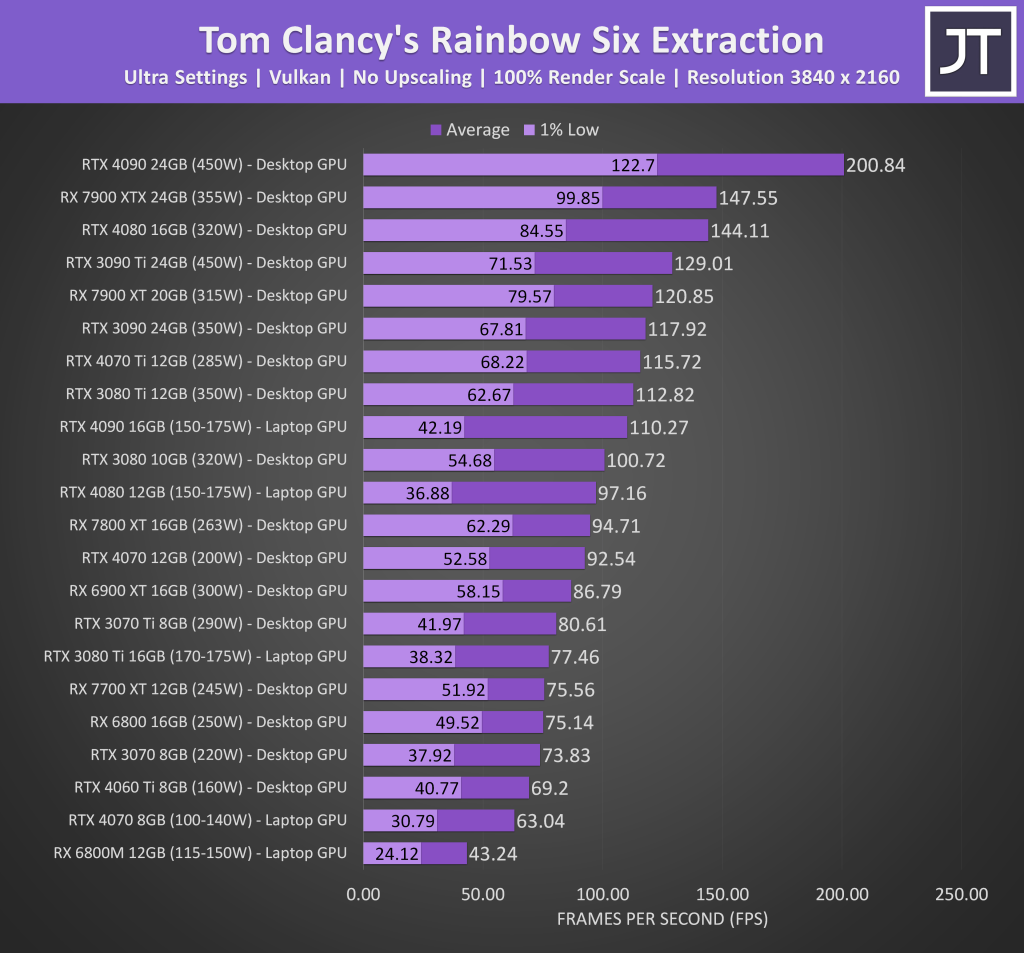
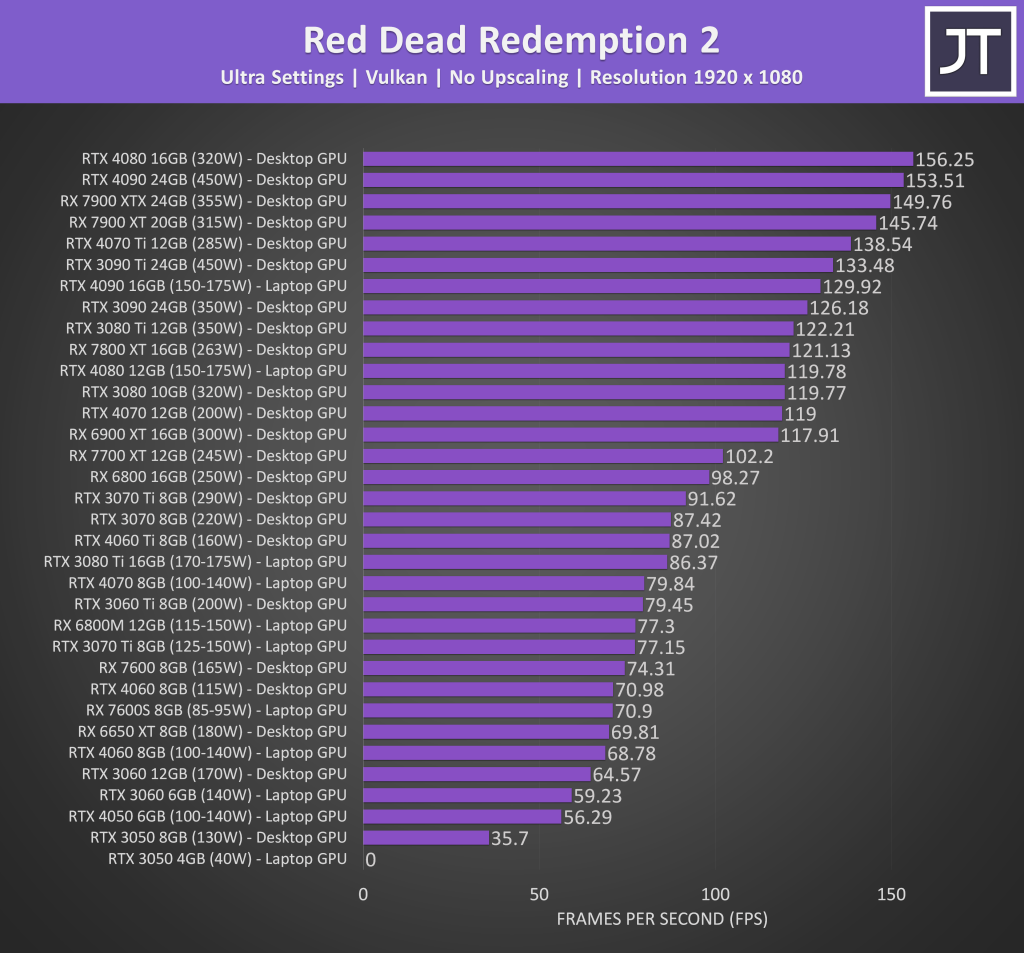 1440p
1440p
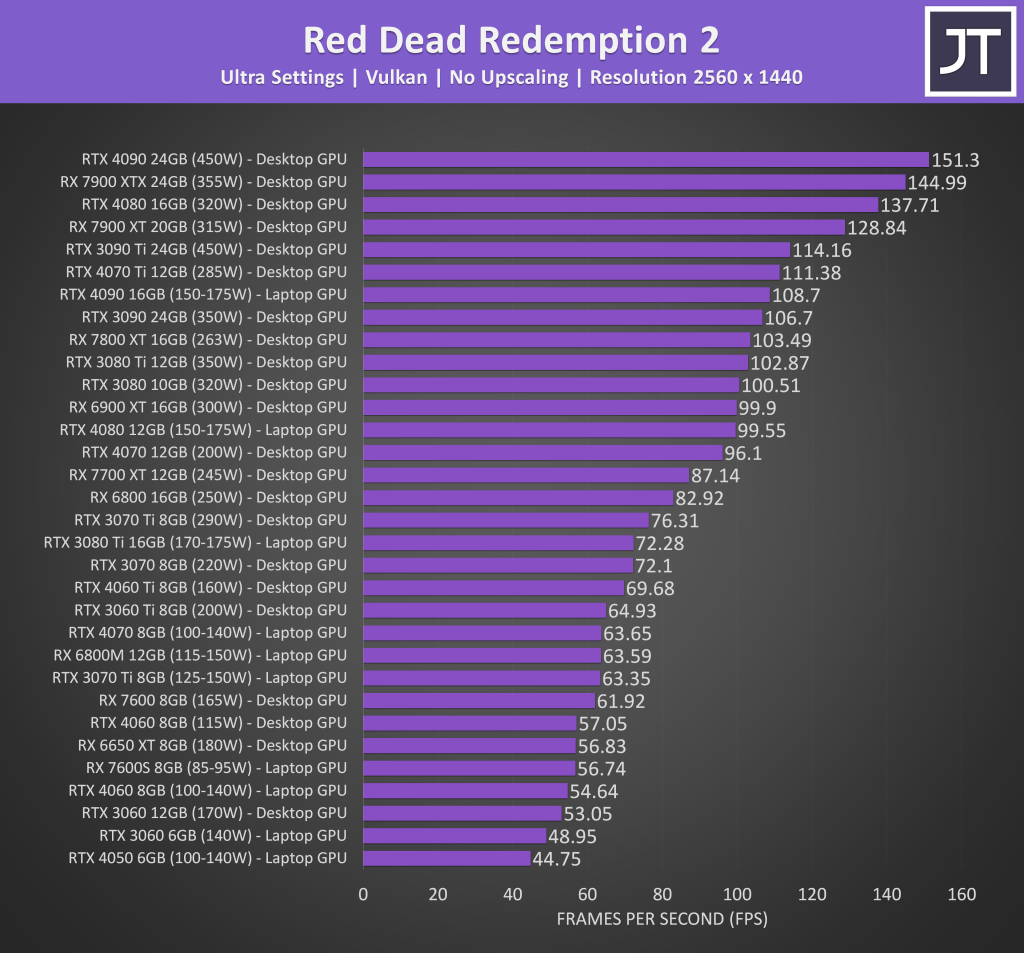 4K
4K
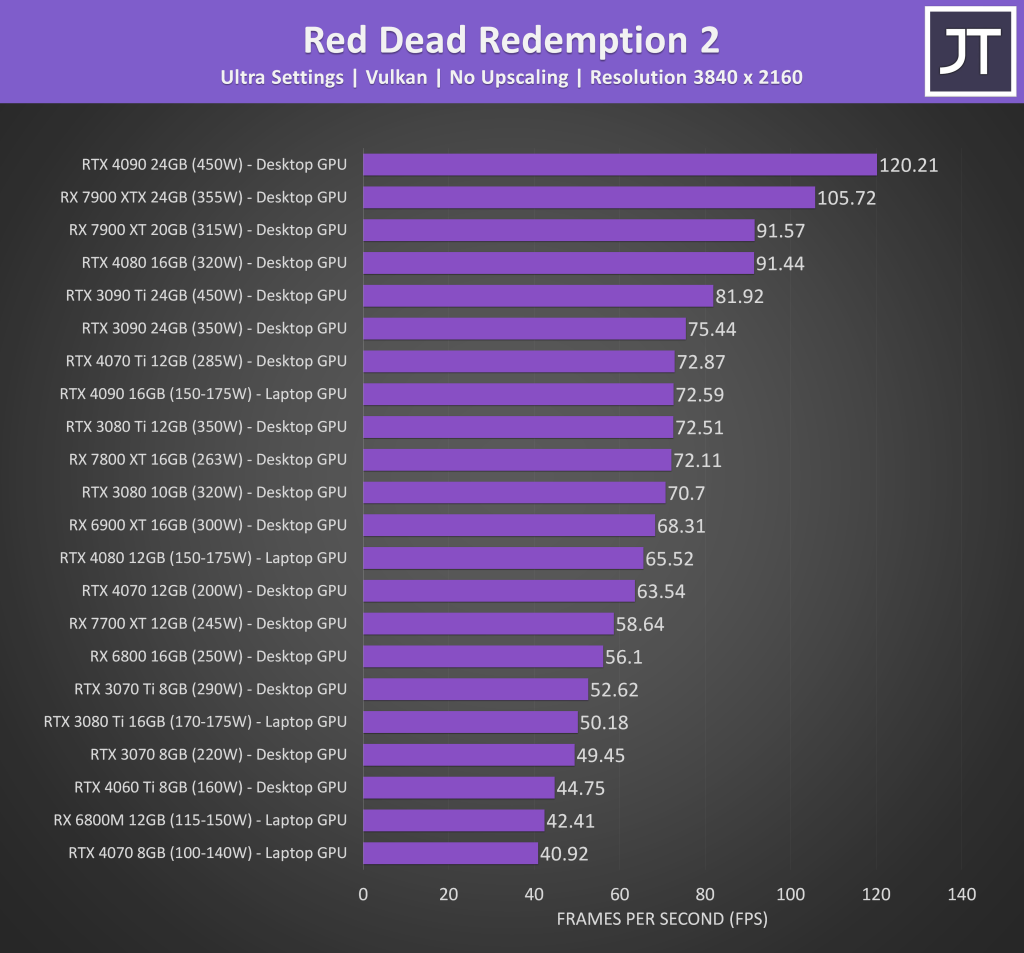
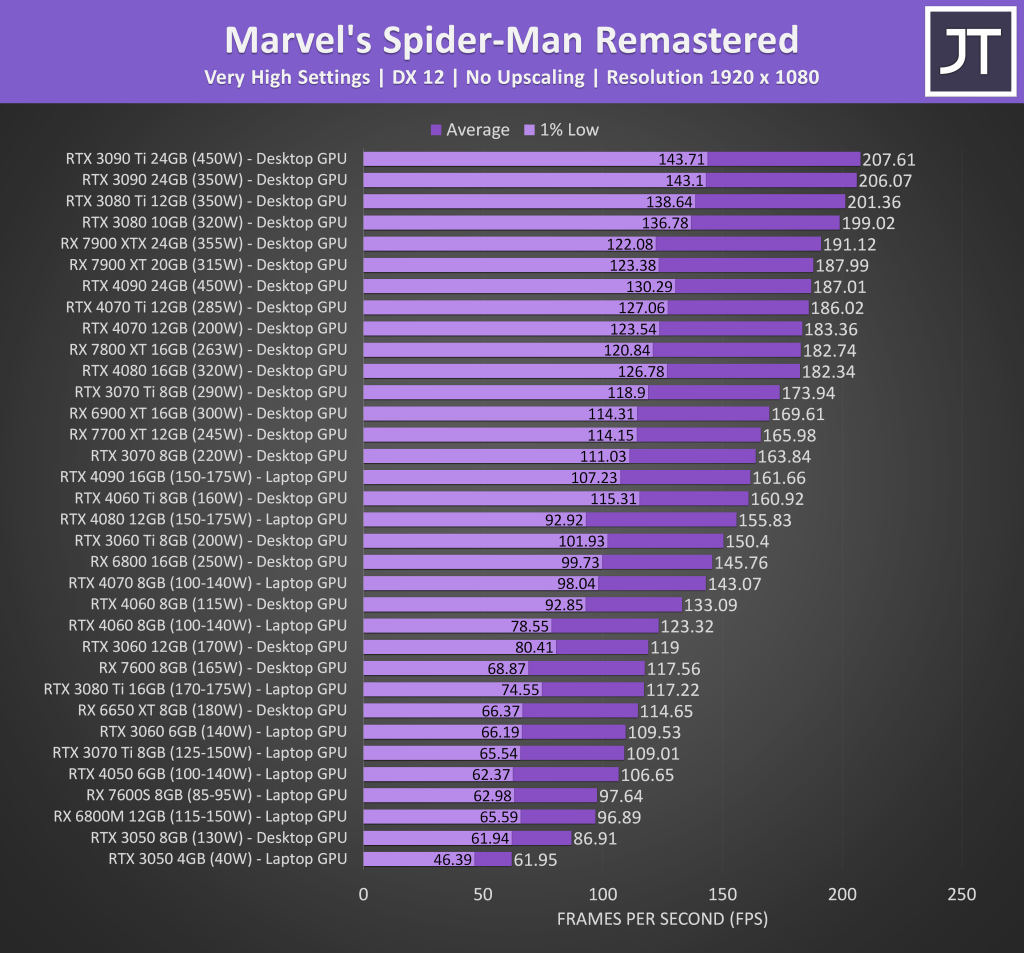 1440p
1440p
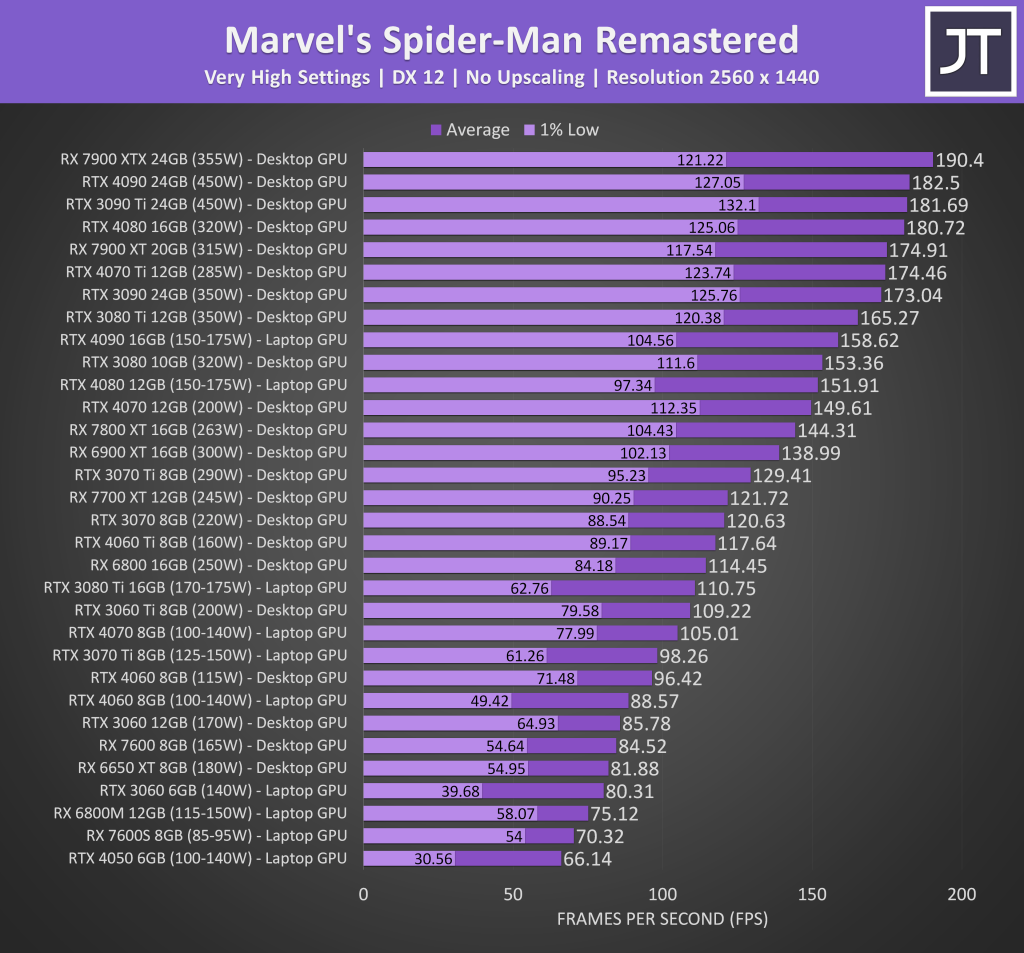 4K
4K
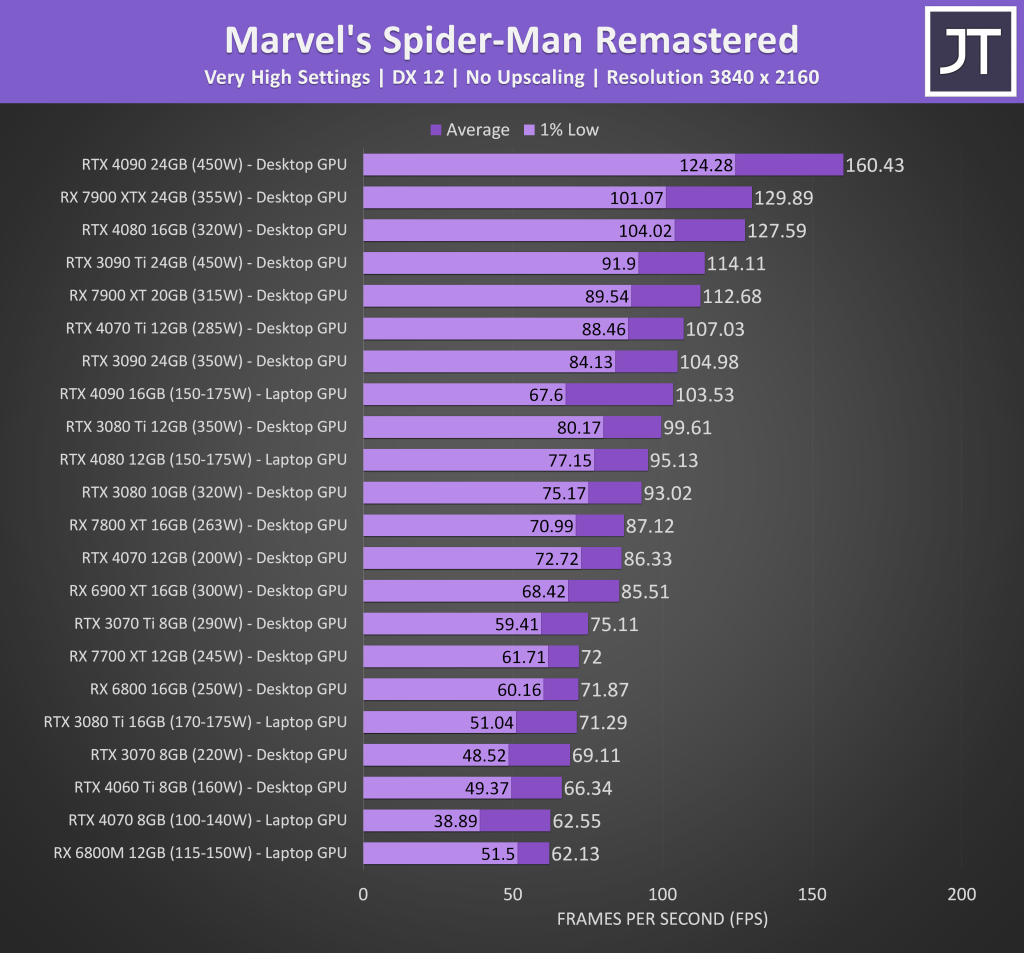
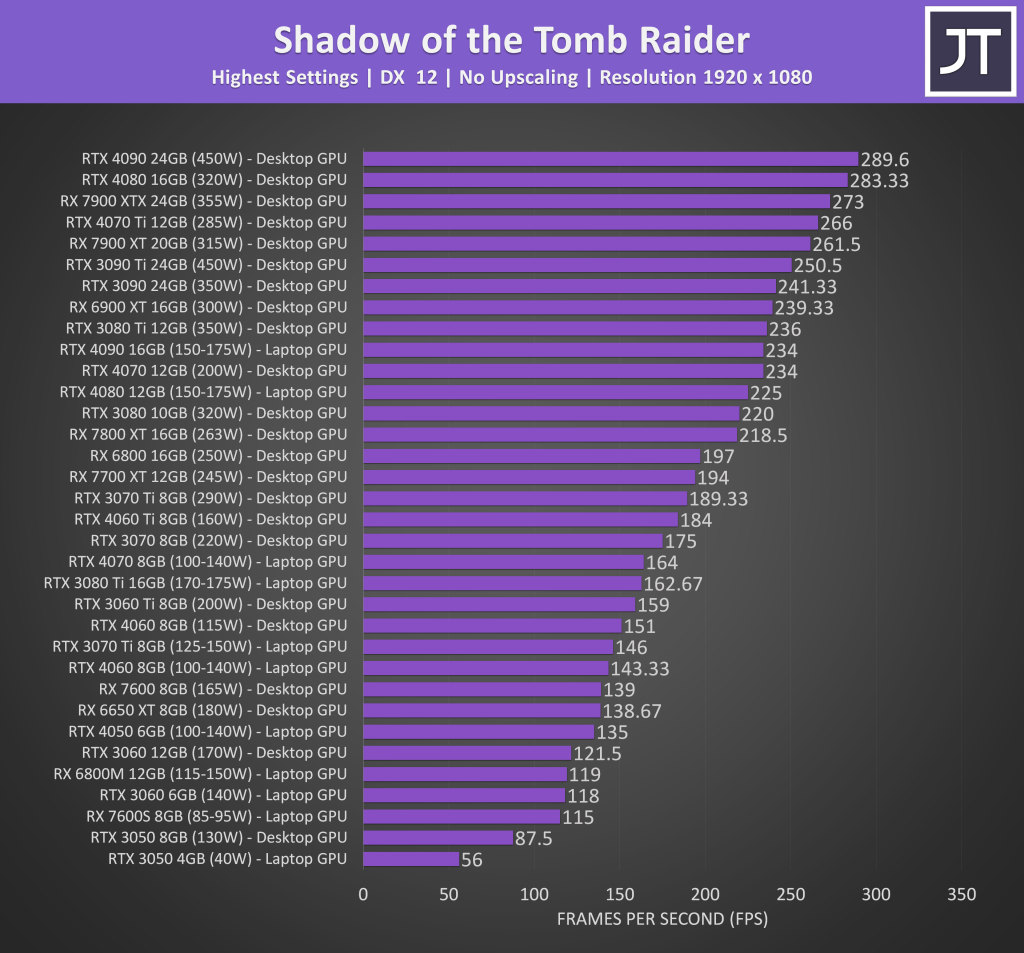 1440p
1440p
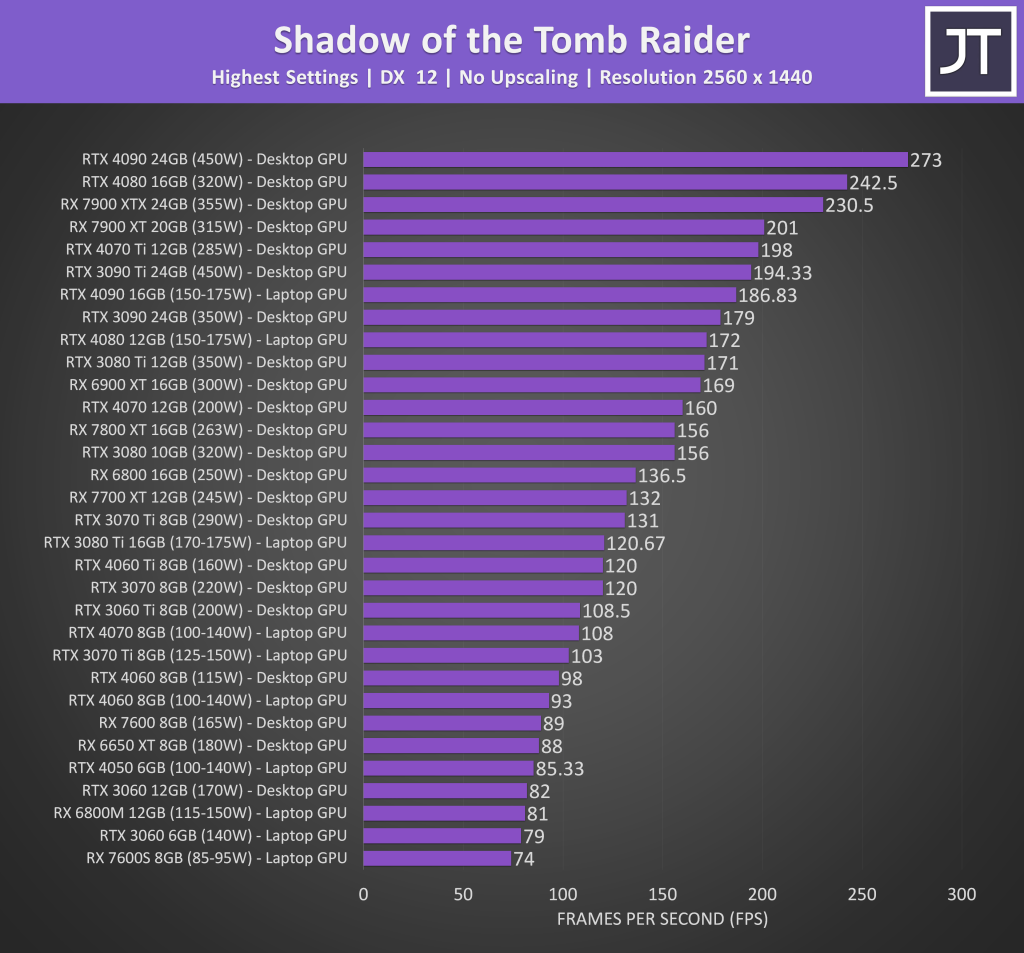 4K
4K
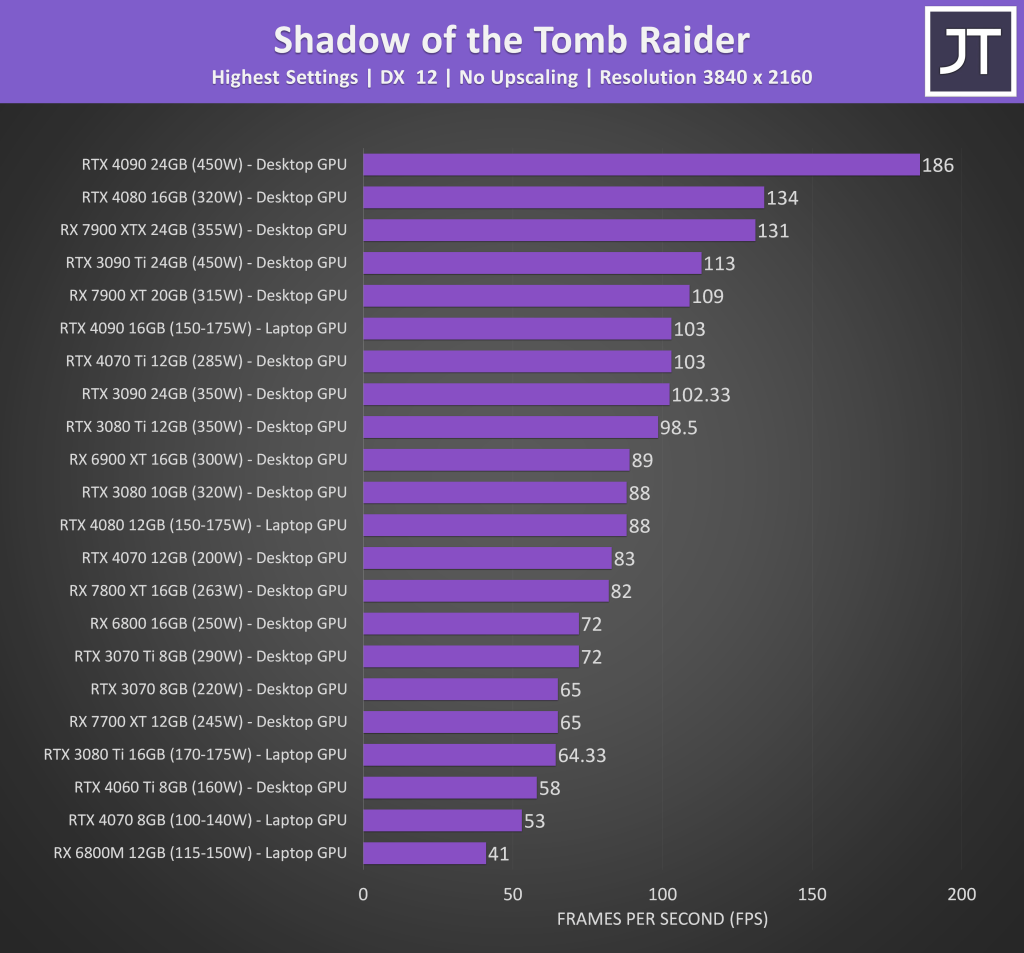
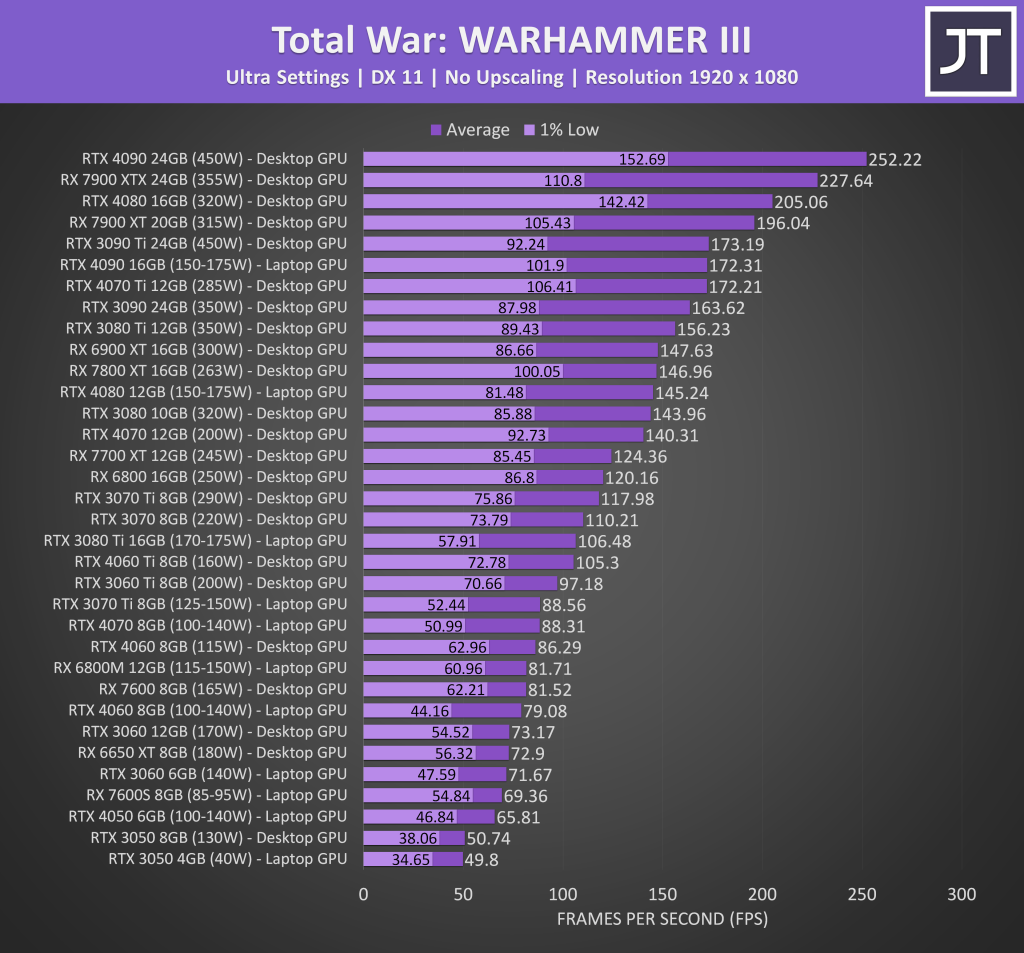 1440p
1440p
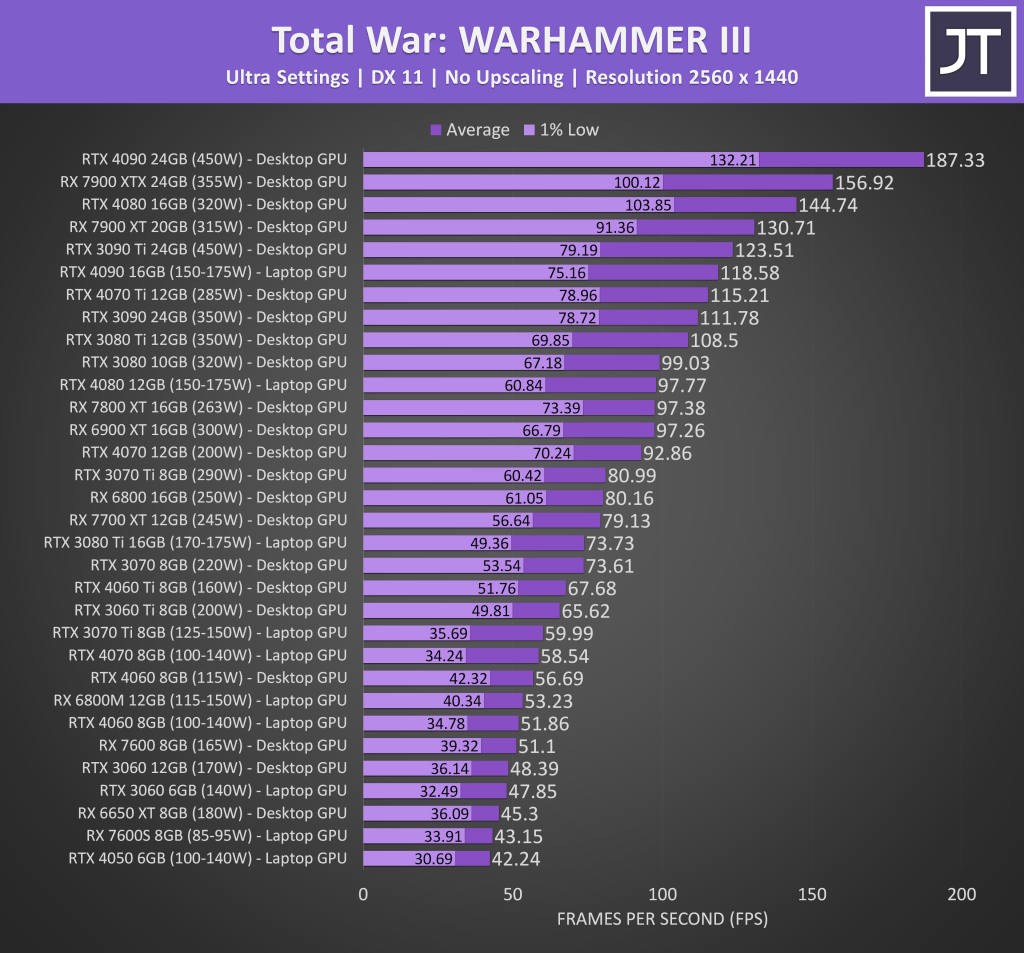 4K
4K
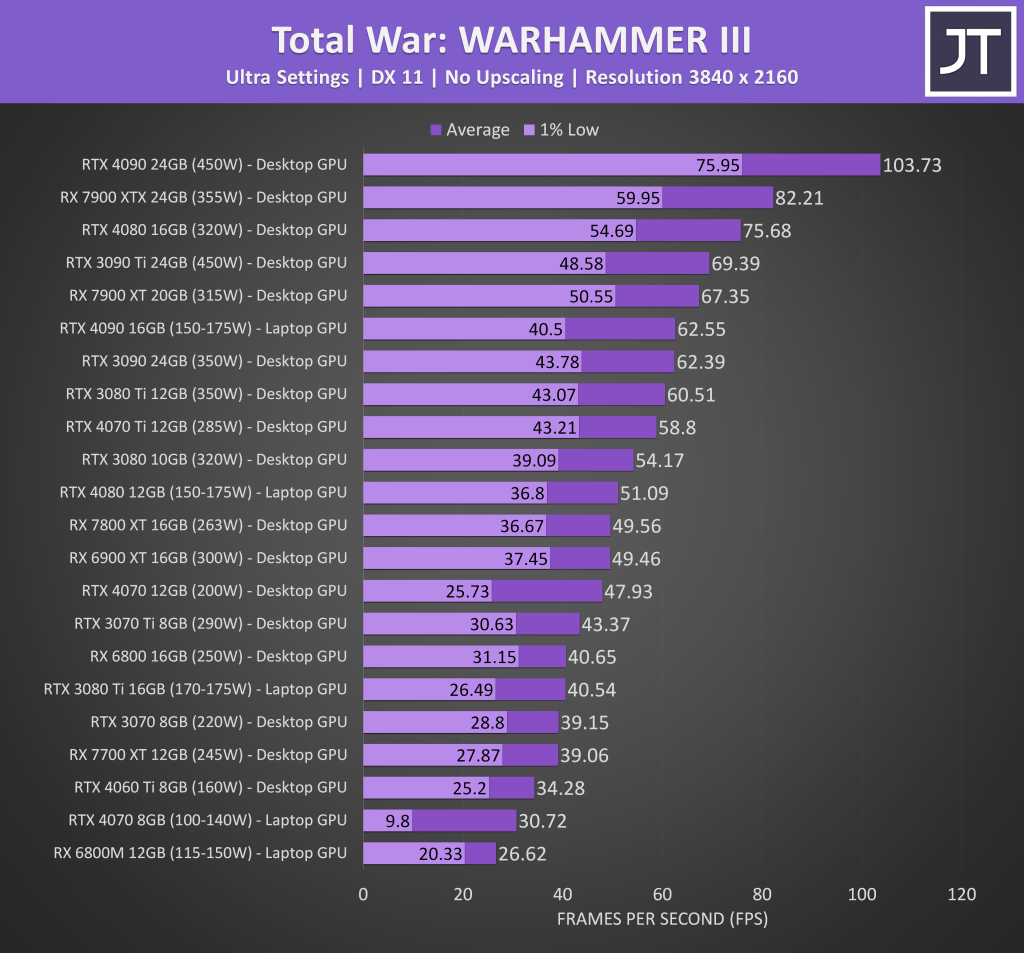
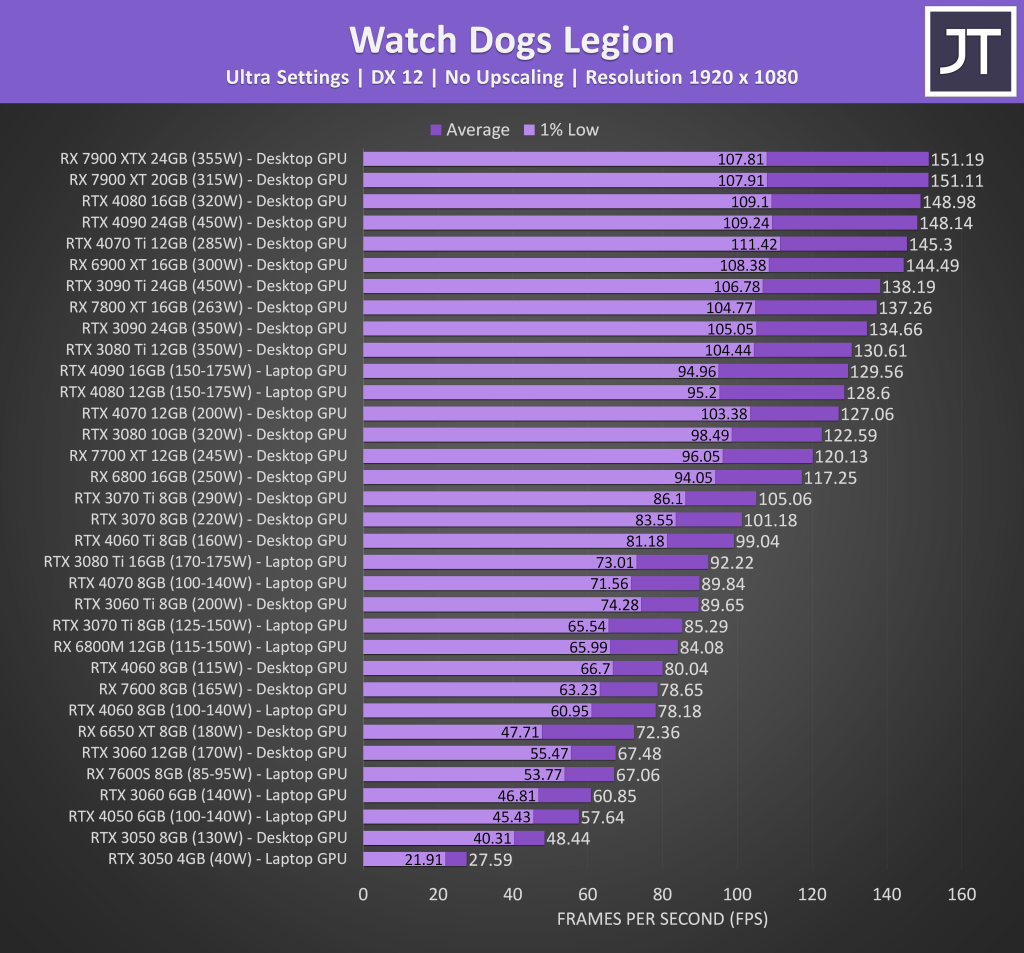 1440p
1440p
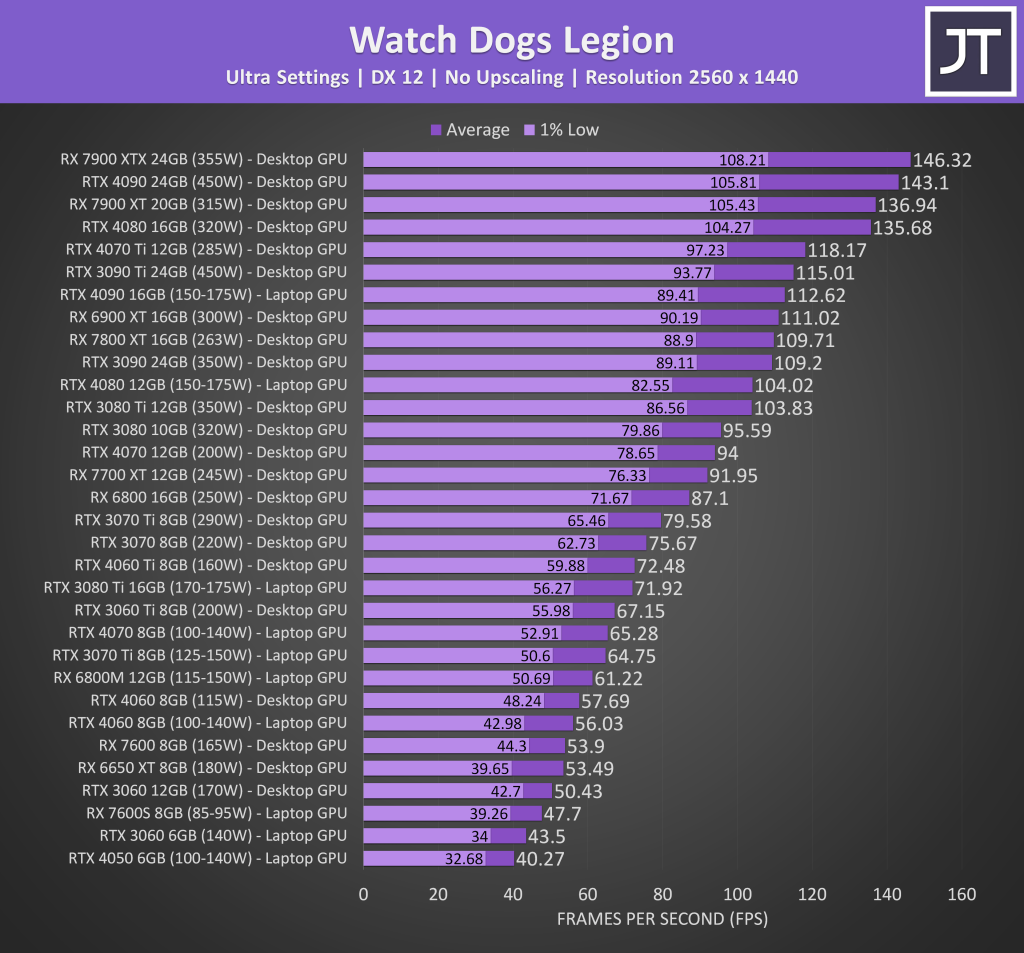 4K
4K
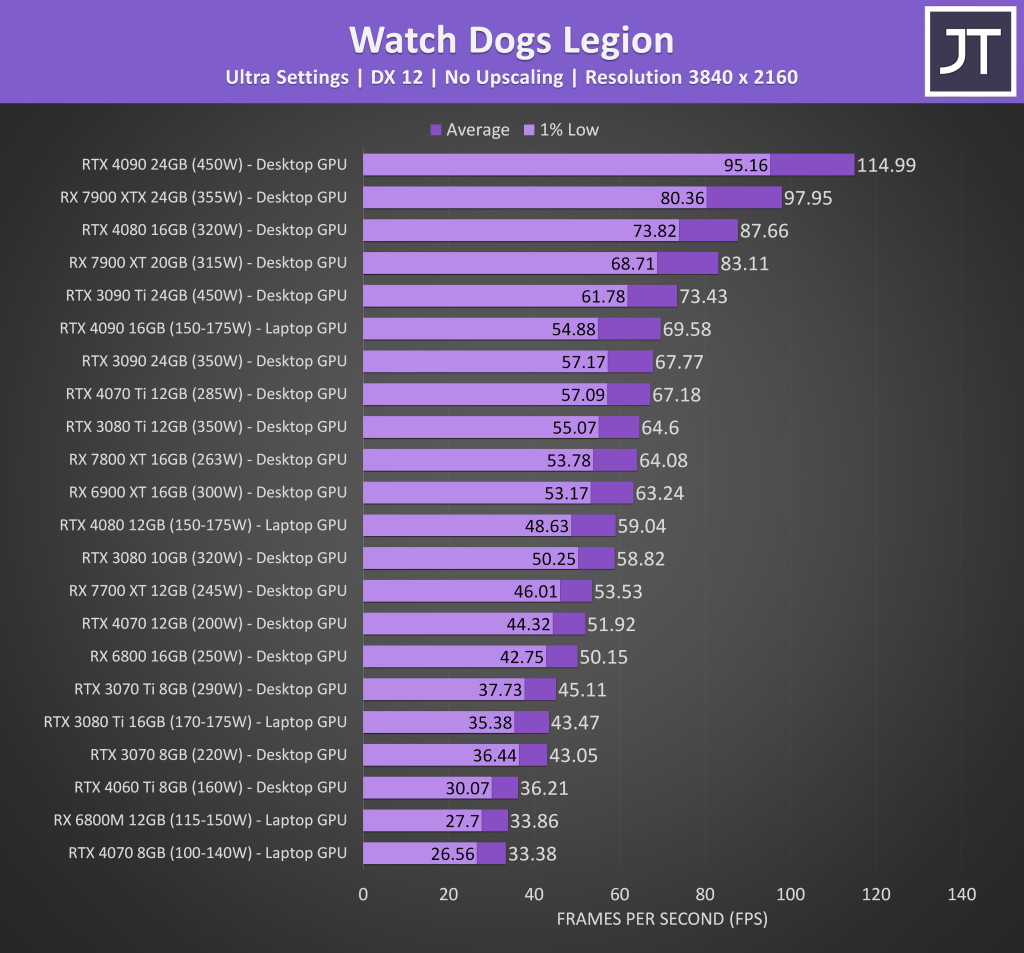
1080p
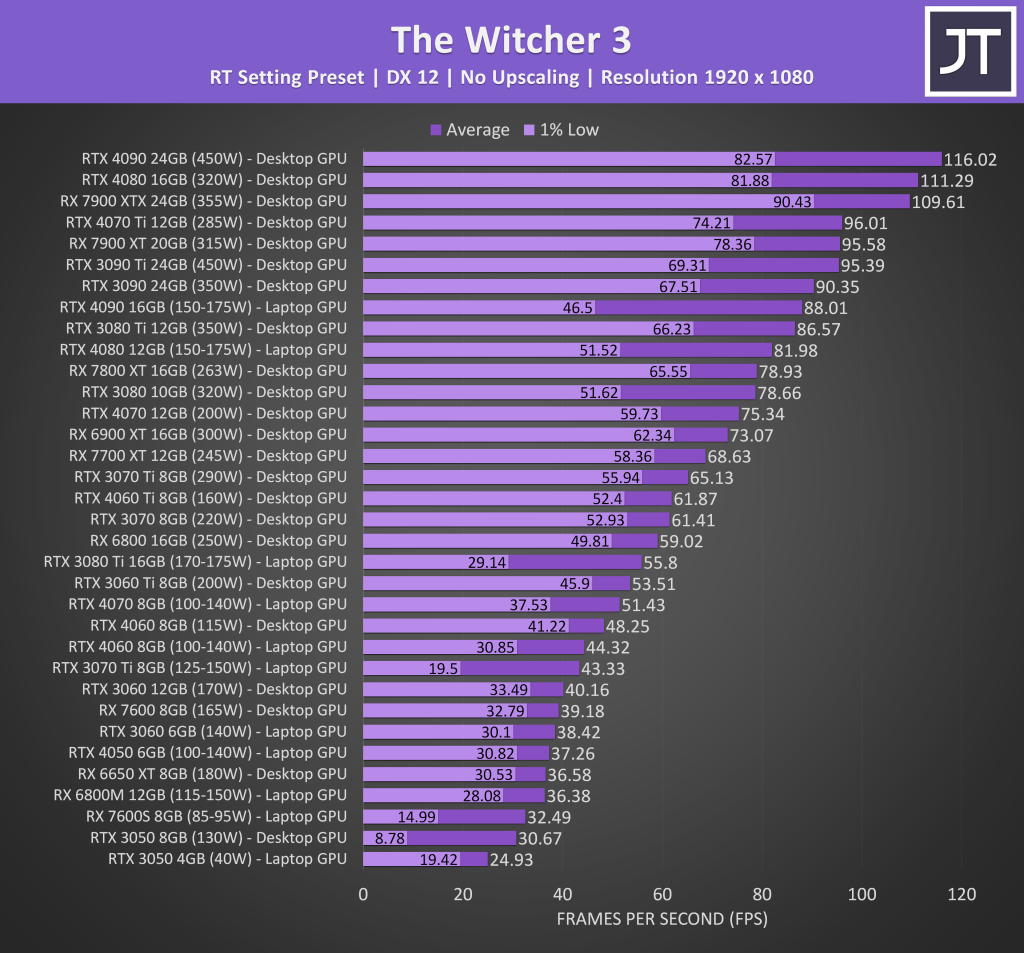 1440p
1440p
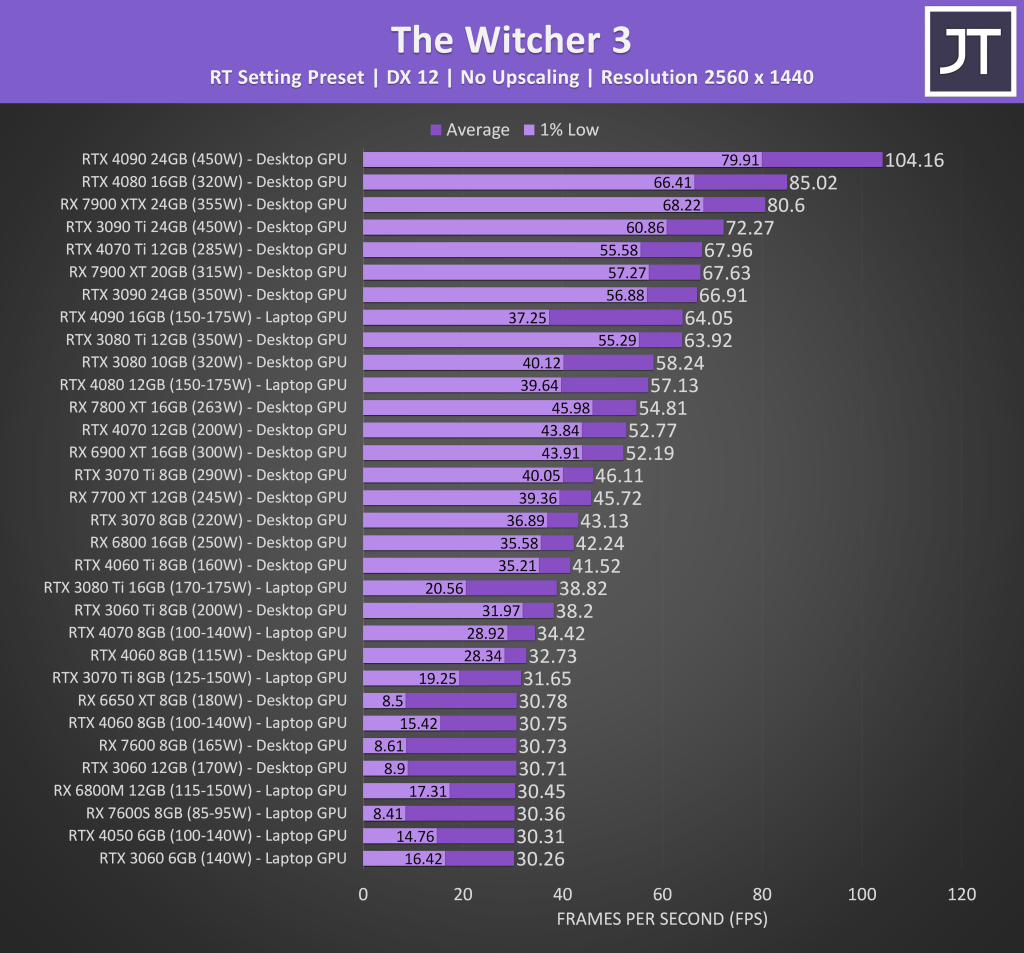 4K
4K
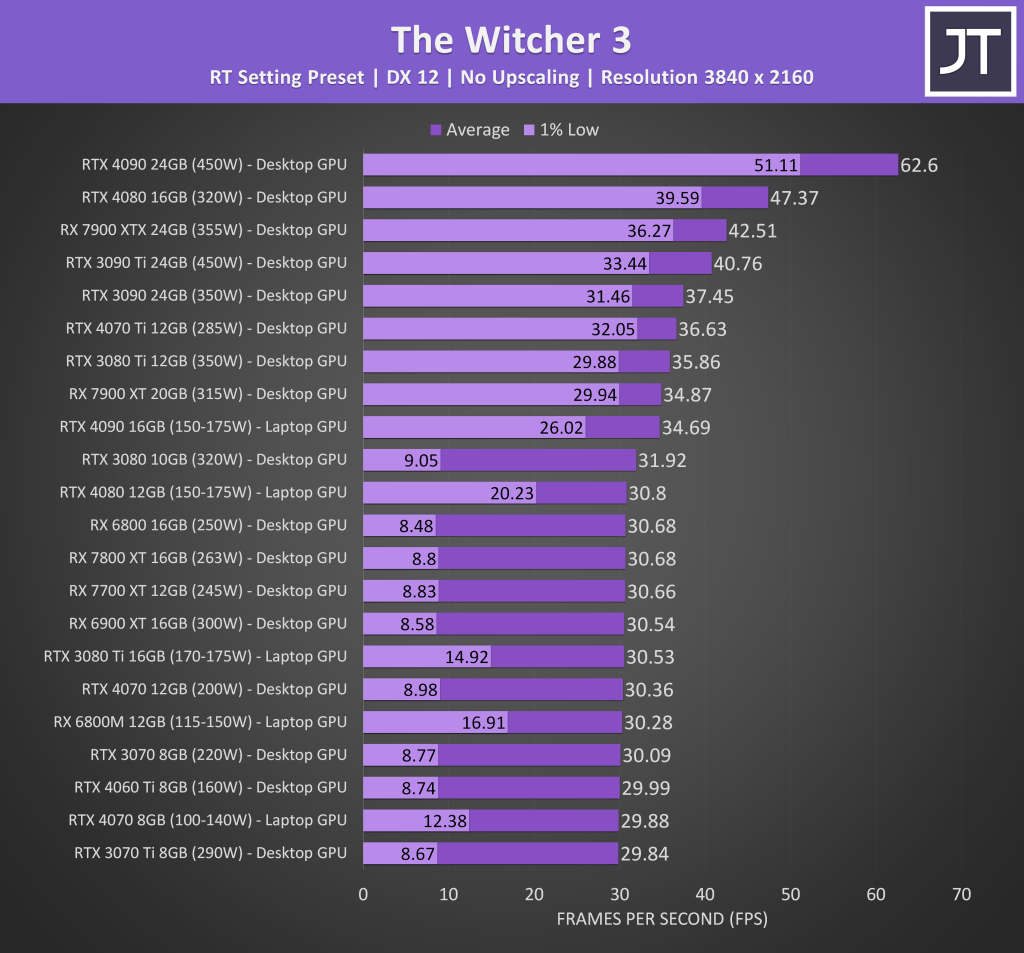

Accuracy Disclaimer
This data is not perfectly fairly comparable, and should instead be used as a rough guideline.
Each GPU takes us about 12 hours to test in 25 games at multiple resolutions, meaning total testing time was more than 400 hours, or 5 weeks non-stop with 12 hour days to test all 34 GPUs.
As this was not the only project I was working on, it took about 4 months to complete all of this testing, plenty of time for various games to get updated.
That said, when I noticed an update that affected performance I retested GPUs for accuracy, which further added more testing time. However, for laptops in particular, I do not get to hold onto these for long periods of time, so was limited in retesting some.
Drivers were another problem. Some graphics cards like the RTX 4060 launched in the middle of testing and required an updated driver to work at all, so this may differ a bit too with newer released GPUs.
Ultimately, the overall averages should be good enough for you to get a good understanding of where laptop and desktop GPUs fit in against each other as we’re averaging 20+ games. But specific game FPS results in newer titles that still receive performance updates may vary slightly.
But You’re Missing a GPU!
If a specific GPU is missing, the simple answer is that I was not able to get my hands on it for testing. I did the best I can, but I could not get some older models such as 6800 XT or the laptop RTX 3070.
Desktop PC Specs
Here are the specs of the PC that all of the graphics cards were tested in. No manual overclocking was done, consider all results stock. You can check the prices of specific components with these affiliate links:
- CPU – Intel Core i9-13900K
- Motherboard – MSI Z690 Unify
- RAM – G.Skill Trident Z5 Neo
- SSD – MSI Spatium M480
- Case – NZXT H700i
- Cooler – MSI Core Liquid S360 AIO
- Thermal Paste – Noctua NT-H2
- Power Supply – MSI MEG Ai1300P
Gaming Laptops Tested
Here are all of the gaming laptops that were used for each GPU. Please note that performance will vary between laptops with the same GPU depending on things like thermals, power limits, and more. Each link below is an affiliate link you can use to check current price and availability.
- RTX 3050 – MSI GF63
- RTX 3060 – MSI GP66
- RTX 3070 Ti – Lenovo Legion 5i Pro
- RTX 3080 Ti – Lenovo Legion 7i
- RTX 4050 – XMG Focus 16
- RTX 4060 – XMG Focus 16
- RTX 4070 – XMG Neo 16 (Water cooled)
- RTX 4080 – XMG Neo 16 (Water cooled)
- RTX 4090 – XMG Neo 16 (Water cooled)
- RX 6800M – ASUS ROG Strix G15 Advantage Edition
- RX 7600S – ASUS TUF A16
Water cooling doesn’t make too much difference to the RTX 4070/4080/4090 results, but it does help. This data was collected for other content, and given the small difference in performance I chose not to retest those 3 GPUs in 25 games at 3 resolutions on air. We can instead just consider them to represent best case laptops.
You can find reviews for most of these gaming laptops on my YouTube channel.